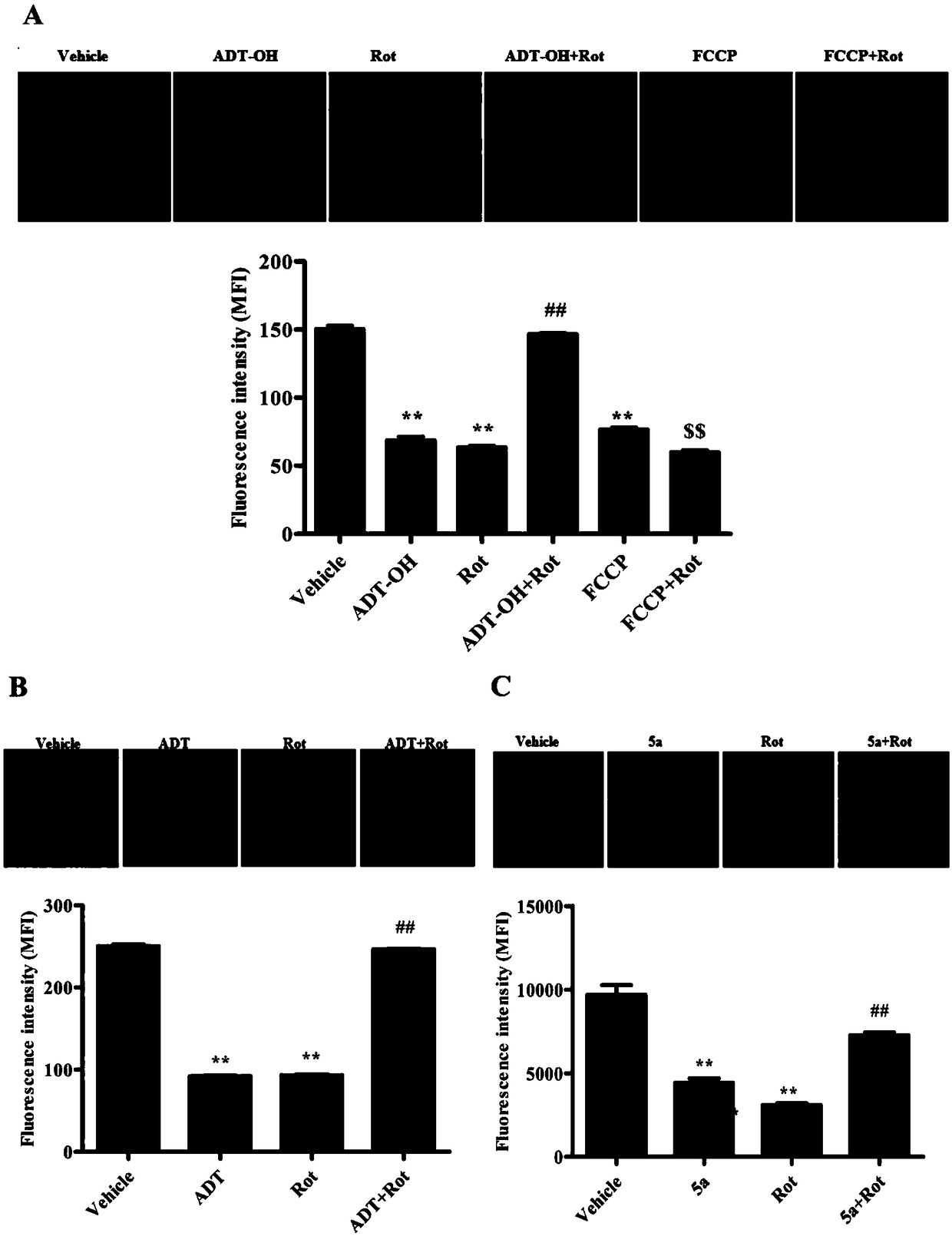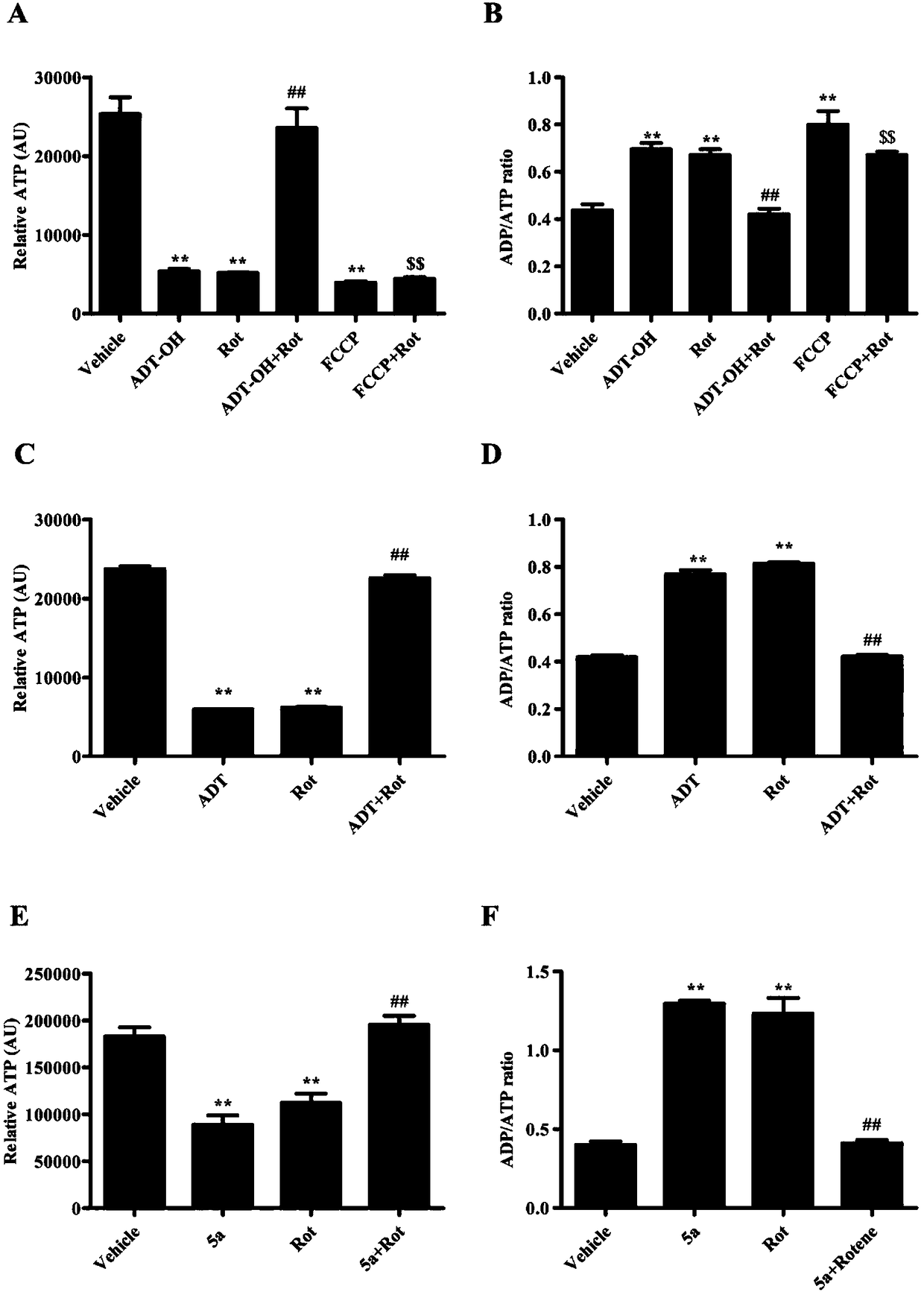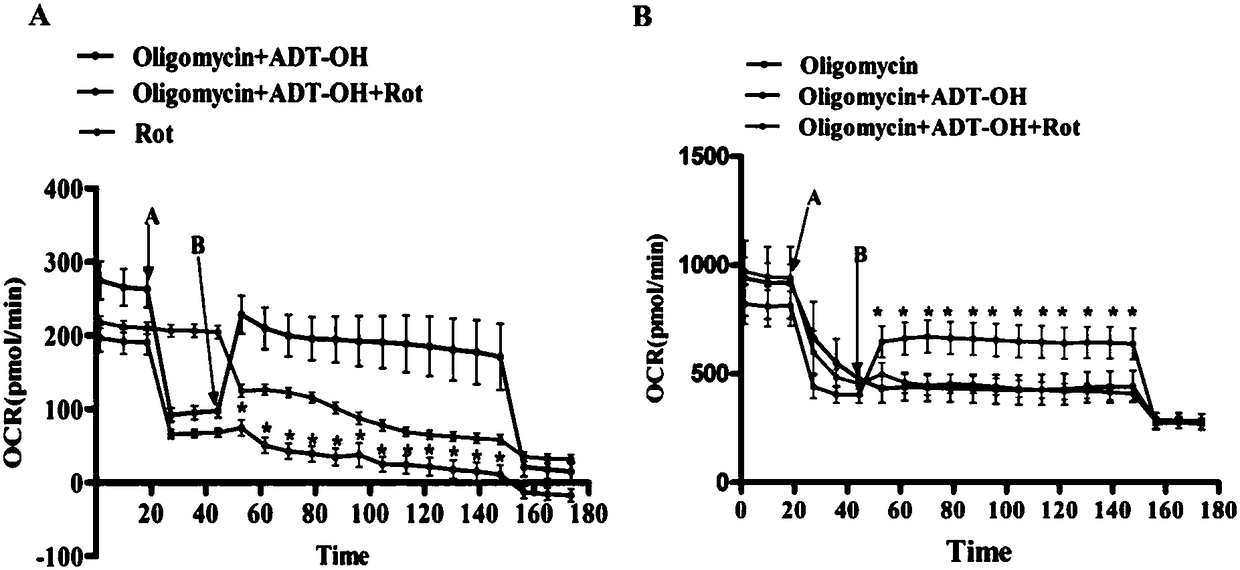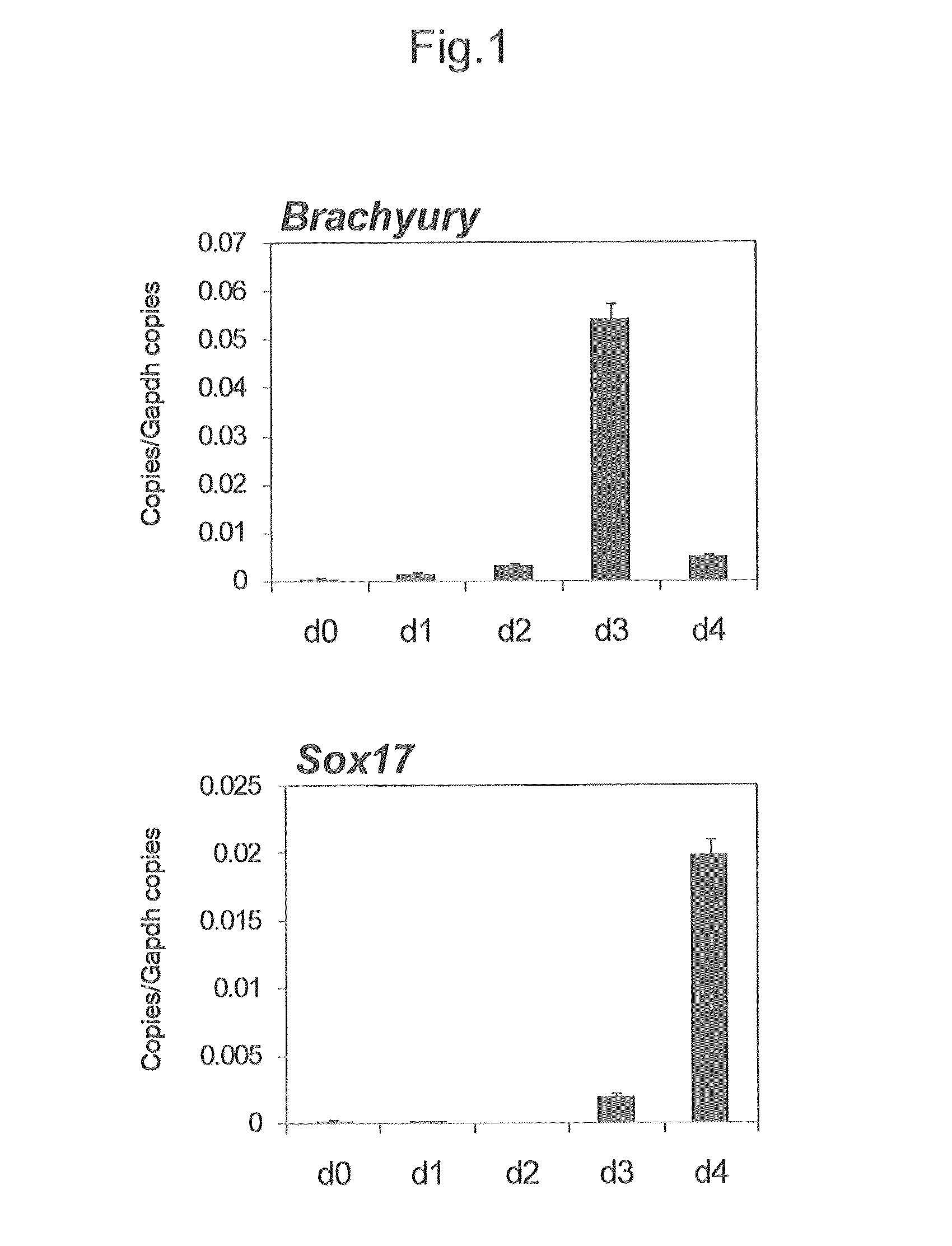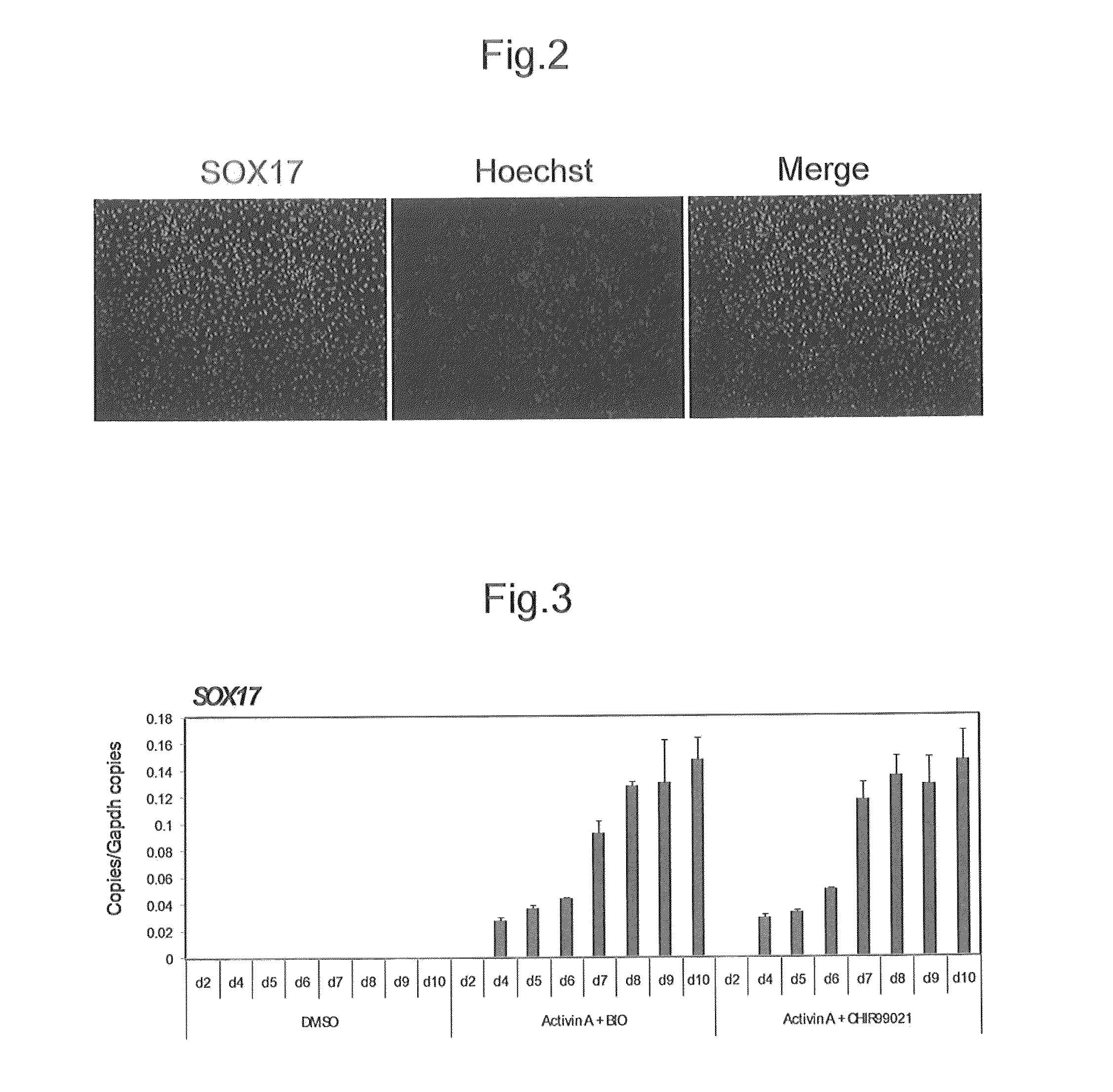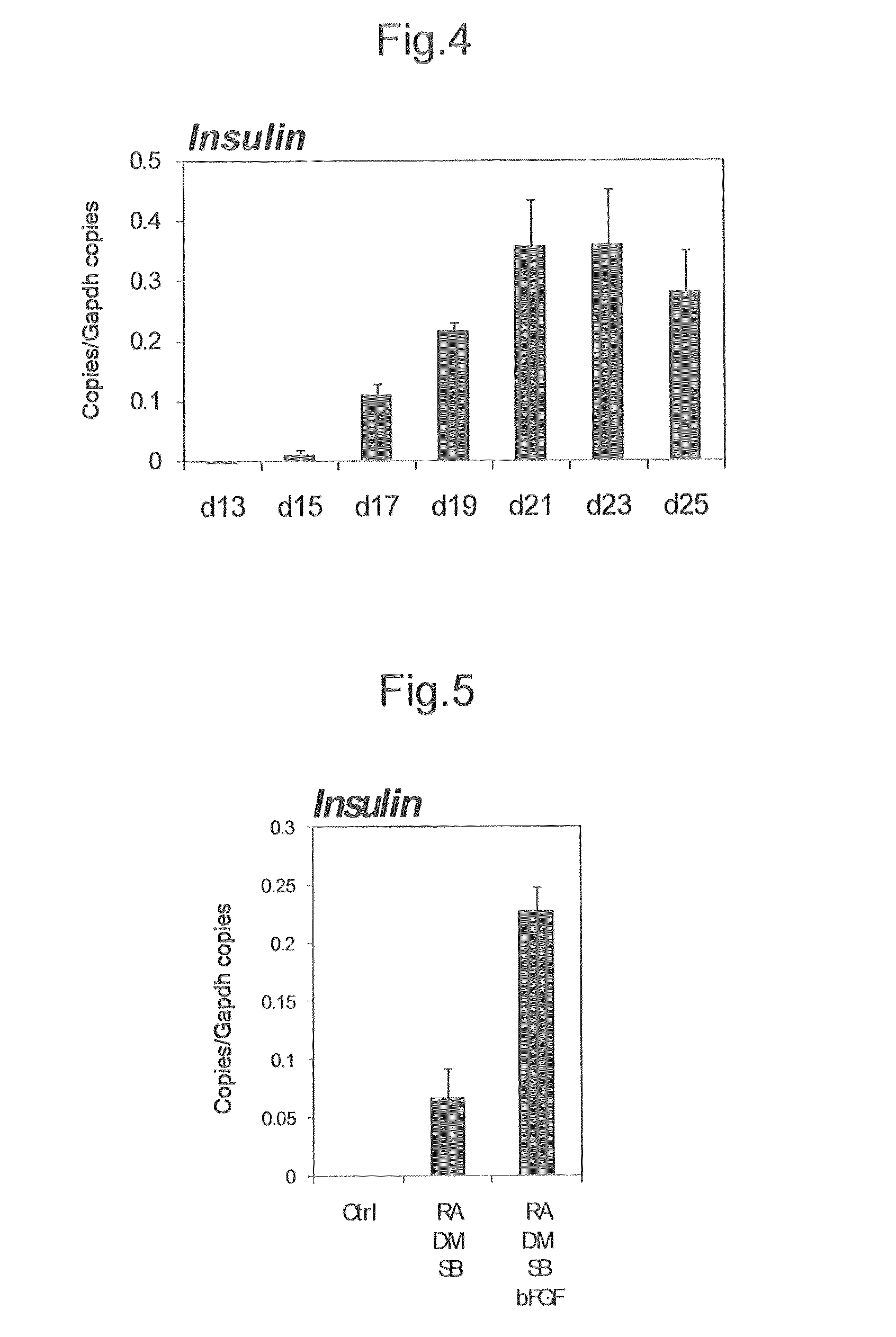Patents
Literature
52 results about "AMP-activated protein kinase" patented technology
Efficacy Topic
Property
Owner
Technical Advancement
Application Domain
Technology Topic
Technology Field Word
Patent Country/Region
Patent Type
Patent Status
Application Year
Inventor
5' AMP-activated protein kinase or AMPK or 5' adenosine monophosphate-activated protein kinase is an enzyme (EC 2.7.11.31) that plays a role in cellular energy homeostasis, largely to activate glucose and fatty acid uptake and oxidation when cellular energy is low. It belongs to a highly conserved eukaryotic protein family and its orthologues are SNF1 in yeast, and SnRK1 in plants. It consists of three proteins (subunits) that together make a functional enzyme, conserved from yeast to humans. It is expressed in a number of tissues, including the liver, brain, and skeletal muscle. In response to binding AMP and ADP, the net effect of AMPK activation is stimulation of hepatic fatty acid oxidation, ketogenesis, stimulation of skeletal muscle fatty acid oxidation and glucose uptake, inhibition of cholesterol synthesis, lipogenesis, and triglyceride synthesis, inhibition of adipocyte lipogenesis, activation of adipocyte lipolysis, and modulation of insulin secretion by pancreatic beta-cells.
Thienopyridones as AMPK activators for the treatment of diabetes and obesity
InactiveUS20050038068A1Reduce usageUseful in treatmentBiocideOrganic chemistryDiseaseMetabolic syndrome
The present invention relates to compounds that activate AMP-activated protein kinase (AMPK), including the preparation of the compounds, compositions containing the compounds and the use of the compounds in the prevention or treatment of disorders such as diabetes, metabolic syndrome, and obesity.
Owner:ABBVIE INC
Thienopyridones as AMPK activators for the treatment of diabetes and obesity
The present invention relates to compounds that activate AMP-activated protein kinase (AMPK), including the preparation of the compounds, compositions containing the compounds and the use of the compounds in the prevention or treatment of disorders such as diabetes, metabolic syndrome, and obesity.
Owner:ABBVIE INC
Method for treating disease or condition susceptible to amelioration by AMPK activators and compounds of formula which are useful to activate AMP-activated protein kinase (AMPK)
The present invention relates to a method for treating disease or condition susceptible to amelioration by AMPK activators and compounds of formula which are useful to activate AMP-activated protein kinase (AMPK) and the use of the compounds in the prevention or treatment of disease, including pre-diabetes, type 2 diabetes, syndrome X, metabolic syndrome and obesity.
Owner:ENERGENESIS BIOMEDICAL
Thienopyridone derivatives as AMP-activated protein kinase (AMPK) activators
Owner:MERCK PATENT GMBH
Beta-cell replication promoting compounds and methods of their use
InactiveUS20130023491A1Easy to copyRaise the ratioBiocideOrganic chemistryS-adenosylhomocysteine HydrolaseCell biology
Owner:JOSLIN D ABETES CENTER INC +2
Pharmaceutical Composition Comprising Metadoxine and Garlic Oil For Preventing and Treating Alcohol-Induced Fatty Liver and Steatohepatitis
InactiveUS20100062090A1Effective treatmentPrevent hepatitisBiocideOrganic active ingredientsTG - TriglycerideMetadoxine
Provided is a pharmaceutical or food or drink composition for preventing or treating alcohol-induced fatty liver or steatohepatitis comprising metadoxine (pyridoxol 1-2-pyrrolidone-5-carboxylate) and garlic oil as active ingredients. The concurrent administration of metadoxine and garlic oil according to the present invention exhibits outstandingly superior effects of inhibiting the accumulation of triglyceride and increase of blood AST (aspartate aminotransferase) level in liver el tissue, inhibiting the expression of FAS (fatty acid synthase), CYP2E1 and iNOS (inducible nitric oxide synthase) and inhibiting the deactivation of AMPK (AMP-activated protein kinase), as compared to the administration of metadoxine or garlic oil only.
Owner:SEOUL NAT UNIV R&DB FOUND
Amp-kinase agonists or adenosine pro-drugs as immuno-stimulating agents
InactiveUS20050002943A1Enhance immune responseDecreasing anti-inflammatory effectBiocideSnake antigen ingredientsAdjuvantAdenosine
The present invention relates to the use of AMP-activated protein kinase (AMP-kinase) agonists or adenosine pro-drugs as immune enhancing compounds, as adjuvants in a vaccine or as anti-inflammatory compounds. The invention further relates to a compositions, vaccines and products comprising an immune response eliciting molecule and an immune response enhancing compound, wherein said immune enhancing compound is chosen from the group of AMP-activated protein kinase (AMP-kinase) agonists or adenosine pro-drugs.
Owner:UNIV LIBRE DE BRUXELIES
Methods fo treating conditions associated with insulin resistance with aicar, (5-amino-4-imidazole carboxamide riboside) and related compounds
InactiveUS20030212014A1Positive impact in reducing obesityIncrease insulin sensitivityBiocideCompound screeningMammalDisease cause
The long-term usage of AICR (5-aminio, 4-imidazole carboxamide riboside) to produce sustained metabolic and biological changes in mammals that overcome insulin resistance, i.e., increase insulin sensitivity, and result in benefits in diseases and conditions such as diabetes, hypertension, atherosclerosis, polycystic ovary syndrome and gallstones is described long-term usage of AICAR, particularly intermittent administration, e.g., three days per week, appears to have some of the positive effects of exercise, having an impact on the amount Of food consumed by a subject and resulting in reduced fat build-up and increase in muscle mass. Therefore, AICAR administration has a positive impact in reducing obesity. AICAR can also Prove useful in preventing or treating vascular diseases associated with hyperglycemia, high plasma levels of free fatty acids (FFA) and triglyceride, and insulin resistance by virtue of the fact that this agent activates fatty acid oxidation. Animal tests have Shown that chronic intermittent treatment with AICAR has not resulted in any noticeable toxic effects. AICAR and related compounds are activators of AMP-activated protein kinase (AMPK) and, furthermore, are effective at decreasing malonyl CoA levels in the animal.
Owner:UNIV BOSTON TRUSTEES OF THE +1
Method for preparing gynostemma pentaphyllum extract with increasing damulin a and damulin b contents, and pharmaceutical compositions of the same for treating metabolic disease
ActiveUS20110015142A1Improving/treating effect on metabolic syndromeIncrease temperatureOrganic active ingredientsBiocideCholesterolAdditive ingredient
Disclosed is an AMPK activating material used for improving and treating metabolic syndrome, in which AMPK (AMP-activated protein kinase) is a main enzyme for regulating an energy sensor and lipid / glucose metabolism in the body. The activation of AMPK inhibits the synthesis of fat and cholesterol, and accelerates the reduction of body fat and blood glucose, thereby improving obesity, diabetes, and hyperlipidaemia. The disclosed AMPK activating material contains, as active ingredients having an improving and treating effect on metabolic syndrome, including obesity, diabetes, and hyperlipidaemia, a novel compound 2α,3β,12β-trihydroxydammar-20(22)-E,24-diene-3-O-[β-D-glucopyranosyl-(1→)-β-D-glucopyranoside], named Damulin A, and a novel compound 2α,3β,12β-trihydroxydammara-20,24-diene-3-O-[β-D-glucopyranosyl-(1→)-β-D-glucopyranoside], named Damulin B. Herein, the contents of damulin A and damulin B (as active indicator ingredients for AMPK activation) can be increased by treating a Gynostemma pentaphyllum extract with high temperature / high pressure. Accordingly, the novel Gynostemma pentaphyllum extract with a significantly increased AMPK activating capability can be used for improving or treating metabolic syndrome, such as obesity, diabetes, and hyperlipidaemia.
Owner:TG BIOTECH CO LTD
Method for manufacturing pancreatic-hormone-producing cells
InactiveUS20130022986A1Efficient productionProduce efficientlyMetabolism disorderMicrobiological testing/measurementScreening methodPancreatic hormone
The present invention provides a method of more efficiently producing pancreas cells, particularly pancreatic hormone-producing cells, a method of stably producing pancreas cells in a large amount by more efficiently inducing differentiation of stem cells into pancreas cells, a medicament containing a pancreas cells and a screening method using the cells.A method of producing pancreatic hormone-producing cells, including subjecting stem cells to the following steps (1)-(4):(1) a step of cultivating stem cells in a medium containing an activator of activin receptor-like kinase-4,7 and a GSK3 inhibitor(2) a step of cultivating the cells obtained in the aforementioned step (1) in a medium containing an activator of activin receptor-like kinase-4,7(3) a step of cultivating the cells obtained in the aforementioned step (2) in a medium containing any one or more kinds selected from the group consisting of (a) retinoic acid receptor agonists, (b) at least one kind selected from the group consisting of inhibitors of AMP-activated protein kinase and / or activin receptor-like kinase-2,3,6, and BMP antagonists, and (c) inhibitors of activin receptor-like kinase-4,5,7(4) a step of cultivating the cells obtained in the aforementioned step (3).
Owner:TAKEDA PHARMA CO LTD
Composition for preventing or treating obesity-related diseases mediated by the activation of ampk and including 2,5-bis-aryl-3,4-dimethyltetrahydrofuran lignans as active ingredients
InactiveUS20120083525A1Not be much increasedEasy to solveBiocideMilk preparationLignanBiological activation
The present invention relates to a 2,5-bis-aryl-3,4-dimethyltetrahydrofuran lignan compound which activates nutmeg-derived AMP-activated protein kinase (AMPK), and to a composition including same as active ingredients for preventing and treating metabolic syndromes such as obesity. More particularly, the present invention relates to an AMPK-activating compound comprising one of the 2,5-bis-aryl-3,4-dimethyltetrahydrofuran lignan-based compounds produced by extracting Myristica fragrans with a solution of 30% or less of ethanol and separating and purifying the extracts using chromatography, as expressed in chemical formula 1 below, and to a composition comprising same as an active ingredient for preventing and treating metabolic syndrome caused by AMPK enzyme activation, such as obesity, diabetes, high cholesterol and cardiopulmonary diseases.
Owner:IND ACADEMIC COOP FOUND CHOSUN UNIV +1
Activation of AMP-protein activated kinase by oxaloacetate compounds
The present invention relates to oxaloacetate compounds that activate AMP-activated protein kinase (AMPK), including the preparation of the compounds, compositions containing the compounds, preserving said compounds and the use of the compounds in the prevention or treatment of disorders such as diabetes, metabolic syndrome, obesity, cardiovascular disease, Alzheimer's disease, and cancer.
Owner:CASH ALAN B
Method of treatment of obesity and paralyzed muscle and ergogenic aids
InactiveUS20030212034A1Loss of body fatBiocideCarbohydrate active ingredientsHypodermoclysisBiological activation
The invention relates to a method of treating obesity in a mammal. The method includes the step of administering a therapeutically effective amount of an AMP-activated protein kinase activator to the mammal. The mammal may be for example, a human, a rat, a mouse, and the like. The AMP-activated protein kinase activator can be subcutaneously injected into the mammal or administered in any other manner that provides for uptake of the AMP-activated protein kinase activator into the cells of the mammal. The activation of the AMP-activated protein kinase activator can produce the benefits of exercise training including the loss of body fat. The invention also relates to a method of treating insulin resistance in a mammal suffering from obesity, type 2 diabetes, or muscle paralysis. To reduce the insulin resistance a therapeutically effective amount of an AMP-activated protein kinase activator is given to the mammal.
Owner:WINDER WILLIAM W
Extracts of curcuma amada and uses thereof
ActiveUS20160220627A1Good effectBiocideHydrocarbon active ingredientsAcute hyperglycaemiaCancer cell
The invention concerns carbon dioxide extracts of Curcuma amada (mango ginger), including supercritical carbon dioxide extracts of C. amada; methods for their production; compositions comprising the extracts; methods for treating or delaying the onset of conditions such as cell proliferation disorder (e.g., cancer), inflammation, infection, hyperlipidemia, hypercholesterolemia, hypertriglyceridemia, hyperglycemia, platelet hyper-aggregation, immune disorder such as autoimmune disorder, or neurodegenerative condition; and methods for inhibiting expression of Bcl-2, Bak, and p53 genes; inhibiting expression of the COX-2 and NF-kB genes, inhibiting production of phosphorylated target of rapamycin (TOR), modulating AMP-activated protein kinase (AMPK), inhibiting protein kinase B (AKT) signaling, modulating the Ras / Raf / MEK / ERK signaling pathway, and modulating the Ras / PI3K / PTEN / Akt / mTOR signaling pathway. Another aspect of the invention concerns a method for inhibiting contamination, comprising applying the extract or composition of the invention to a surface. Another aspect of the invention concerns a method for promoting longevity of a cell in vitro or in vivo, comprising contacting a target cell in vitro or in vivo with an effective amount of the extract or composition of the invention. Another aspect of the invention concerns a method for promoting longevity of a subject, comprising administering an effective amount of the extract or composition of the invention. Another aspect of the invention concerns a method for inhibiting the metabolism of a cancer cell, comprising contacting the target cancer cell in vitro or in vivo with an effective amount of the extract or composition of the invention. Another aspect of the invention concerns a kit including the extract or composition; a container containing the extract or composition; and packaging material.
Owner:TERRA NOSTRA PROD MIT NATUREXTRAKTEN +1
Azabenzimidazole derivatives
ActiveUS20160039846A1Improve stabilityImprove effectivenessBiocideOrganic chemistryDiseaseProtein kinase C
The present invention relates to compounds of general formula I,wherein the group R1, R2, X, Y and Z are defined as in claim 1, which have valuable pharmacological properties, in particular bind to the AMP-activated protein kinase (AMPK) and modulate its activity. The compounds are suitable for treatment and prevention of diseases which can be influenced by this receptor, such as metabolic diseases, in particular diabetes type 2.
Owner:BOEHRINGER INGELHEIM INT GMBH
Method of producing pancreatic hormone-producing cells
ActiveUS20130210060A1Suitable for applicationPancreatic cellsMammal material medical ingredientsCell massPancreatic hormone
Disclosed is a production method of pancreatic hormone-producing cells in a form that mimics the pancreatogenesis, the method comprising subjecting stem cells to the following steps: (1) cultivating stem cells in a medium containing a Rho kinase inhibitor, (2) cultivating the cells obtained in (1) in a medium containing a GSK3 inhibitor, (3) cultivating the cells obtained in (2) in a medium containing GSK3 inhibitor and an activator of activin receptor-like kinase-4,7, (4) forming a cell mass from the cells obtained in (3), and cultivating the cell mass in a suspension state in a medium, (5) cultivating the cells obtained in (4) in a medium containing a retinoic acid receptor agonist, an inhibitor of AMP-activated protein kinase and / or activin receptor-like kinase-2,3,6, an inhibitor of activin receptor-like kinase-4,5,7 and a cell growth factor, and (6) cultivating the cells obtained in (5).
Owner:TAKEDA PHARMA CO LTD
Activation of amp-protein activated kinase by oxaloacetate compounds
InactiveUS20130143930A1Lower blood sugar levelsPromote conversionBiocideOrganic chemistryBiological activationKinase
The present invention relates to oxaloacetate compounds that activate AMP-activated protein kinase (AMPK), including the preparation of the compounds, compositions containing the compounds, preserving said compounds and the use of the compounds in the prevention or treatment of disorders such as diabetes, metabolic syndrome, obesity, cardiovascular disease, Alzheimer's disease, and cancer.
Owner:CASH ALAN B
Composition for preventing or treating obesity-related diseases mediated by the activation of ampk and including 2,5-bis-aryl-3,4-dimethyltetrahydrofuran lignans as active ingredients
Owner:IND ACADEMIC COOP FOUND YONSEI UNIV +1
Novel method of neuroprotection by pharmacological inhibition of amp-activated protein kinase
InactiveUS20090137665A1Reduce lossesReduce infarct sizeBiocideNervous disorderProtein kinase domainMedicine
A method of neuroprotection which comprises administration of an AMPK inhibitor to a patient who is experiencing or has experienced a stroke, the compound being an AMPK inhibitor. Treatments with these agents significantly reduce the size of infarcts, and therefore minimize the loss of brain tissue and neurons. Thus, function can be preserved after stroke or ischemic injury in the brain. Similarly, neuronal loss can be minimized in degenerative diseases that cause neuronal compromise by perturbing energy utilization and availability in neurons.
Owner:FASGEN
Method for manufacturing pancreatic-hormone-producing cells
InactiveUS8932853B2Efficient productionMetabolism disorderPancreatic cellsScreening methodPancreatic hormone
The present invention provides a method of more efficiently producing pancreas cells, particularly pancreatic hormone-producing cells, a method of stably producing pancreas cells in a large amount by more efficiently inducing differentiation of stem cells into pancreas cells, a medicament containing a pancreas cells and a screening method using the cells.A method of producing pancreatic hormone-producing cells, including subjecting stem cells to the following steps (1)-(4):(1) a step of cultivating stem cells in a medium containing an activator of activin receptor-like kinase-4,7 and a GSK3 inhibitor(2) a step of cultivating the cells obtained in the aforementioned step (1) in a medium containing an activator of activin receptor-like kinase-4,7(3) a step of cultivating the cells obtained in the aforementioned step (2) in a medium containing any one or more kinds selected from the group consisting of (a) retinoic acid receptor agonists, (b) at least one kind selected from the group consisting of inhibitors of AMP-activated protein kinase and / or activin receptor-like kinase-2,3,6, and BMP antagonists, and (c) inhibitors of activin receptor-like kinase-4,5,7(4) a step of cultivating the cells obtained in the aforementioned step (3).
Owner:TAKEDA PHARMA CO LTD
Beta-cell replication promoting compounds and methods of their use
InactiveCN102803474AIncrease the totalRaise the ratioOrganic active ingredientsOrganic chemistryS-adenosylhomocysteine HydrolaseCell biology
Owner:PRESIDENT & FELLOWS OF HARVARD COLLEGE +2
Method for stimulating AMP-activated protein kinase
ActiveUS9913870B2Good for healthPromoting cellular glucose uptakeCosmetic preparationsMetabolism disorderHMG-CoA reductaseLeptin resistance
The subject invention pertains to supercritical carbon dioxide extracts of Commiphora mukul resin (guggul), which can be modified or not modified by some ethanol addition; methods for their production; and methods of use, such as inhibiting HMG-CoA reductase, inhibiting transformation of pre-adipocytes to adipocytes, inhibiting triglyceride storage, promoting insulin sensitivity in adipocytes, treatment of disorders (for example, hypercholesterolemia, hyperlipidemia, hyperglycemia, obesity, metabolic syndrome, cardiovascular disease, atherosclerotic heart disease, autoimmune disorder, insulin resistance, leptin resistance, arthritis, cell proliferation disorder, such as cancer and atherosclerosis; damaged skin, sores, cuts, rashes, bruises, dryness, burns, sunburn, radiation burn, and infection), and regulating or suppressing appetite.
Owner:FLAVEX NATUREXTRAKTE GMBH +1
Application of AMP-activated protein kinase (AMPK) as biomarker of tumor metastasis and prognosis diagnosis
The invention belongs to the technical field of molar-diagnosis and solves the problems that in the prior art, deterioration and metastasis of tumor cells are not known clearly and diagnosis evidencecannot be supplied to tumor metastasis and prognosis diagnosis. The invention provides an application of an AMP-activated protein kinase (AMPK) as a biomarker of tumor metastasis and prognosis diagnosis, and an application of AMPK[alpha]1 as a biomarker for the tumor metastasis and prognosis diagnosis. In the invention, an experiment proves that cancer signals (PI3K, Ras and Her2) inhibiting protein expression of the AMPK[alpha]1 in malignant tumors are matched with clinical data very well, thus proving that the significant low expression of the AMPK[alpha]1 in malignant tumors is a key factorof the metastasis of malignant tumors; with the gene expression level of the AMPK[alpha]1 as an important index for the diagnosis and prognosis of tumor metastasis, the AMPK[alpha]1 can be applied asa biomarker to the tumor metastasis and prognosis diagnosis.
Owner:SICHUAN UNIV
Use of amp kinase activators for treatment type 2 diabetes and insulin resistance
A method of treating type 2 diabetes in a mammal is provided. The method includes the step of administering a therapeutically effective amount of an AMP-activated protein kinase activator to the mammal. The mammal may be for example, a human, a rat, a mouse, and the like. The AMP-activated protein kinase activator can be subcutaneously injected into the mammal or administered in any other manner that provides for uptake of the AMP-activated protein kinase activator into the cells of the mammal. The activation of the AMP-activated protein kinase activator can produce the benefits of exercise training including the translocation of GLUT4 in the muscle cells of the mammal. A method of treating insulin resistance in a mammal is also provided. To treat the insulin resistance a therapeutically effective amount of an AMP-activated protein kinase activator is given to the mammal.
Owner:BRIGHAM YOUNG UNIV
Method of neuroprotection by pharmacological inhibition of AMP-activated protein kinase
A method of neuroprotection which comprises administration of an AMPK inhibitor to a patient who is experiencing or has experienced a stroke, the compound being an AMPK inhibitor. Treatments with these agents significantly reduce the size of infarcts, and therefore minimize the loss of brain tissue and neurons. Thus, function can be preserved after stroke or ischemic injury in the brain. Similarly, neuronal loss can be minimized in degenerative diseases that cause neuronal compromise by perturbing energy utilization and availability in neurons.
Owner:FASGEN
Thieno [2,3-B] pyridinedione activators of AMPK and therapeutic uses thereof
The invention relates to compounds that are direct activators of AMPK (AMP-activated protein kinase) and their use in the treatment of disorders regulated by activation of AMPK. For instance, compounds according to the invention are useful for the treatment of diabetes, metabolic syndrome, obesity, inflammation, cancer and cardiovascular diseases.
Owner:POXEL
Method for obtaining medicament with mitochondrial uncoupling effect
InactiveCN108398549ACell-specificImprove securityOrganic active ingredientsNervous disorderDiseaseSide effect
The invention belongs to the fields of biology and medicine and discloses a method for generating mitochondria uncoupling and activating adenosine monophosphate activated protein kinase (AMPK). The method is characterized in that horizontal reversed electron transfer of a mitochondrial respiratory chain complex I is caused by oxidation of a sulfur-containing compound through SQR, cross-mitochondrial inner membrane potential is reduced, and thereby mitochondrial uncoupling is generated; by the mitochondrial uncoupling, the synthesis level of ATP in cells can be reduced and further the AMPK is activated. The invention also discloses a method for obtaining a mitochondria uncoupling agent and an AMPK activator based on the SQR. The experiment verifies that the method disclosed by the inventionhas the advantages that firstly, oxidation of the sulfur-containing compound by the SQR is a novel method for generating the mitochondria uncoupling or activating the AMPK; secondly, a novel mitochondria uncoupling agent or the AMPK activator can be obtained on the basis of the SQR; thirdly, an obtained compound has the mitochondria uncoupling of cell specificity or AMPK activating effect as wellas low toxic and side effects, and can be used for treating related diseases.
Owner:SUZHOU UNIV
Method of producing pancreatic hormone-producing cells
Disclosed is a production method of pancreatic hormone-producing cells in a form that mimicks the pancreatogenesis, the method comprising subjecting stem cells to the following steps:(1) cultivating stem cells in a medium containing a Rho kinase inhibitor,(2) cultivating the cells obtained in (1) in a medium containing a GSK3 inhibitor,(3) cultivating the cells obtained in (2) in a medium containing GSK3 inhibitor and an activator of activin receptor-like kinase-4,7,(4) forming a cell mass from the cells obtained in (3), and cultivating the cell mass in a suspension state in a medium,(5) cultivating the cells obtained in (4) in a medium containing a retinoic acid receptor agonist, an inhibitor of AMP-activated protein kinase and / or activin receptor-like kinase-2,3,6, an inhibitor of activin receptor-like kinase-4,5,7 and a cell growth factor, and(6) cultivating the cells obtained in (5).
Owner:TAKEDA PHARMA CO LTD
Features
- R&D
- Intellectual Property
- Life Sciences
- Materials
- Tech Scout
Why Patsnap Eureka
- Unparalleled Data Quality
- Higher Quality Content
- 60% Fewer Hallucinations
Social media
Patsnap Eureka Blog
Learn More Browse by: Latest US Patents, China's latest patents, Technical Efficacy Thesaurus, Application Domain, Technology Topic, Popular Technical Reports.
© 2025 PatSnap. All rights reserved.Legal|Privacy policy|Modern Slavery Act Transparency Statement|Sitemap|About US| Contact US: help@patsnap.com
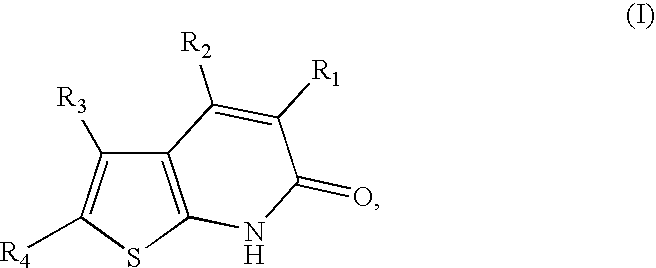
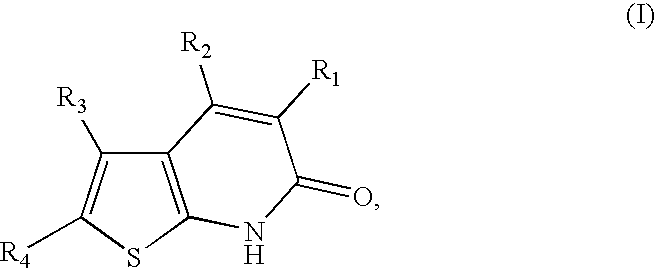
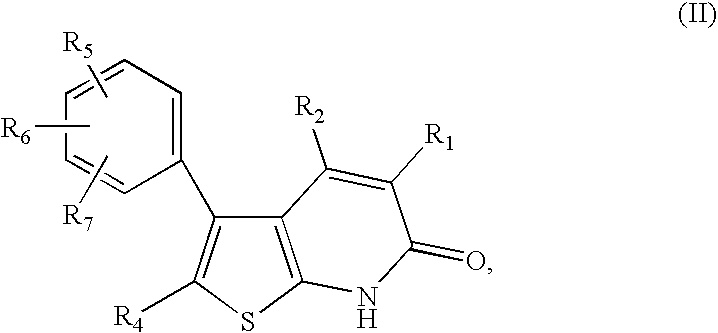
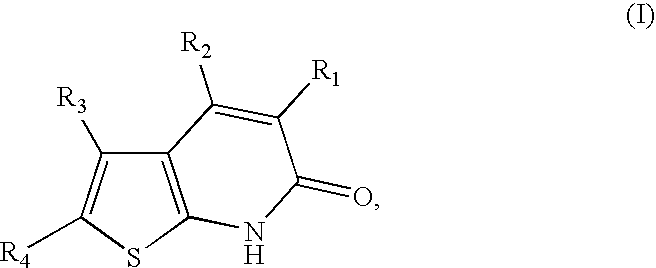
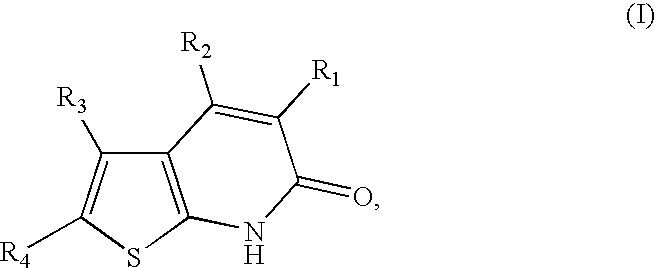
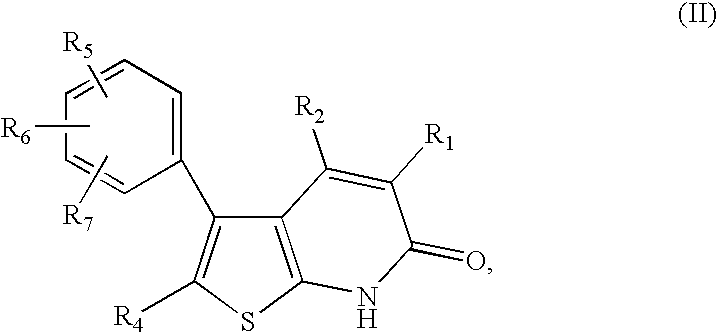
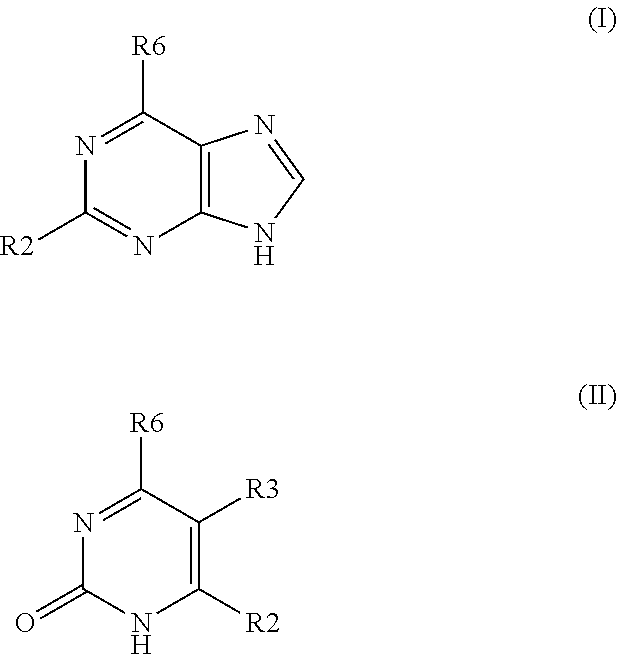
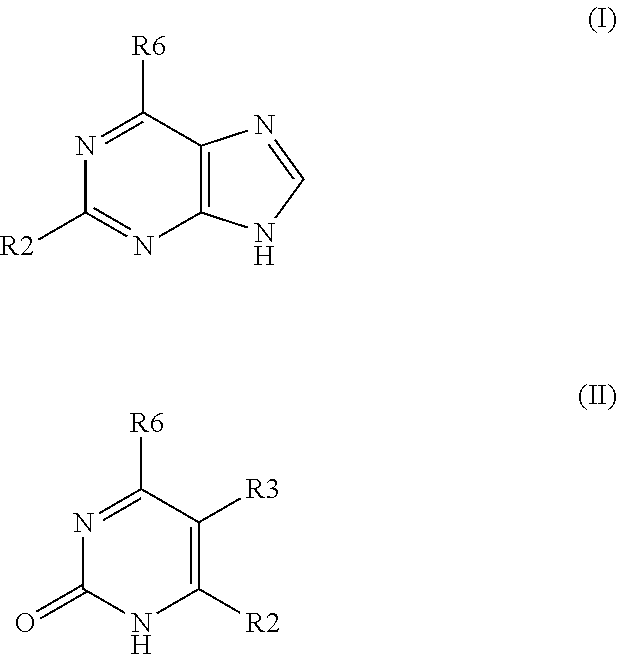
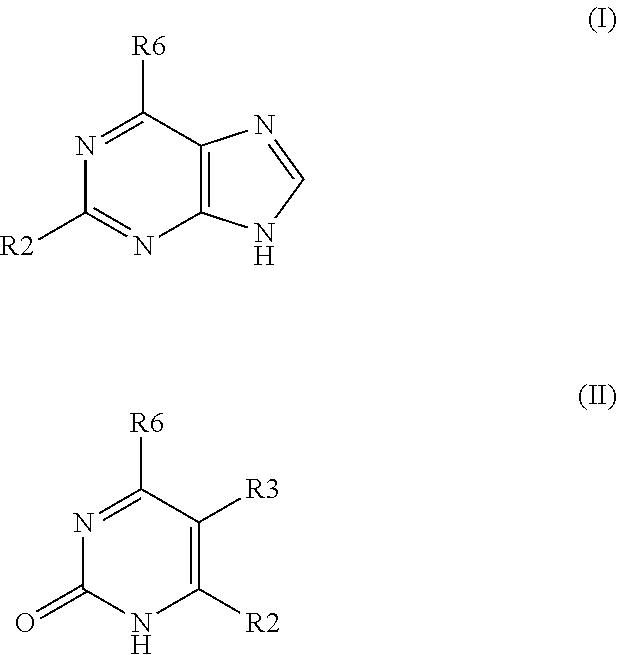
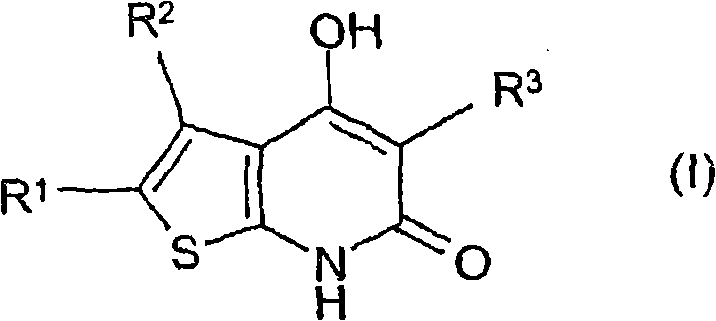
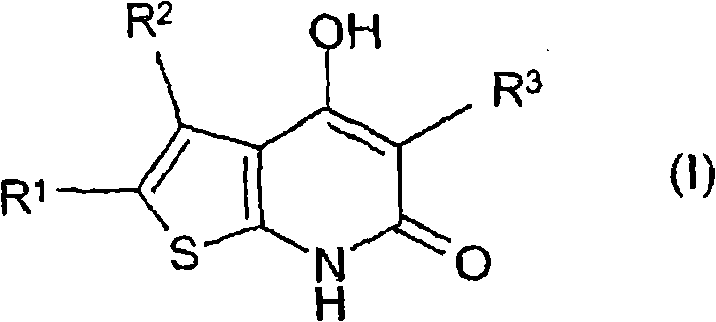
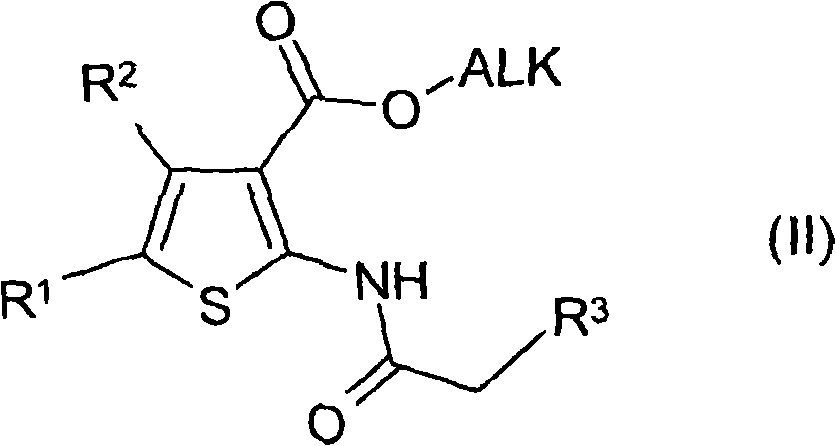

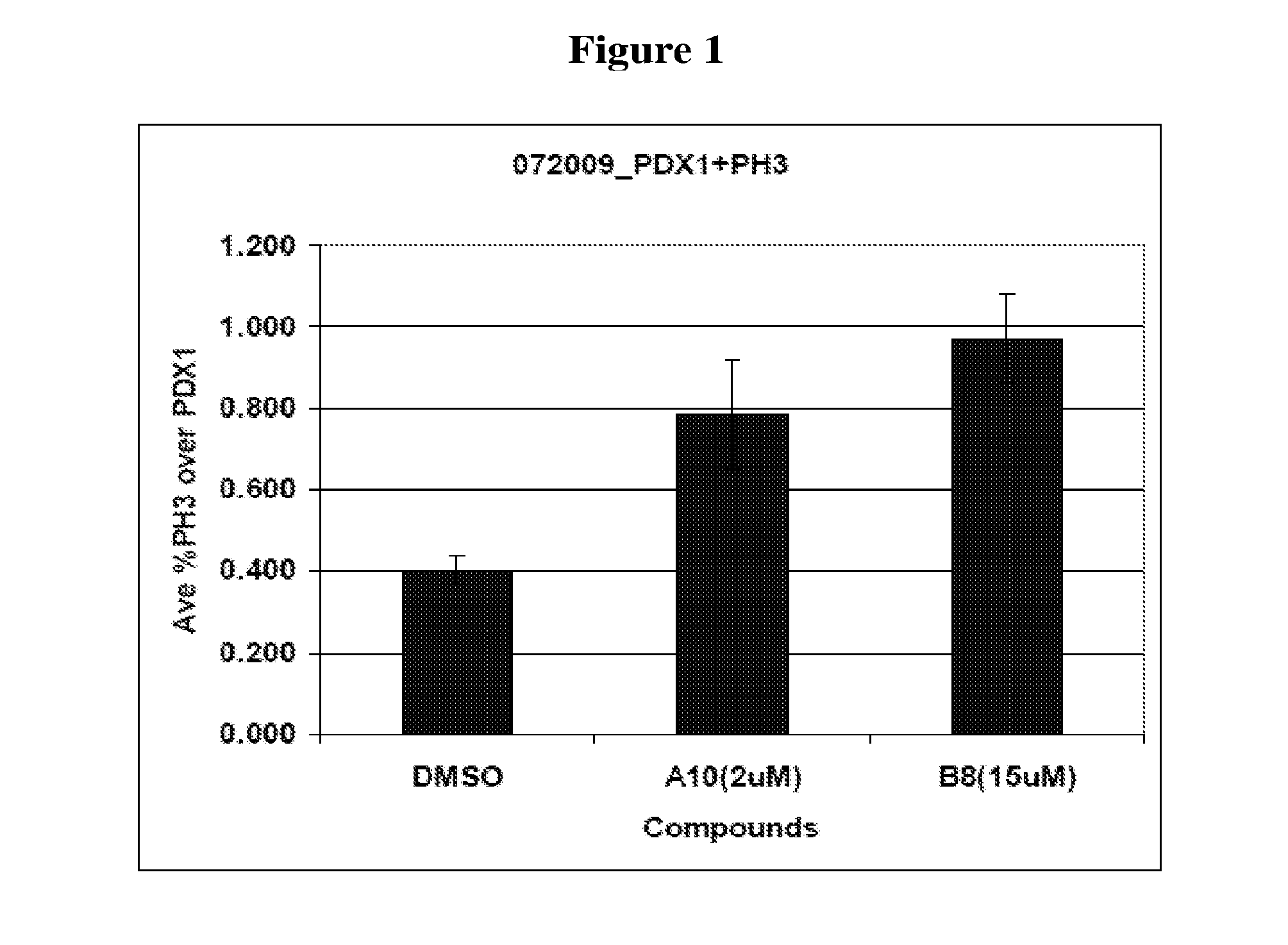
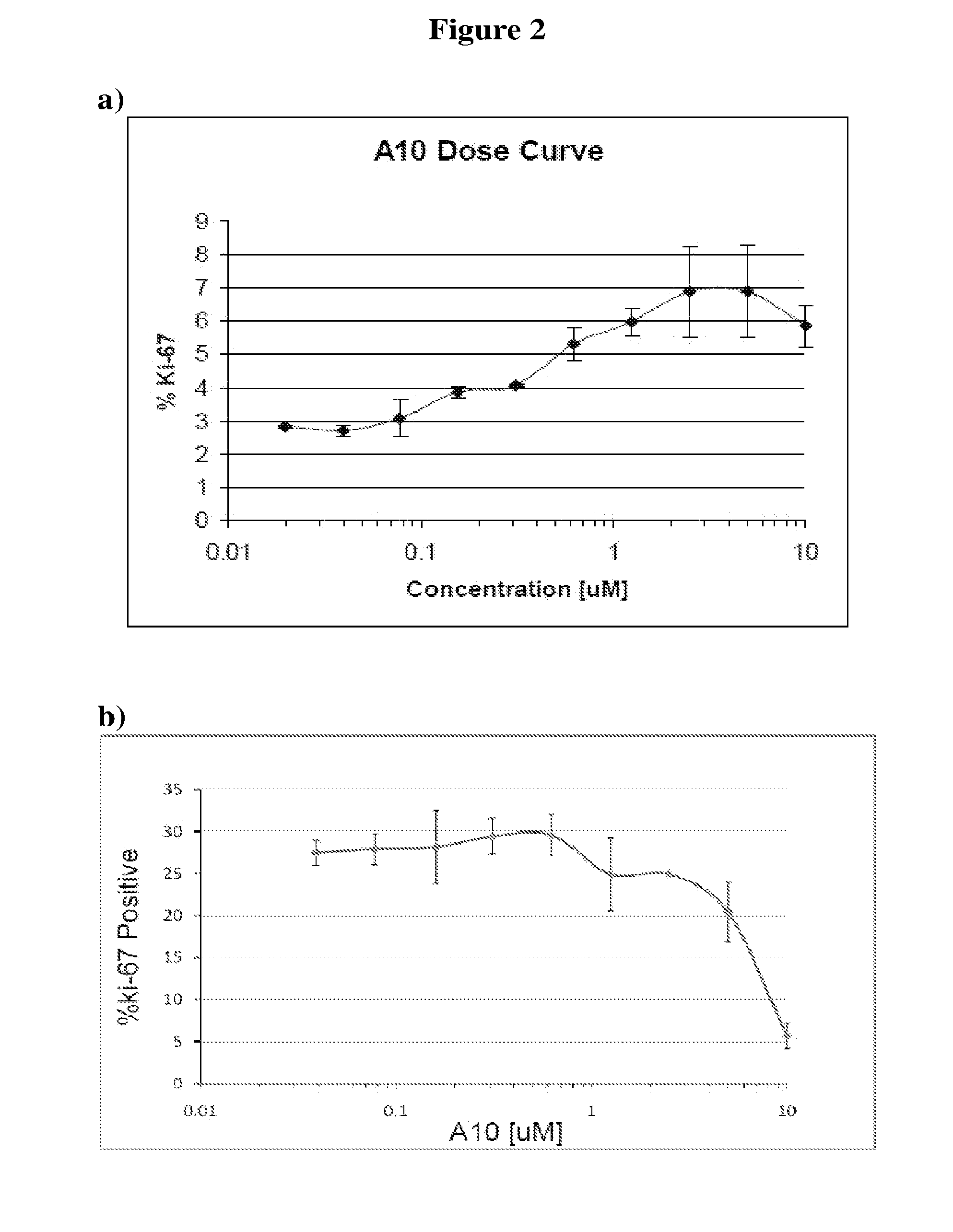
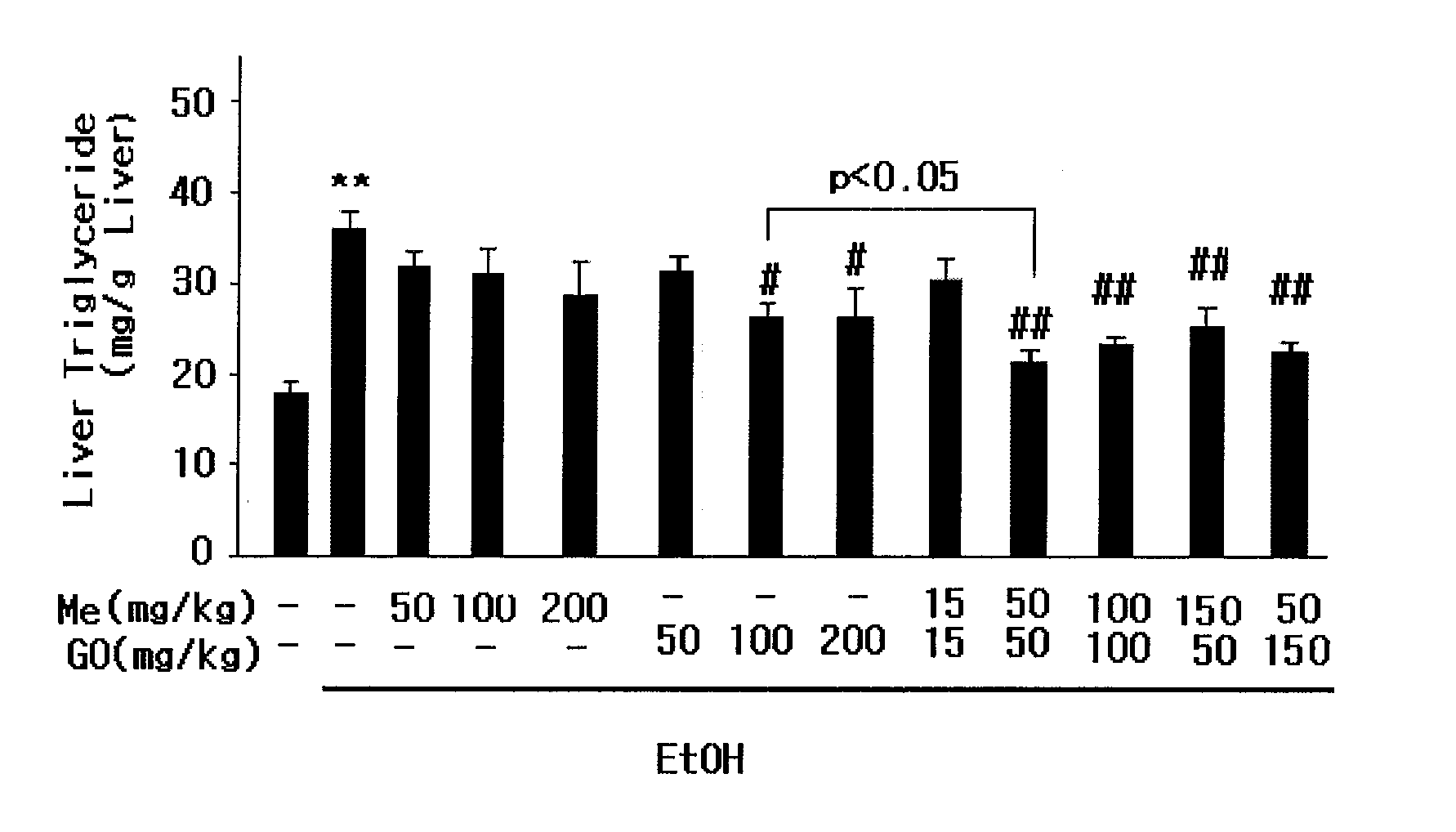
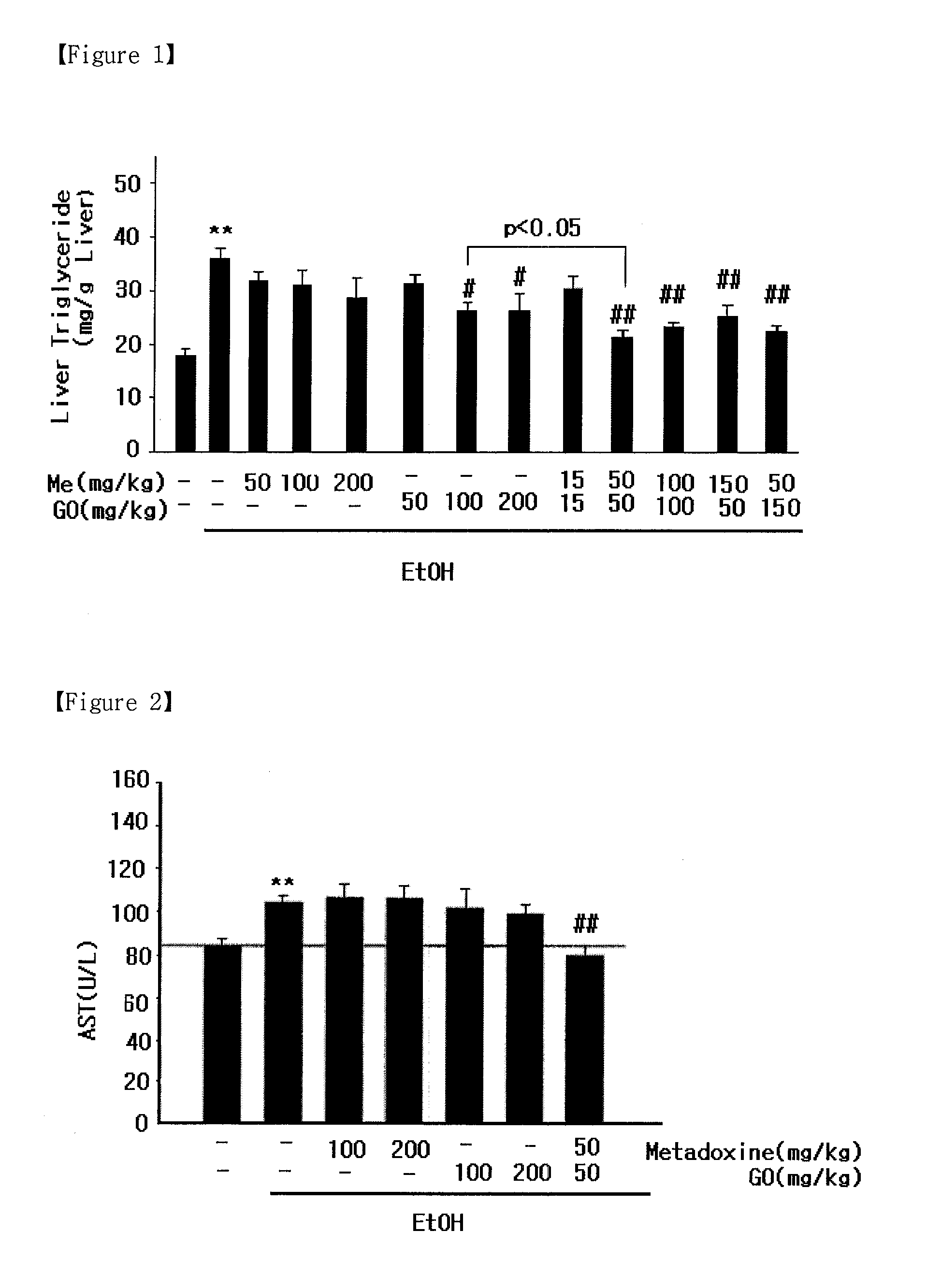
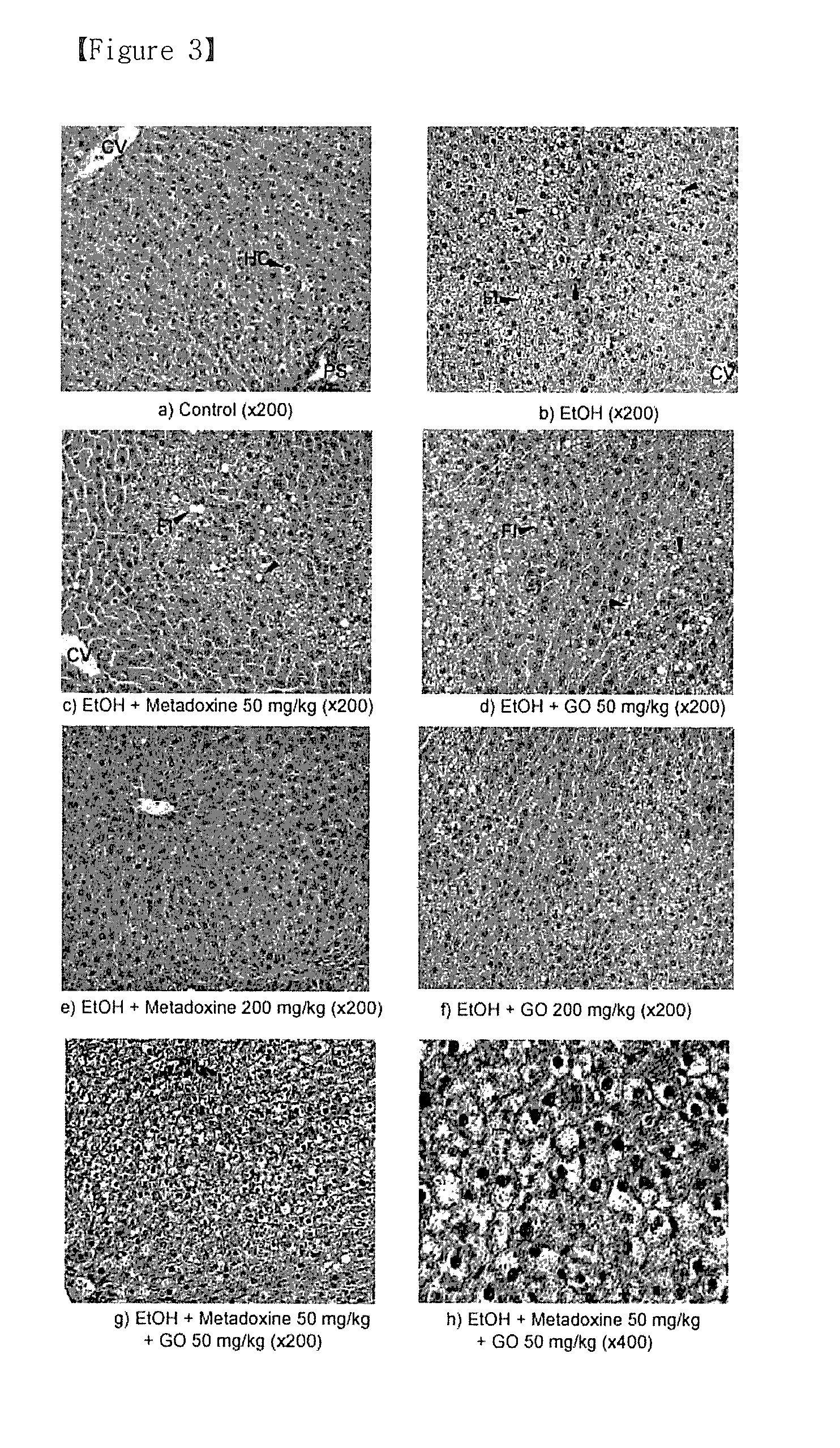
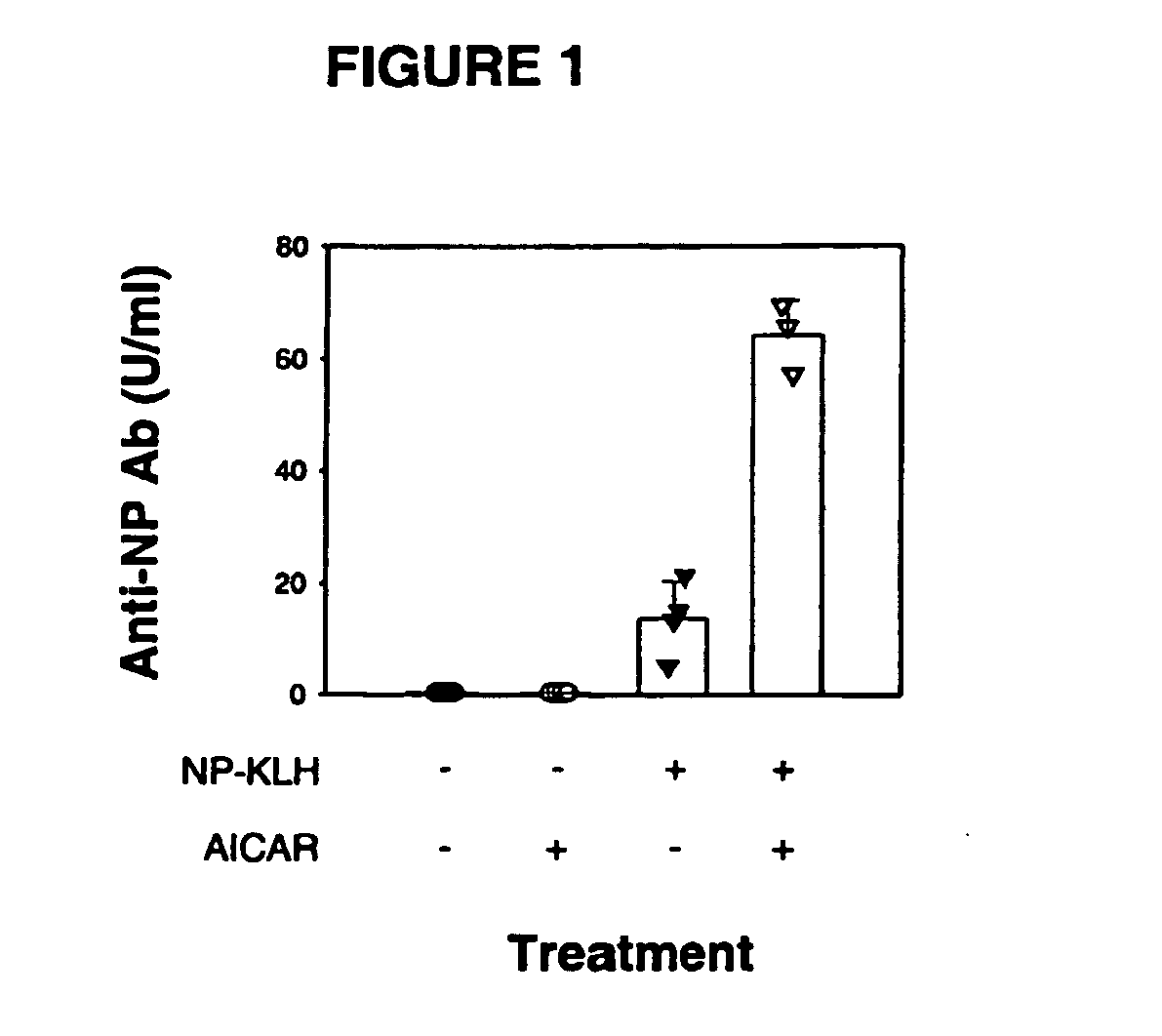
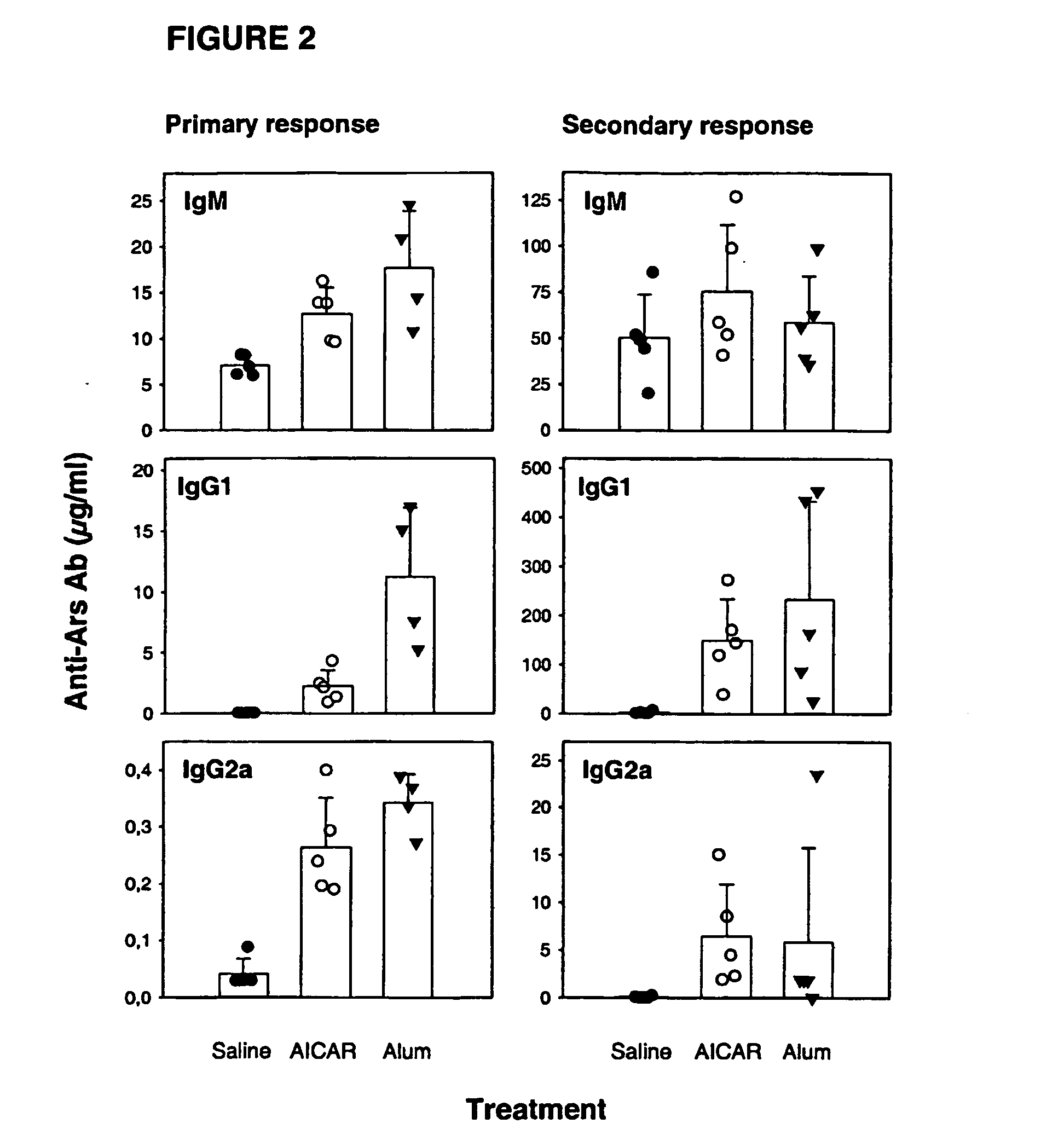
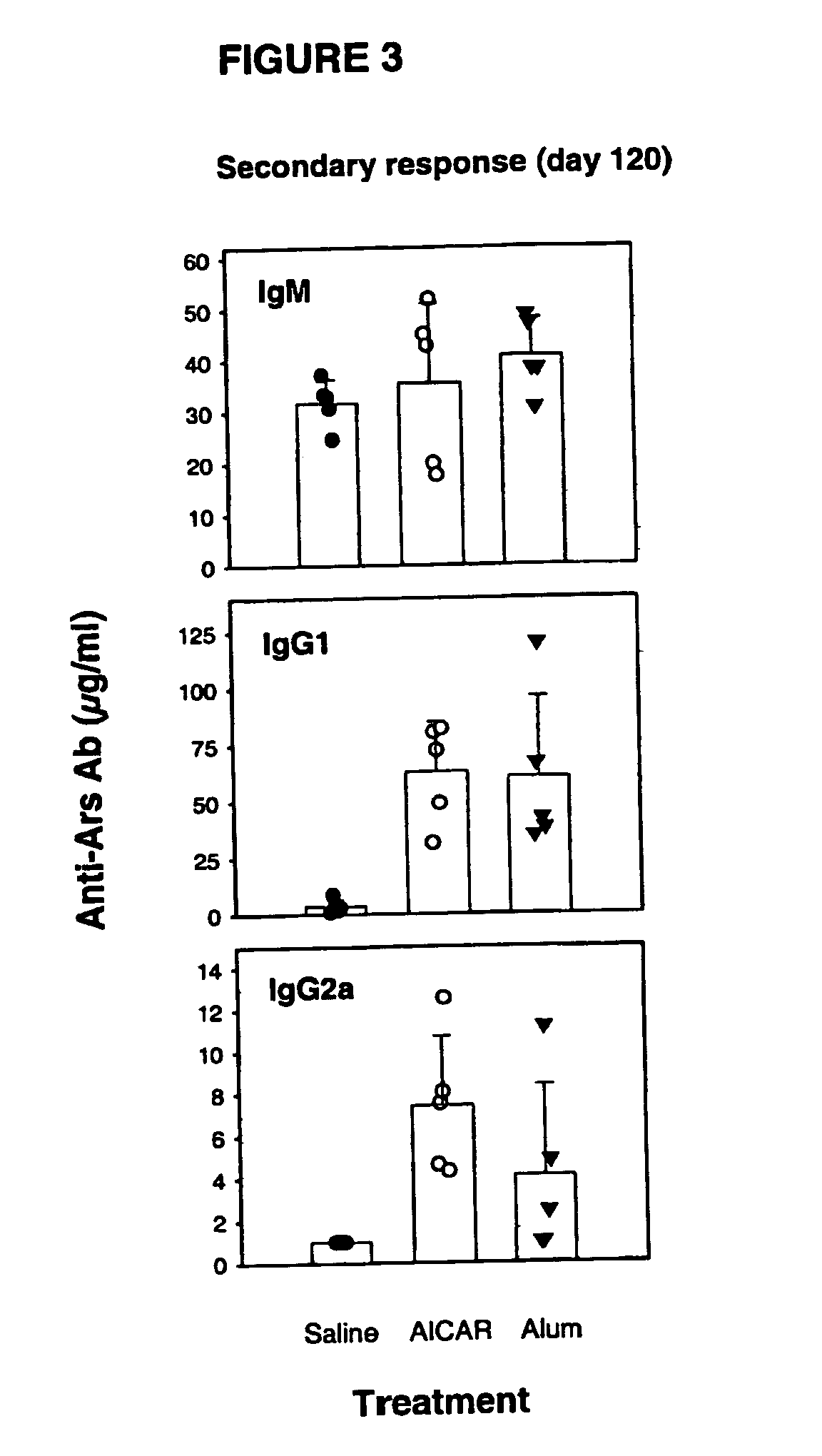
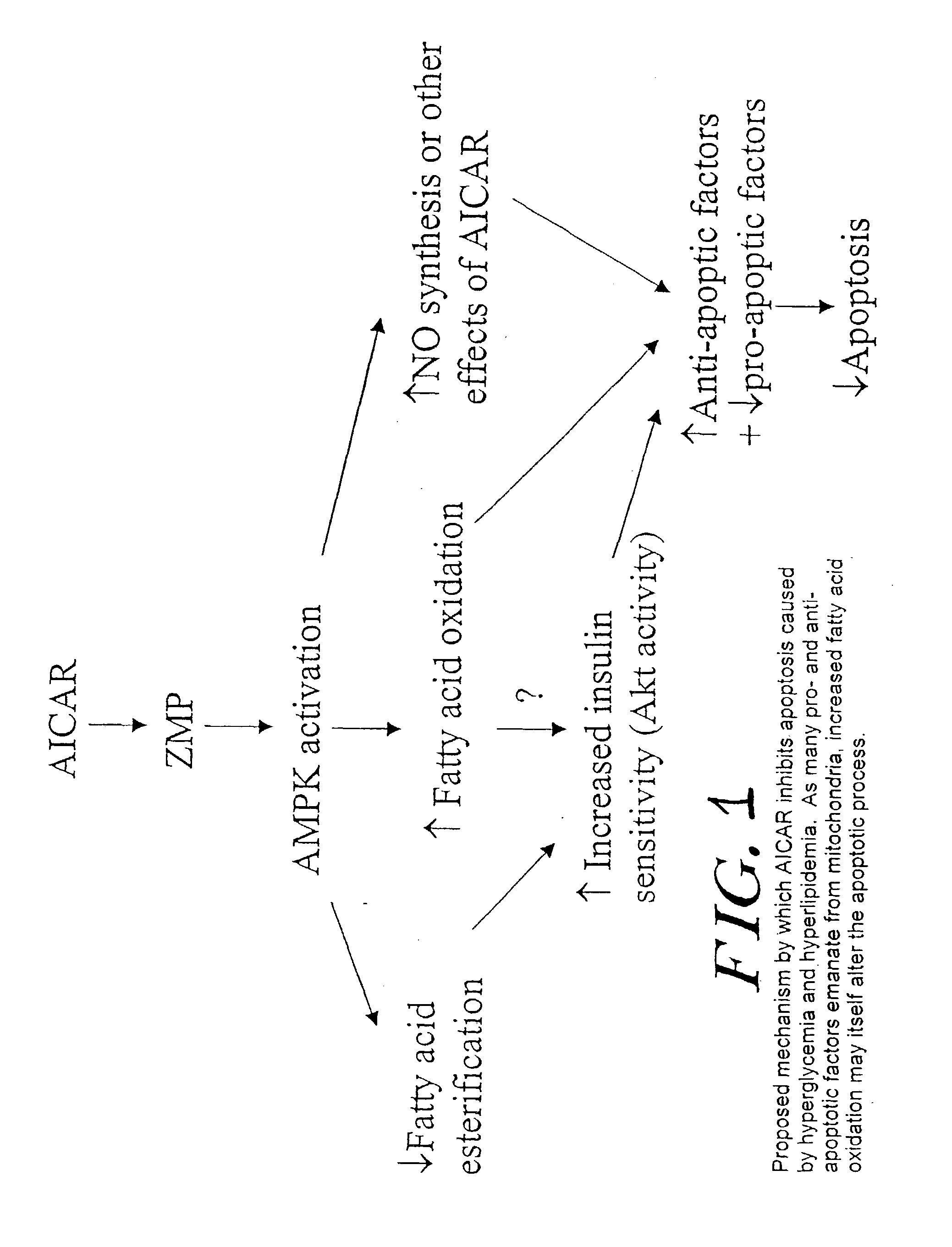
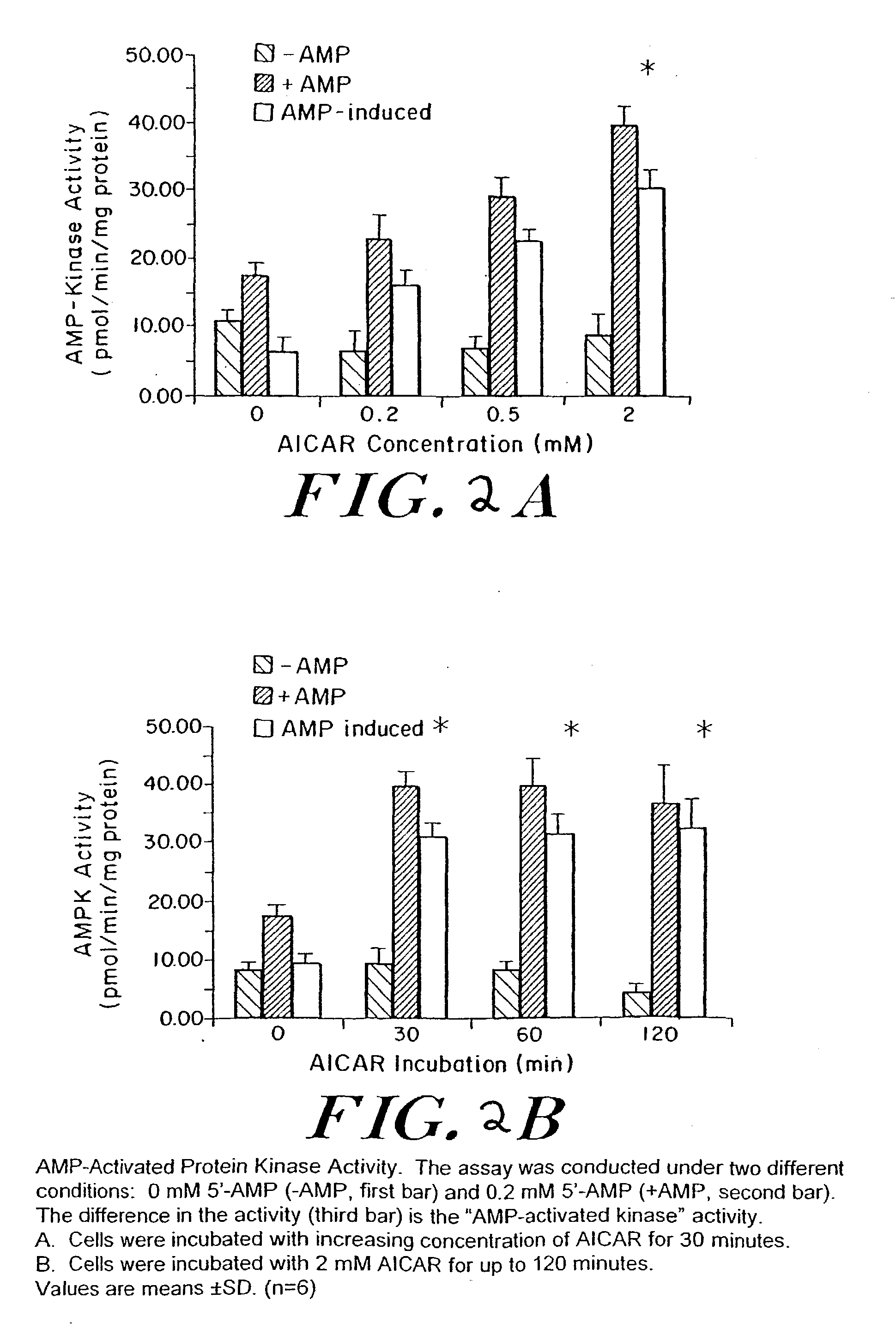
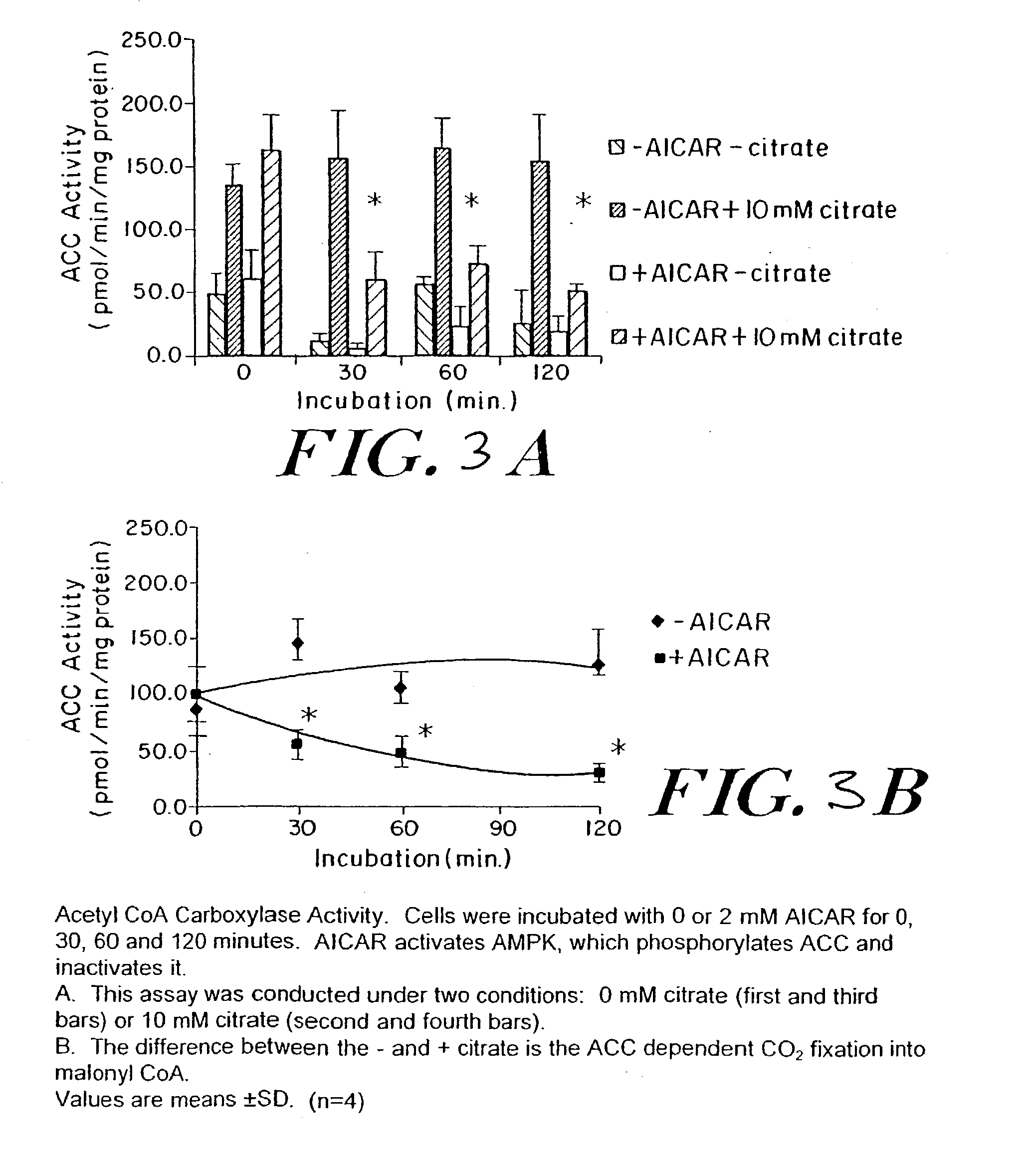
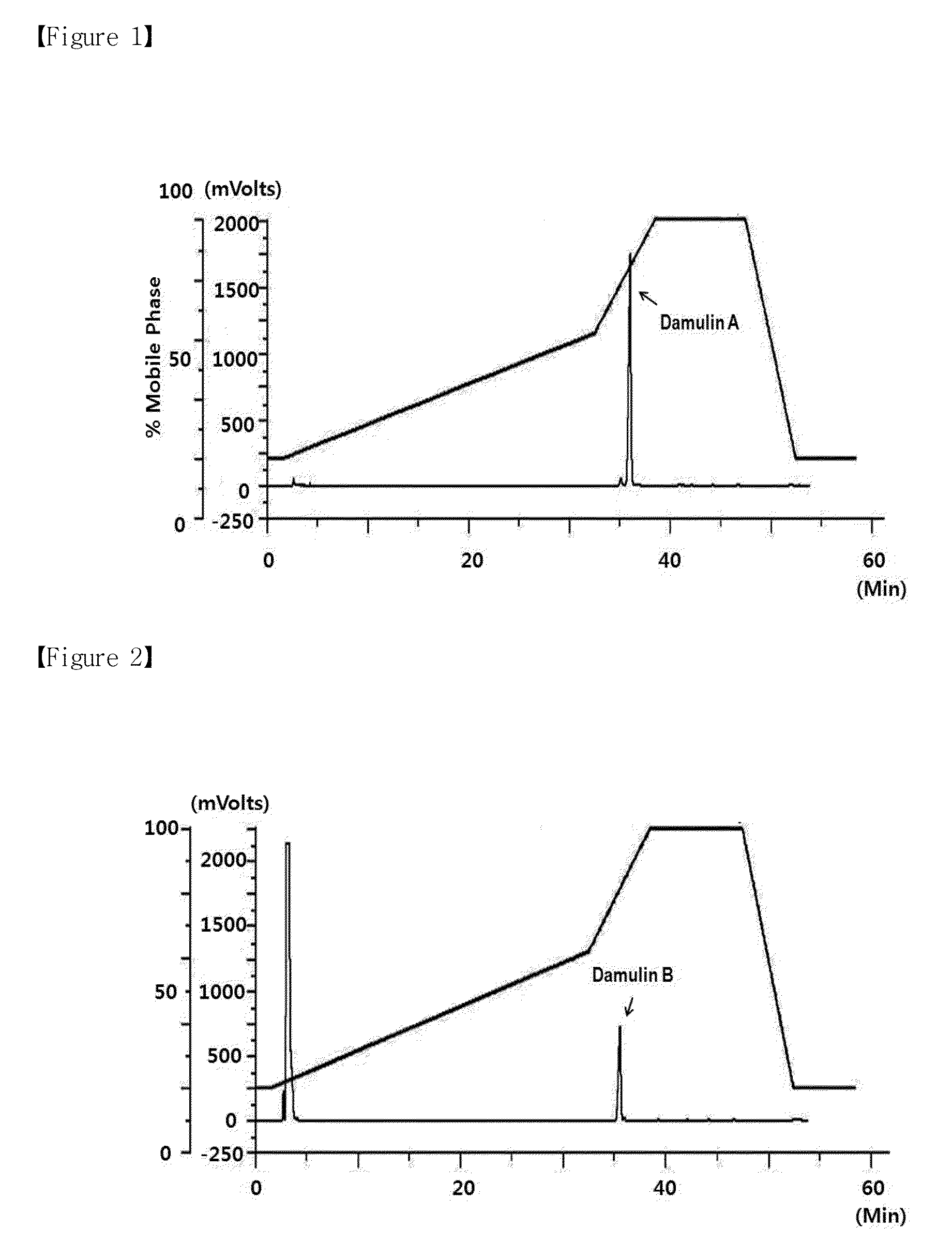
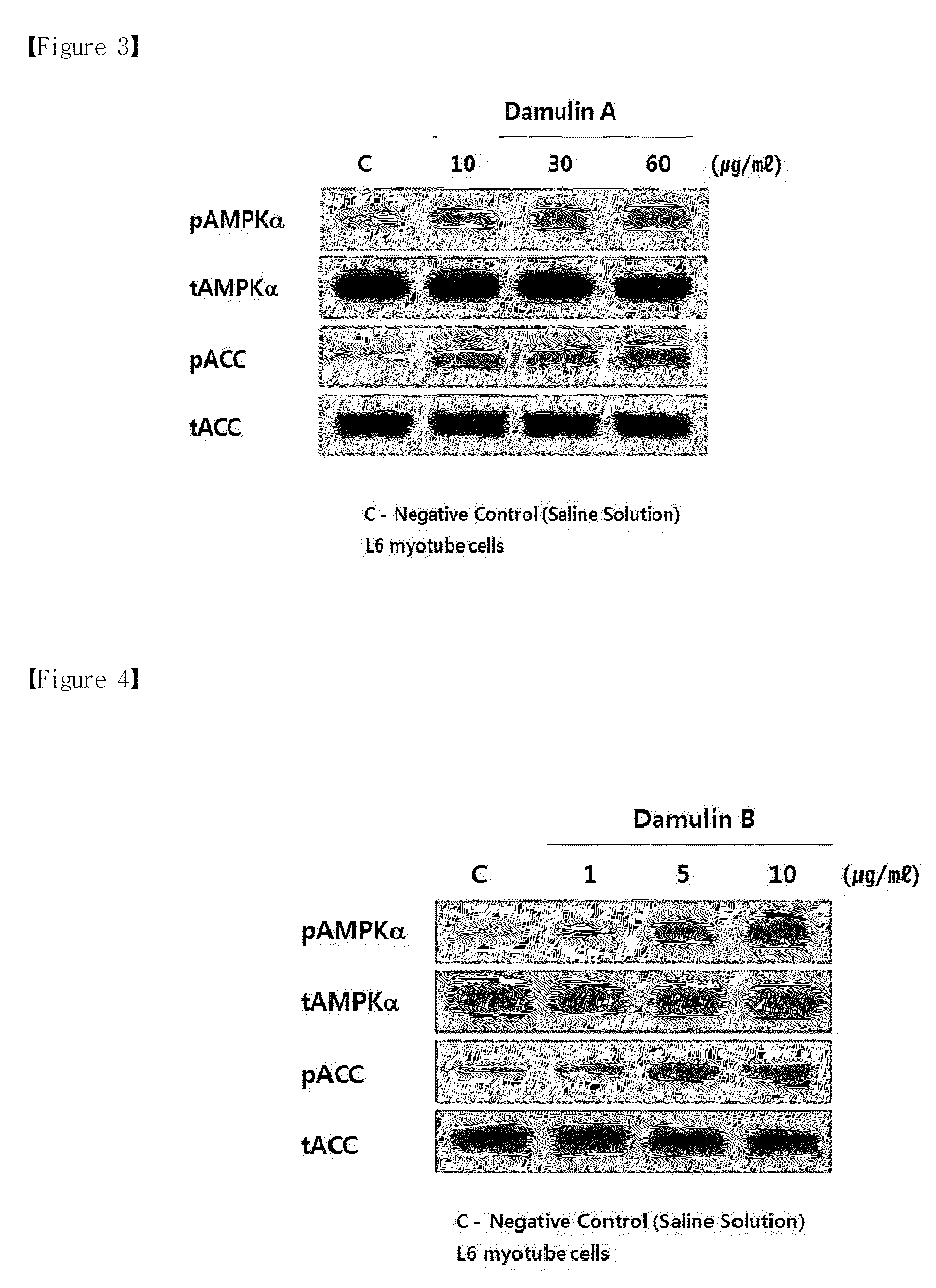
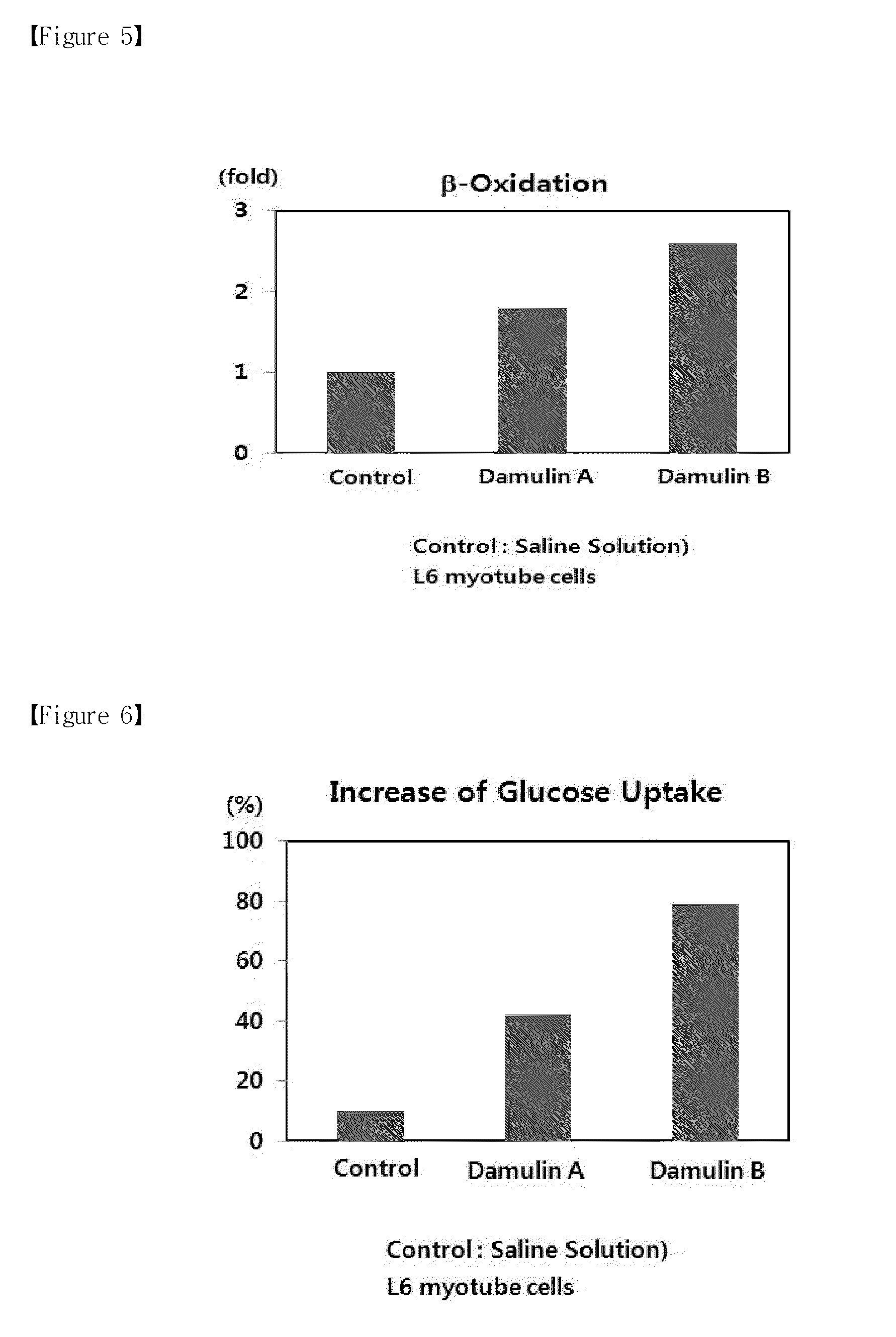
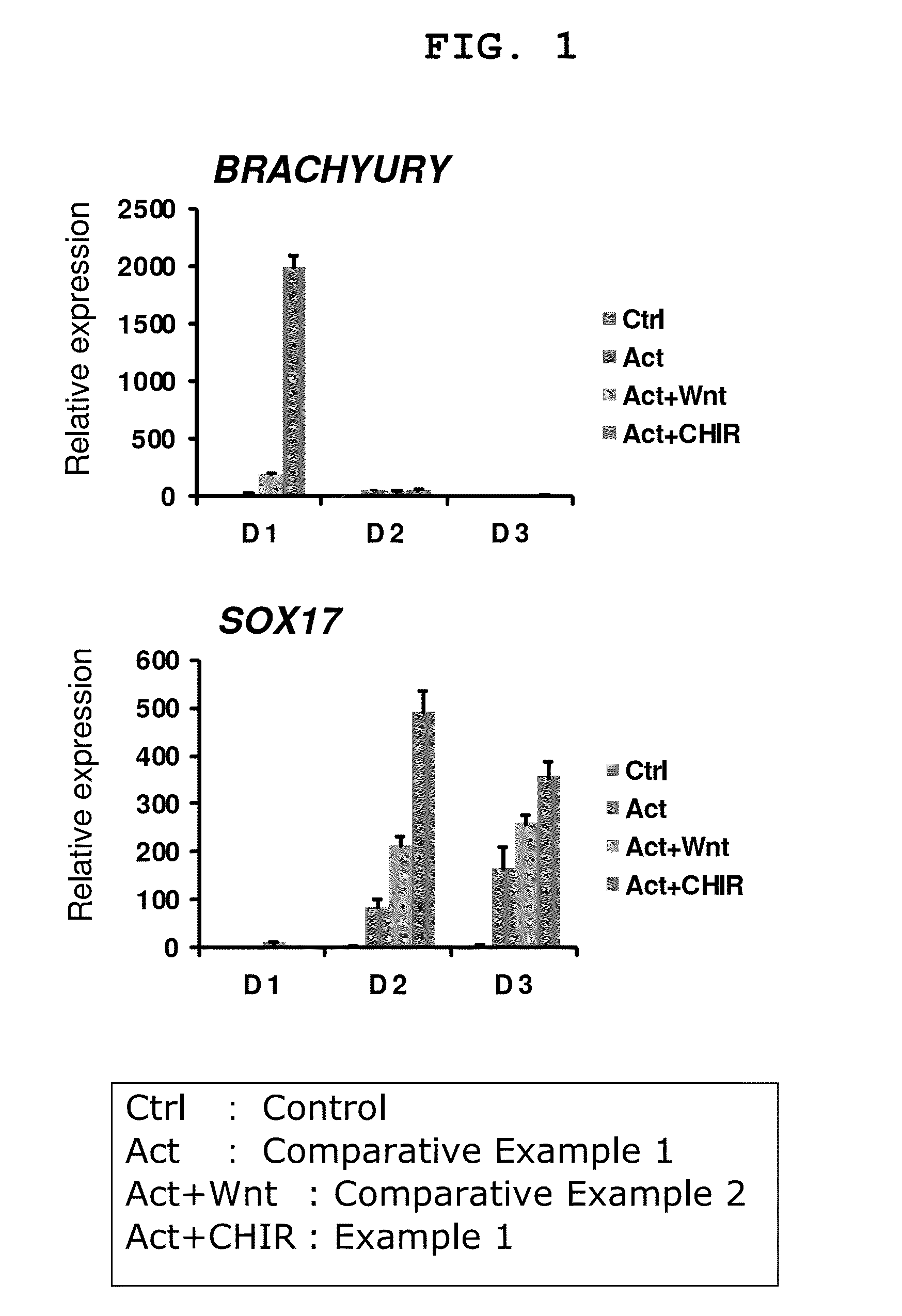
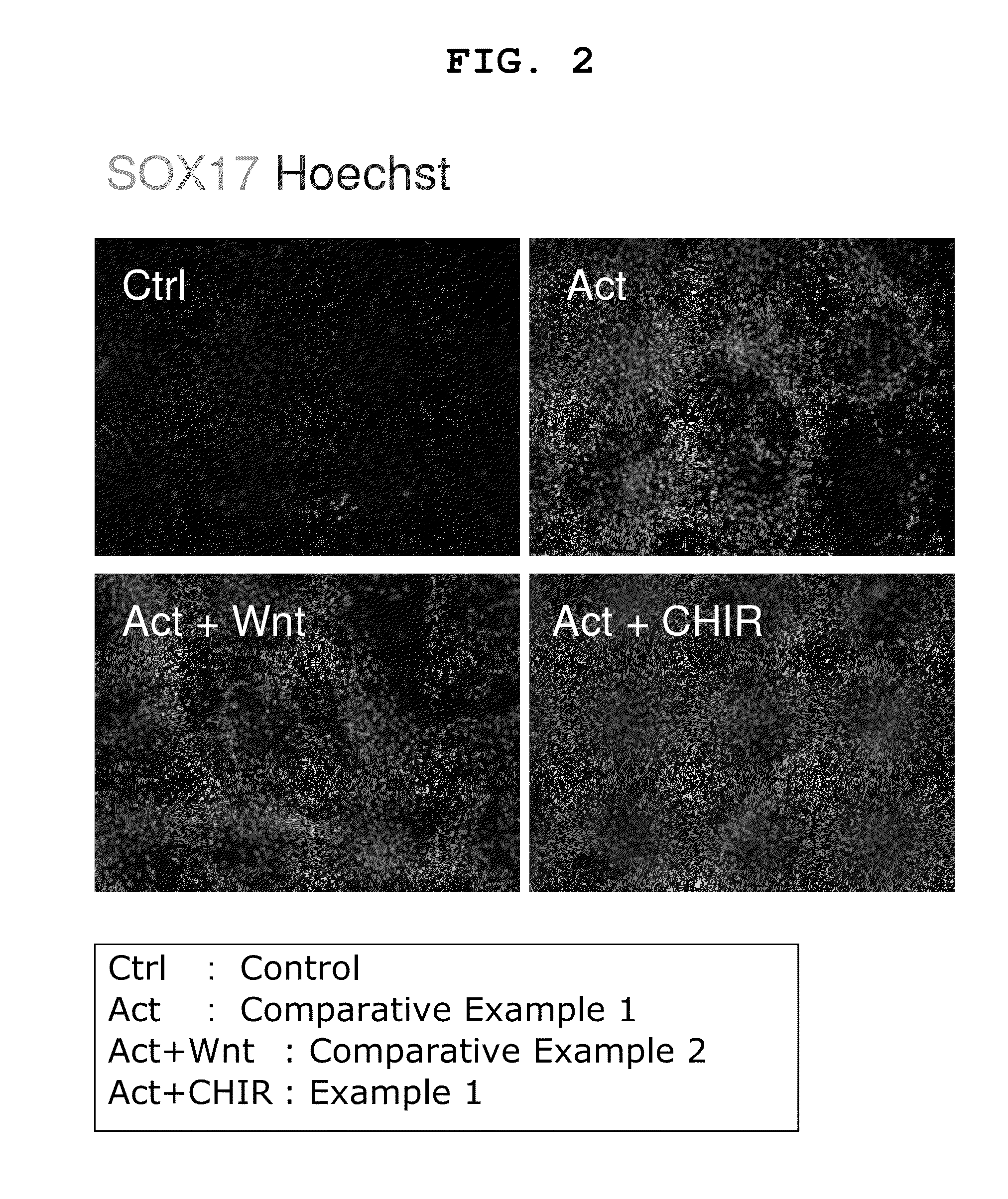
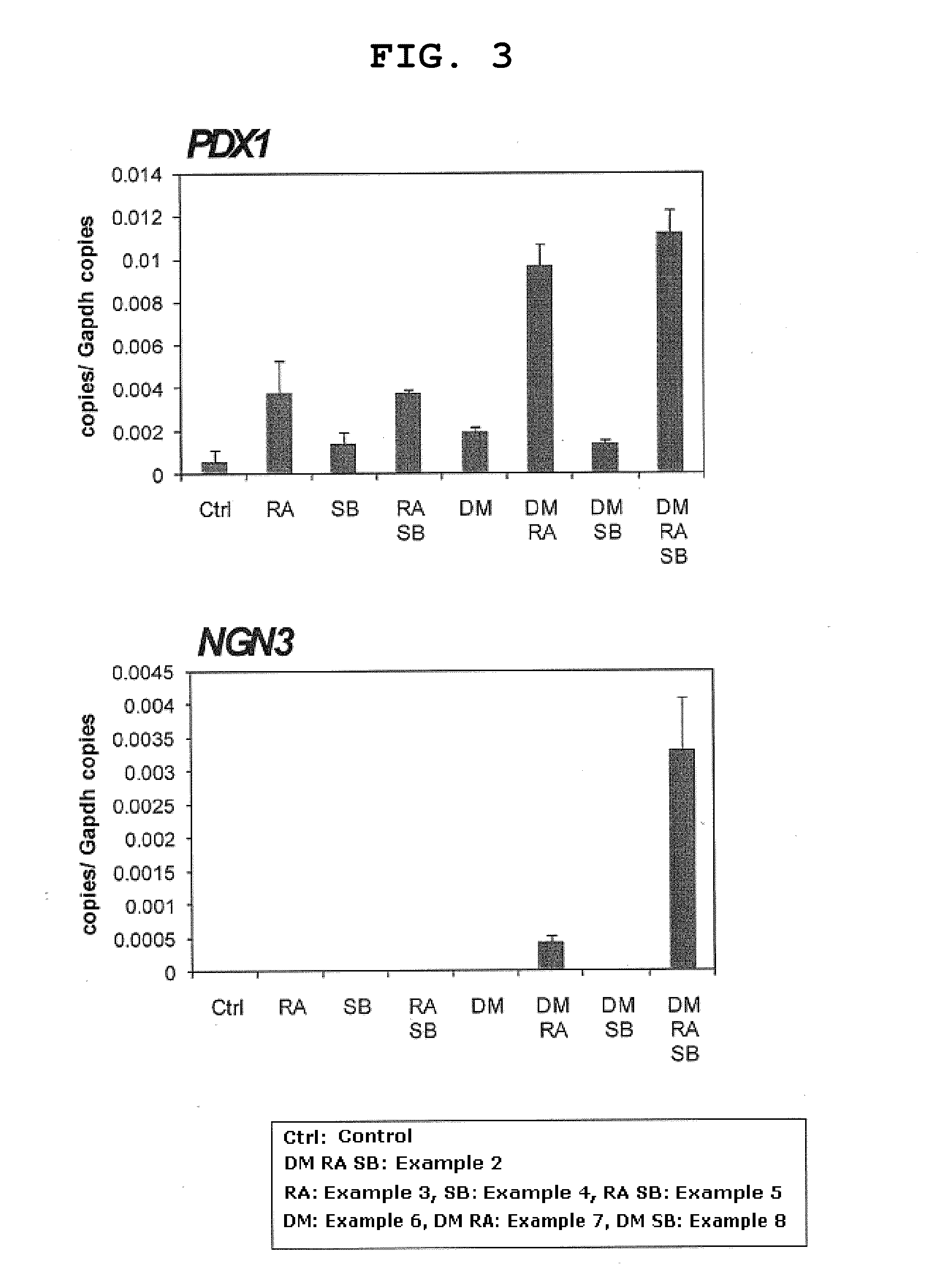
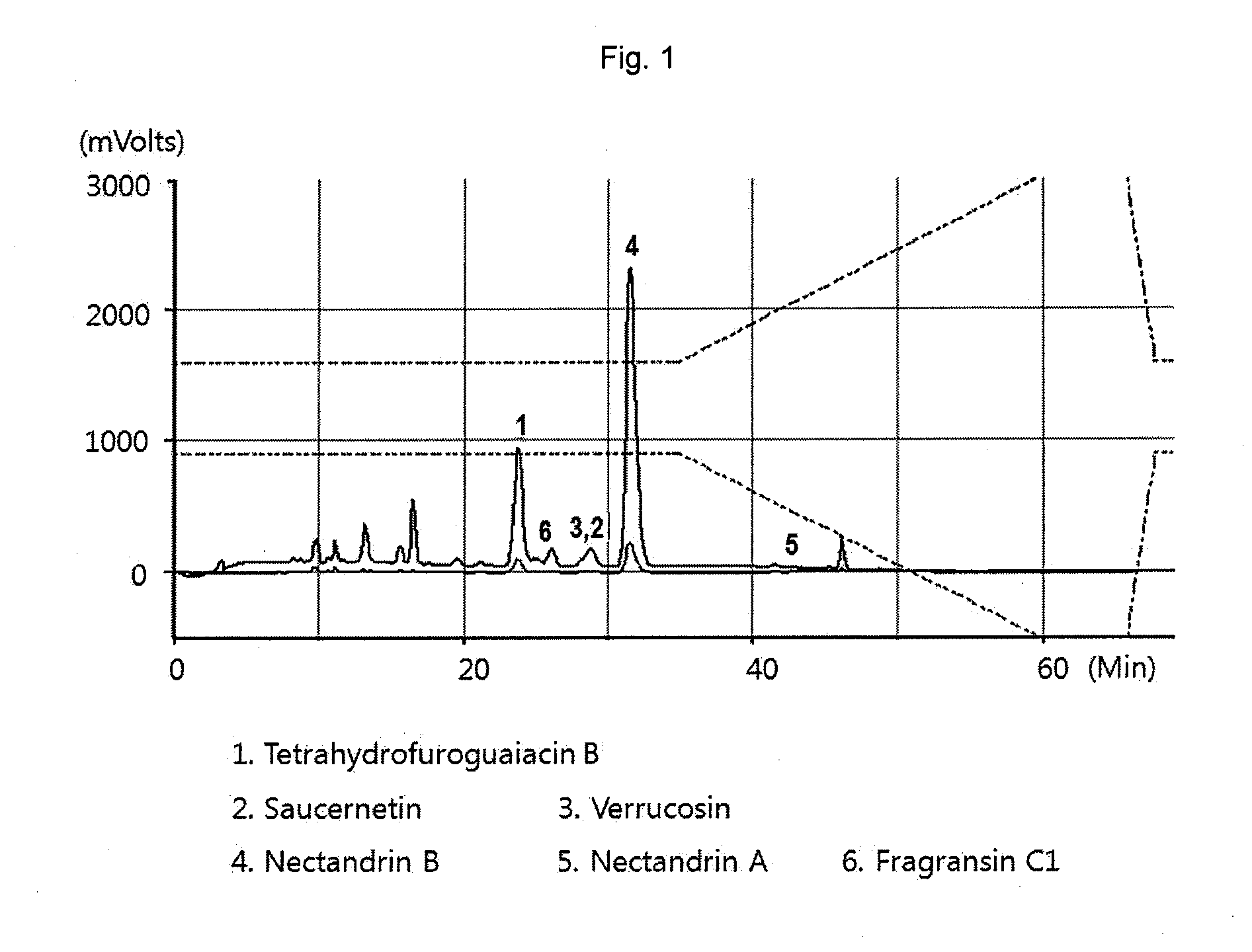
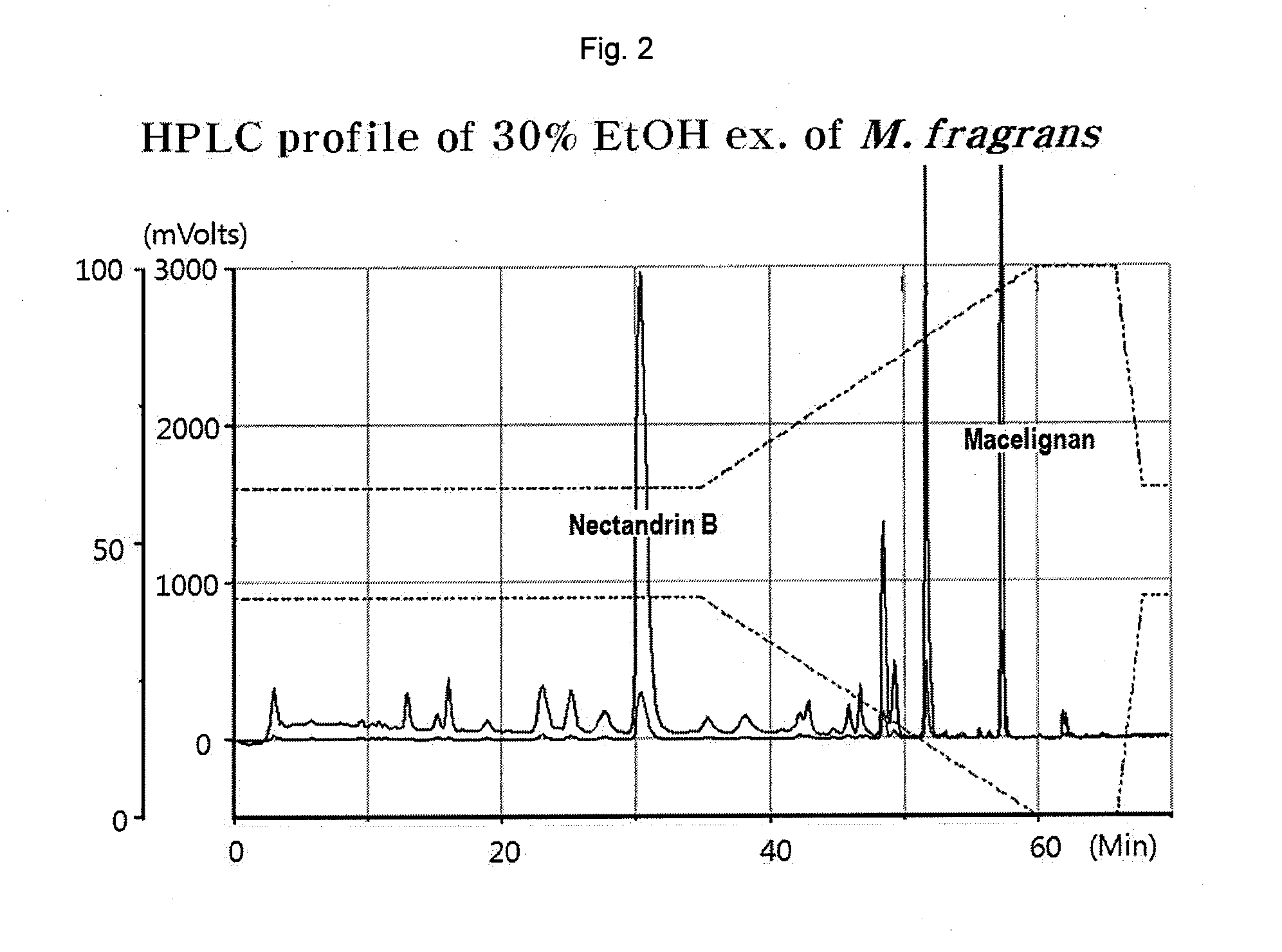
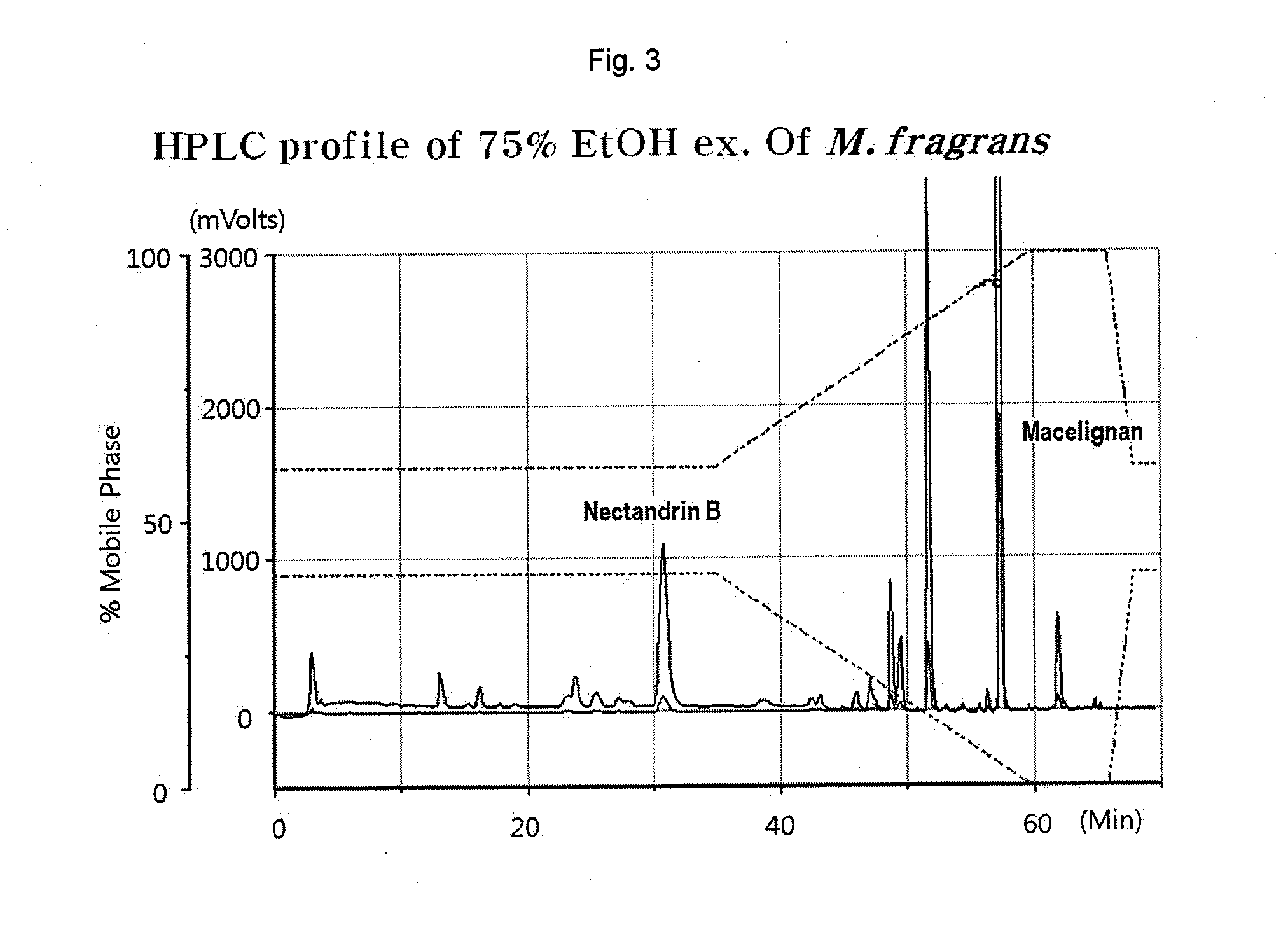
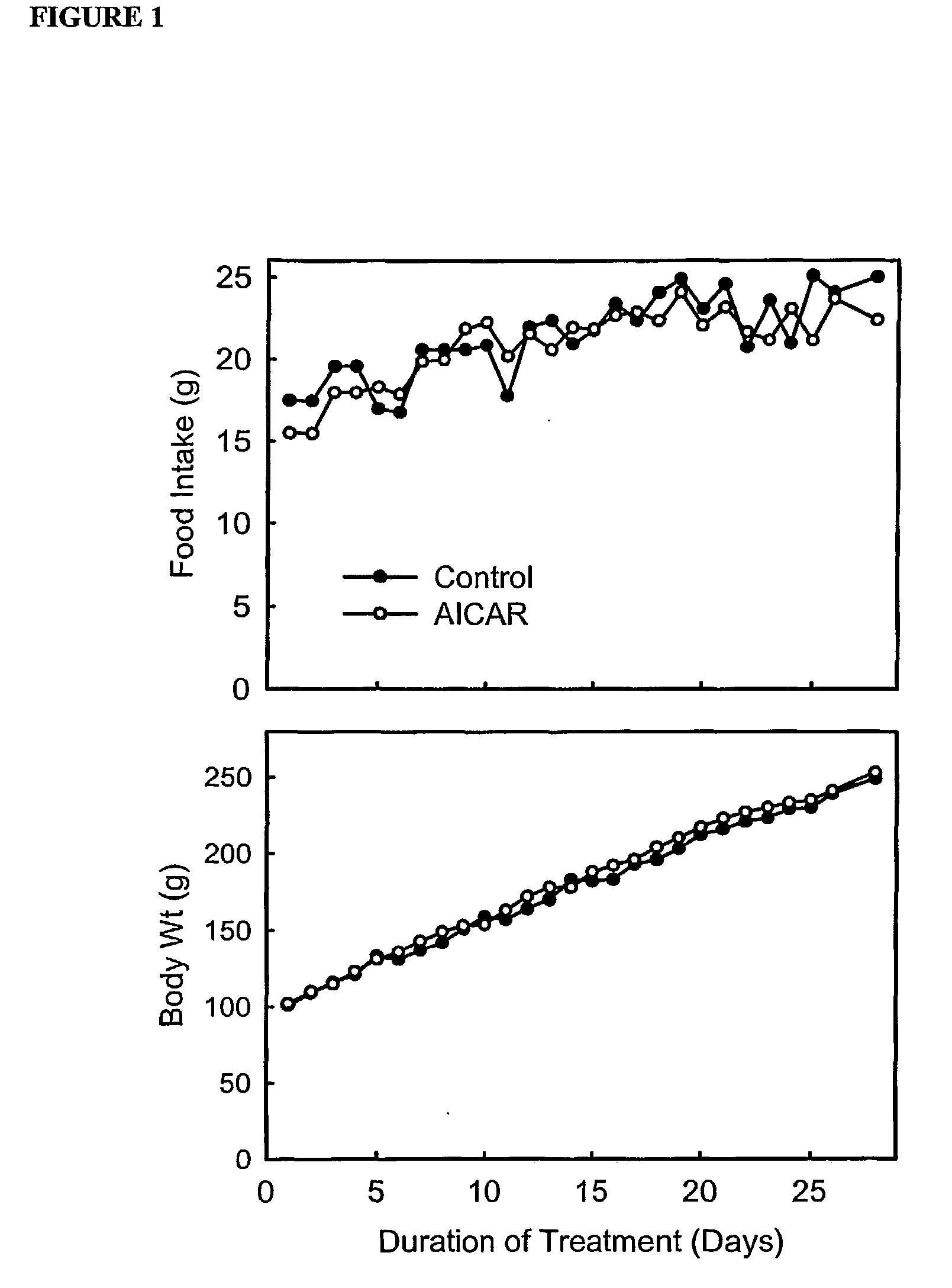
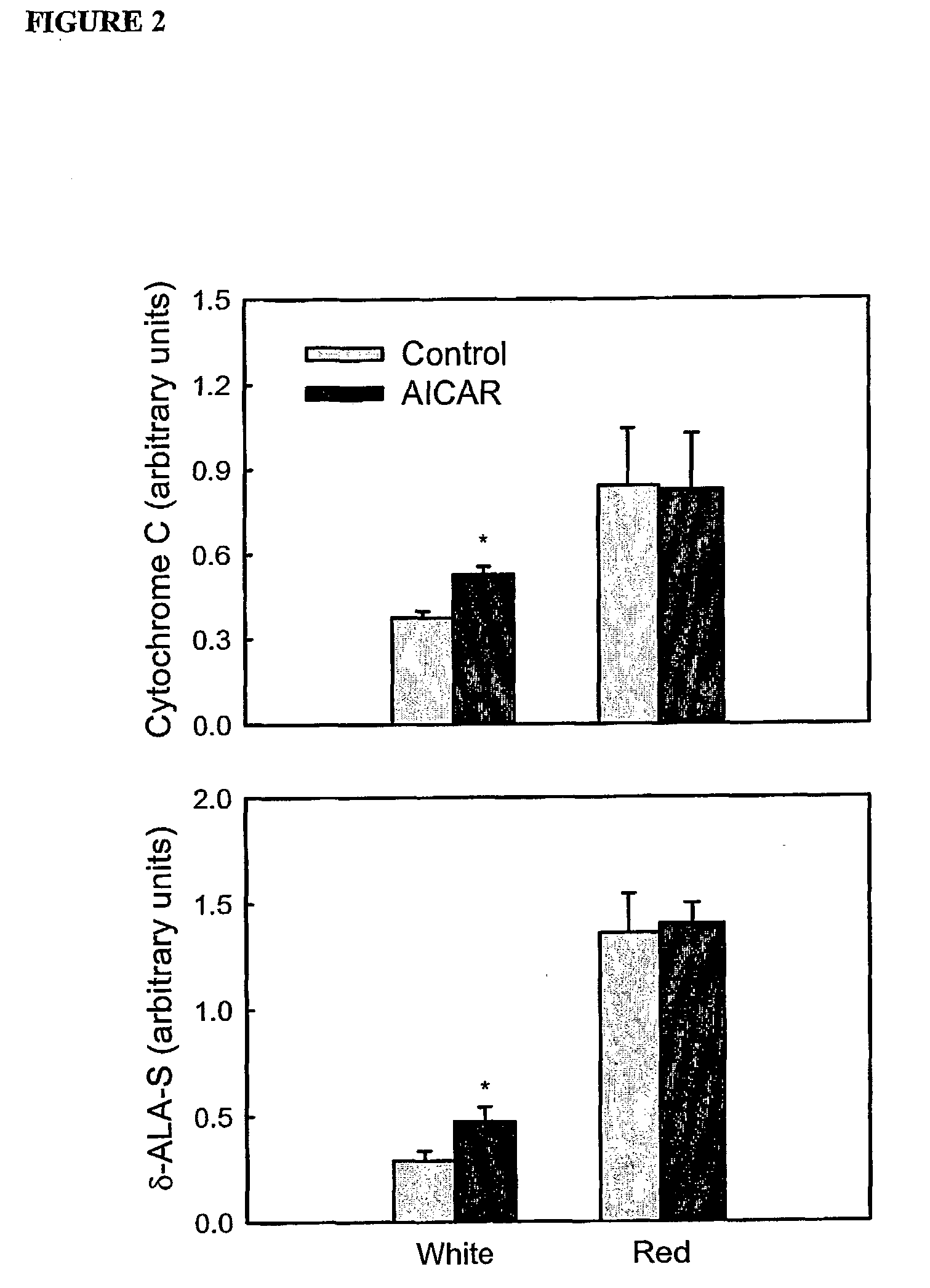
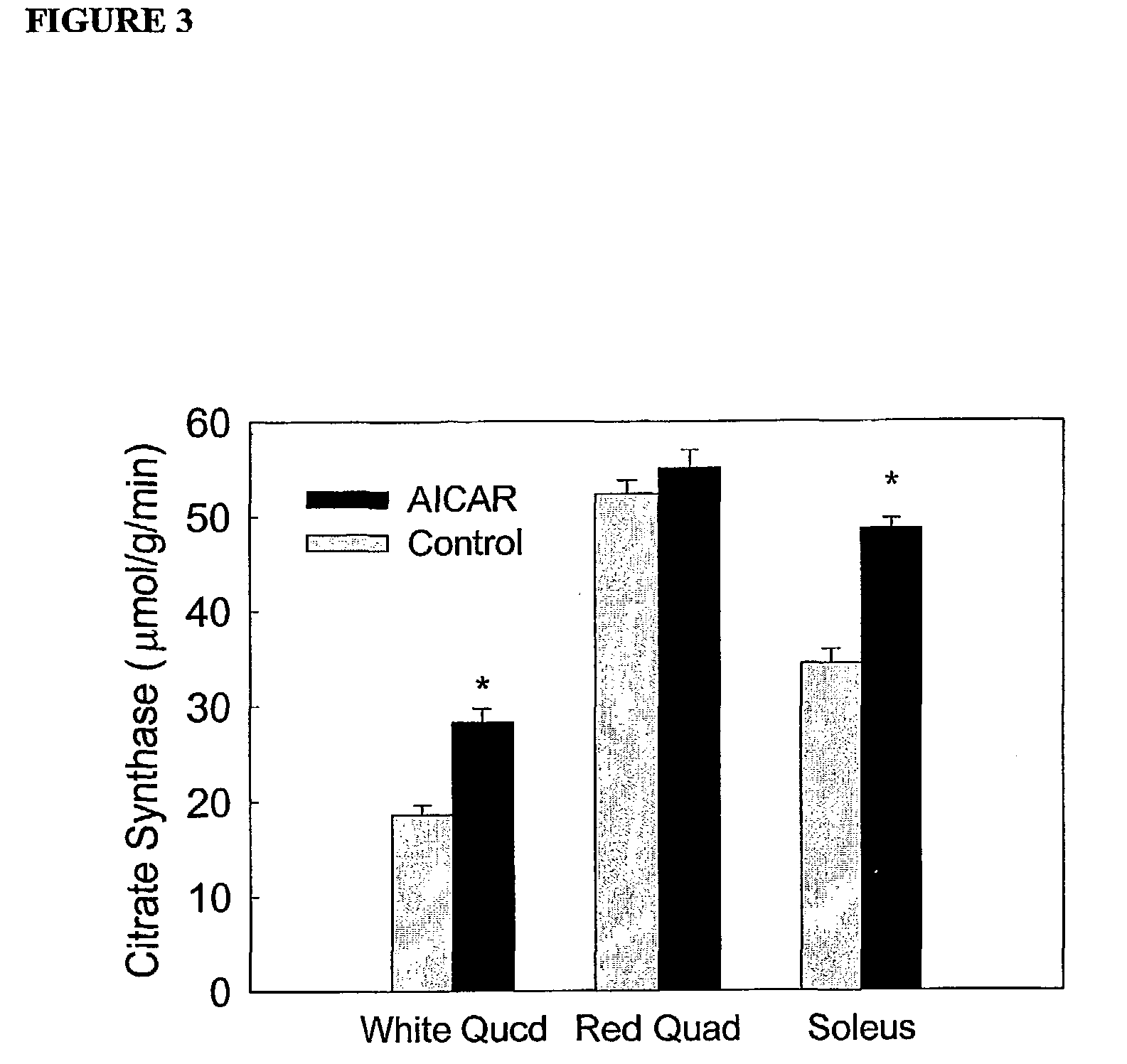
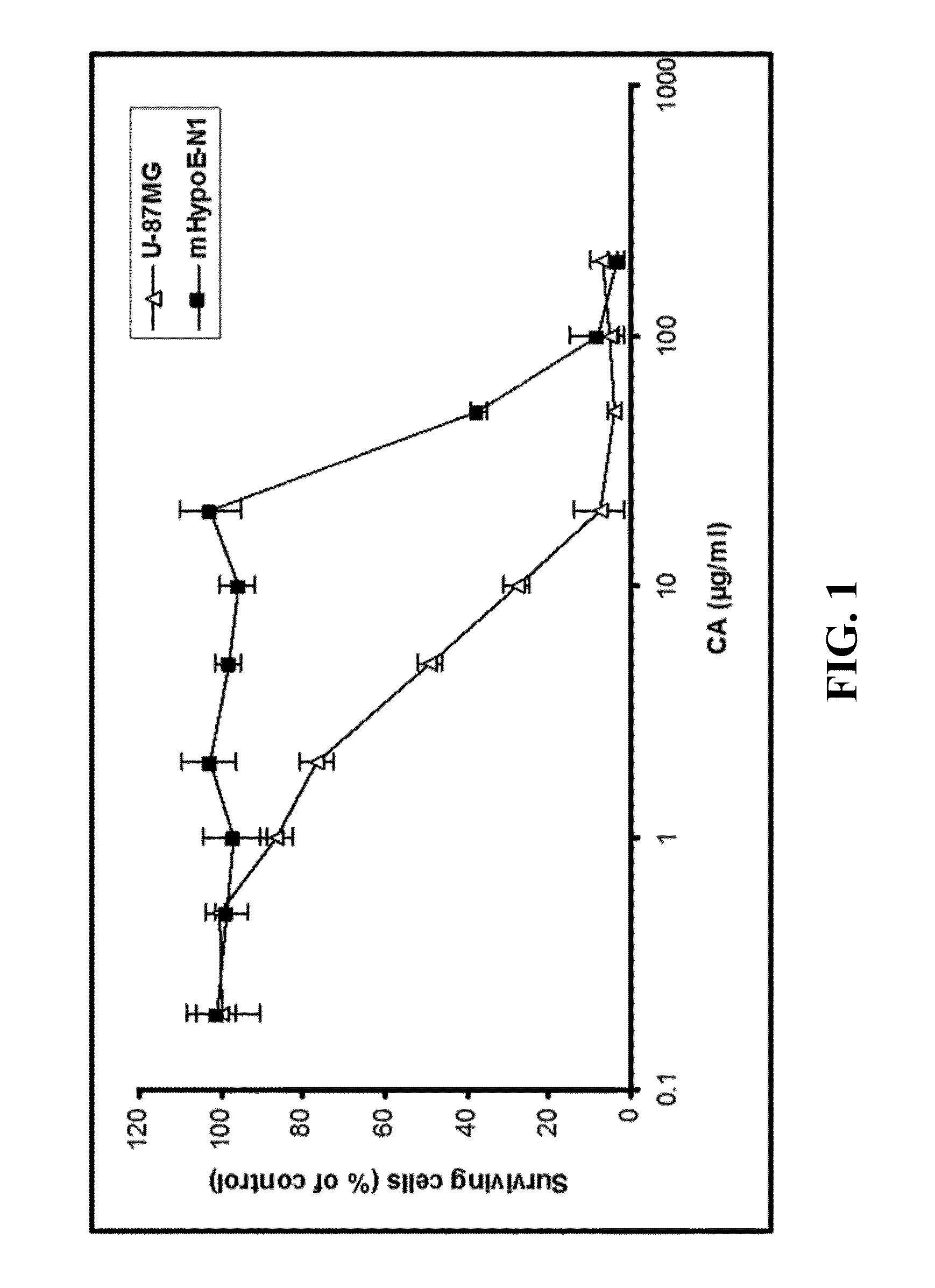
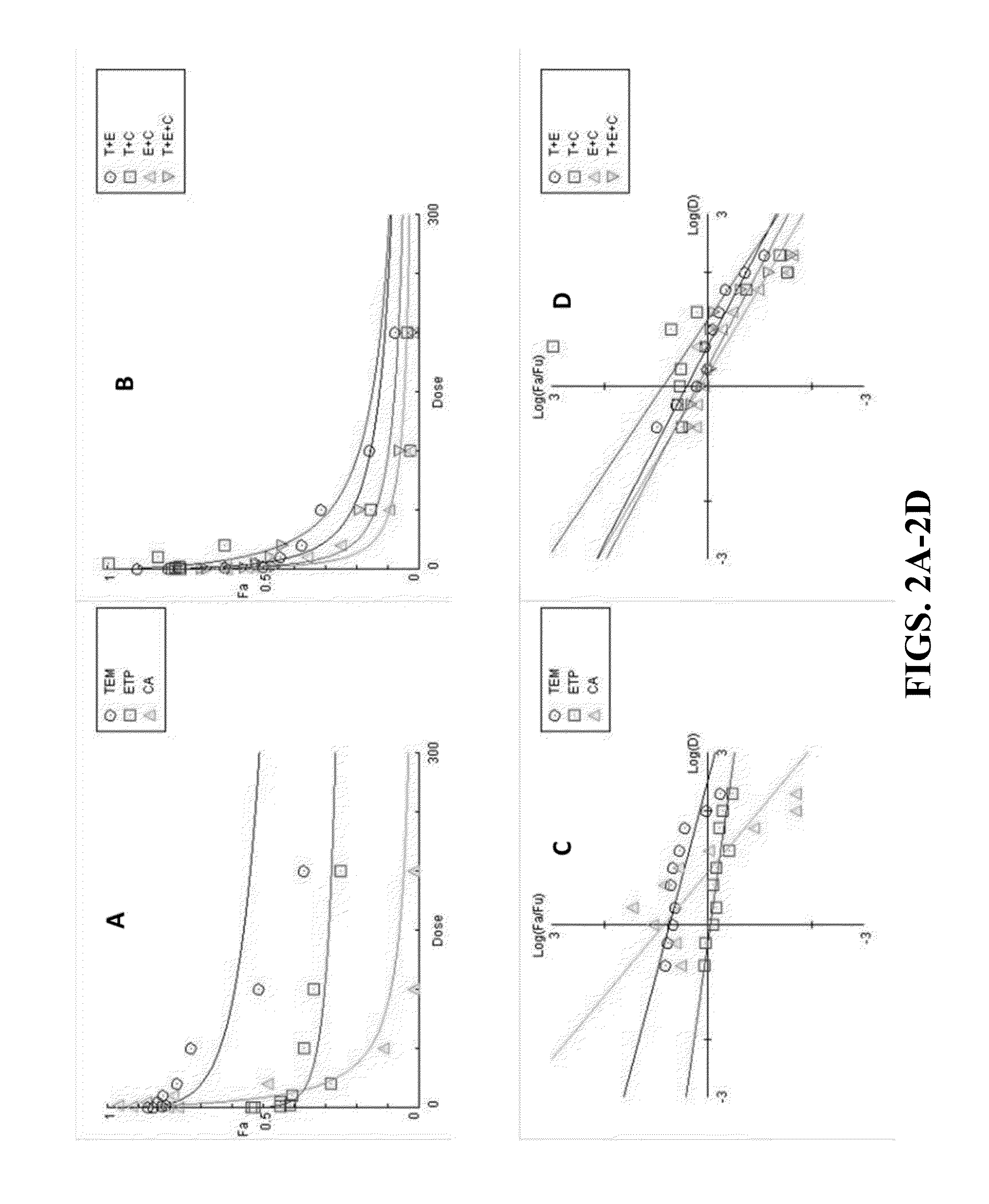
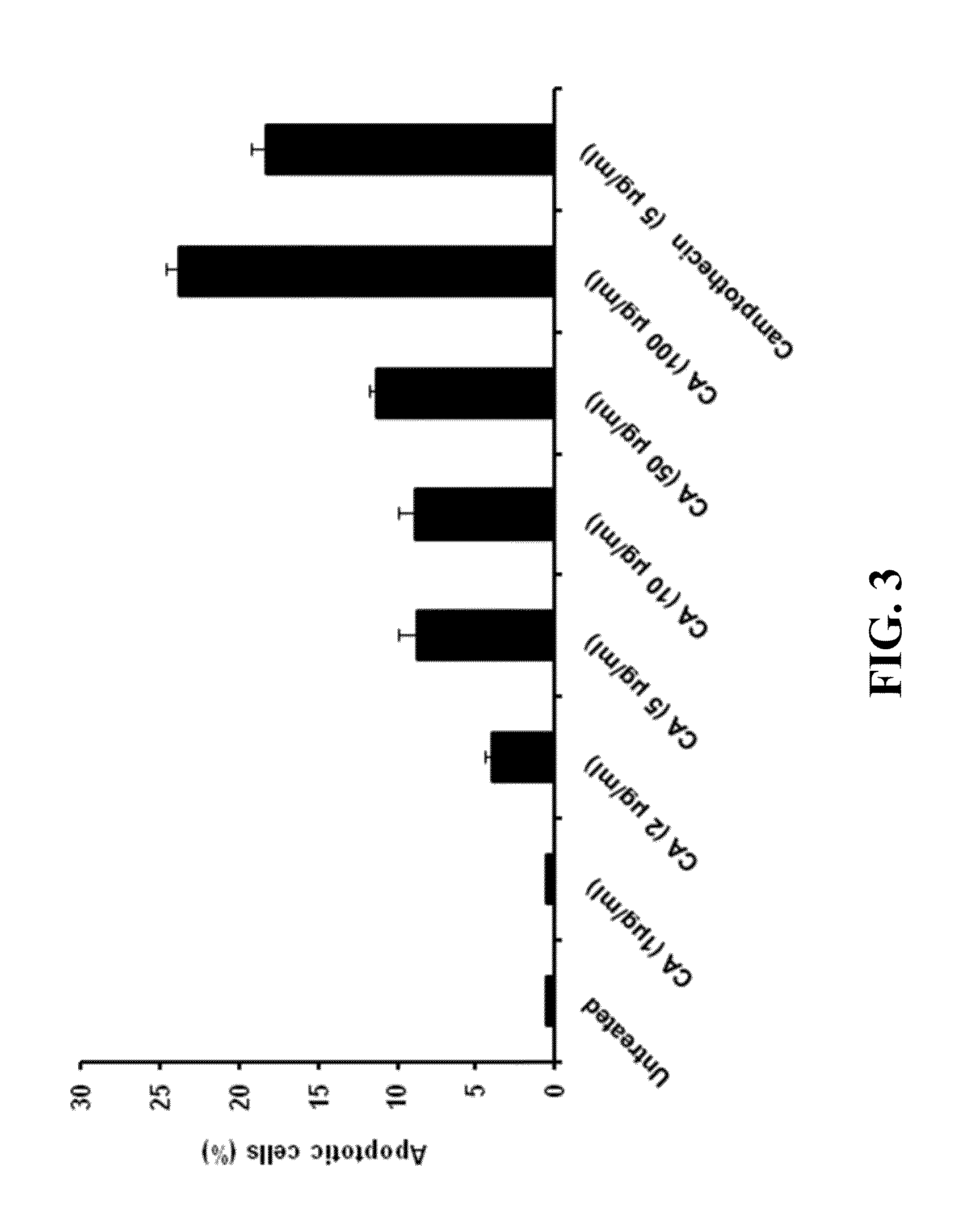


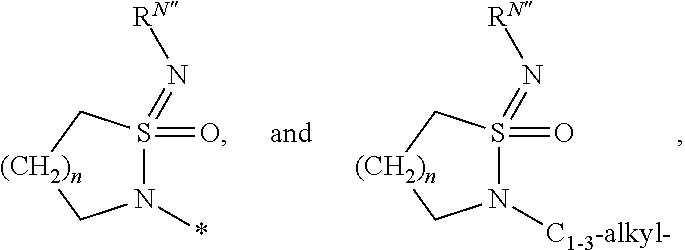
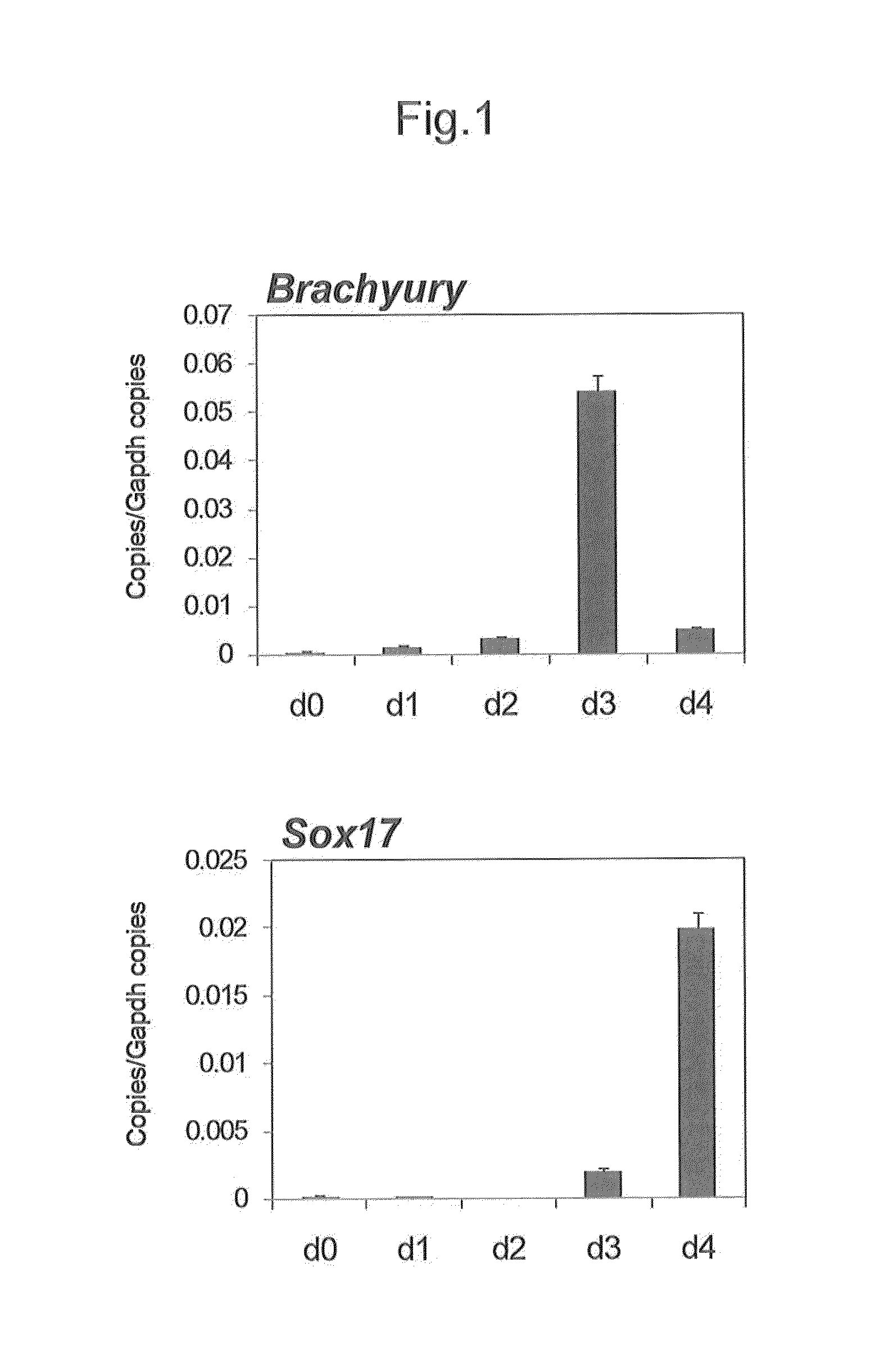
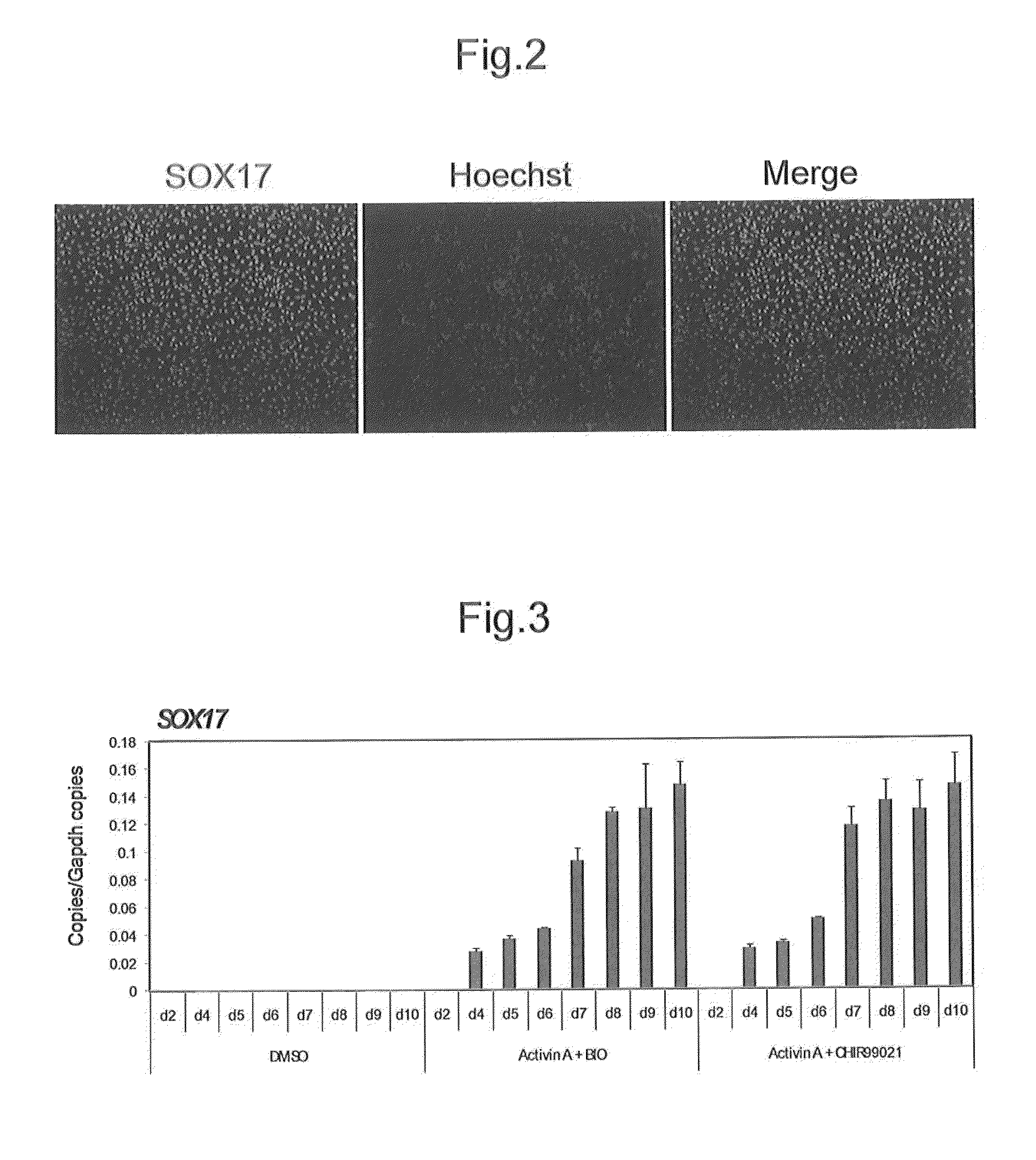
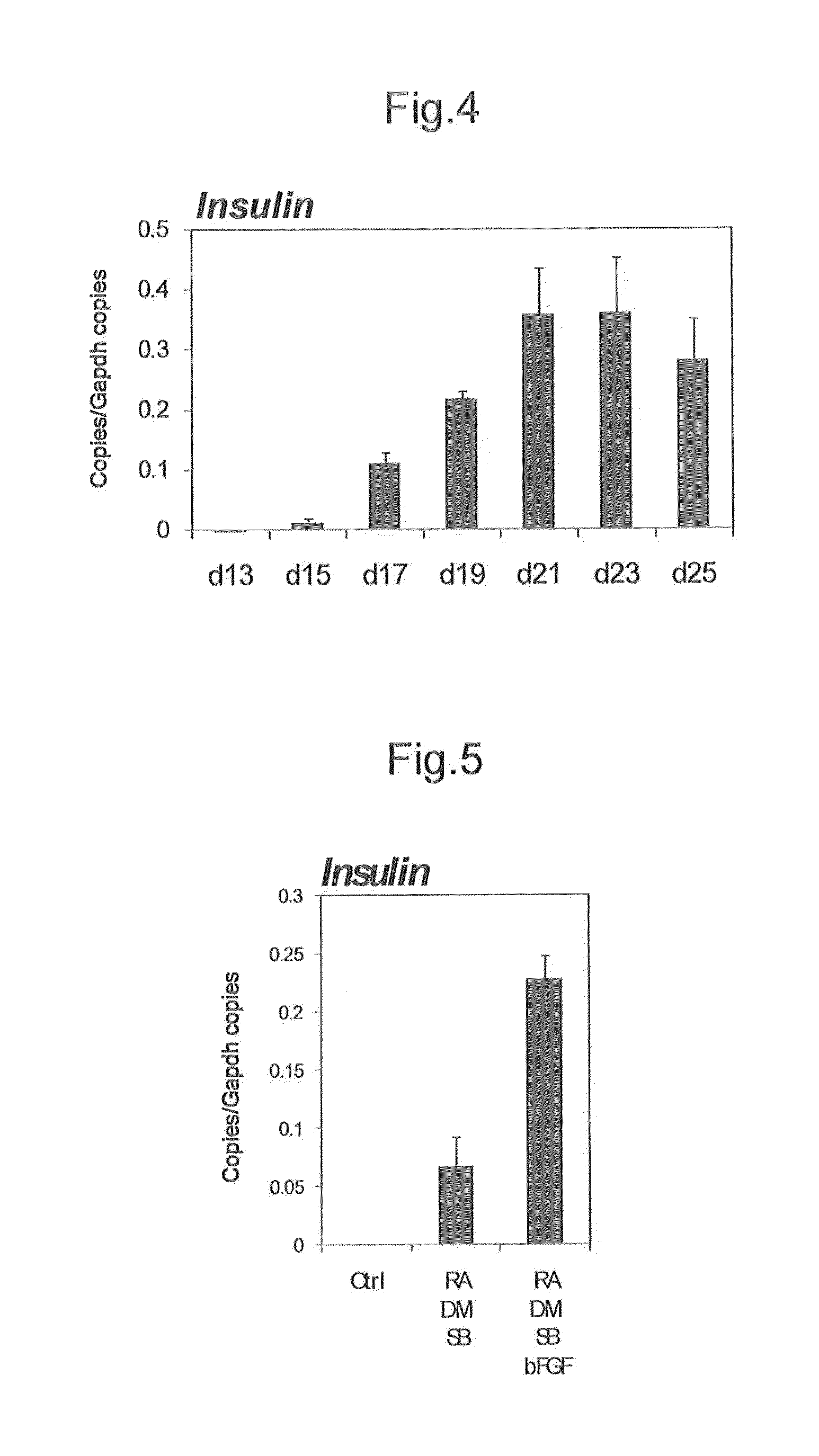
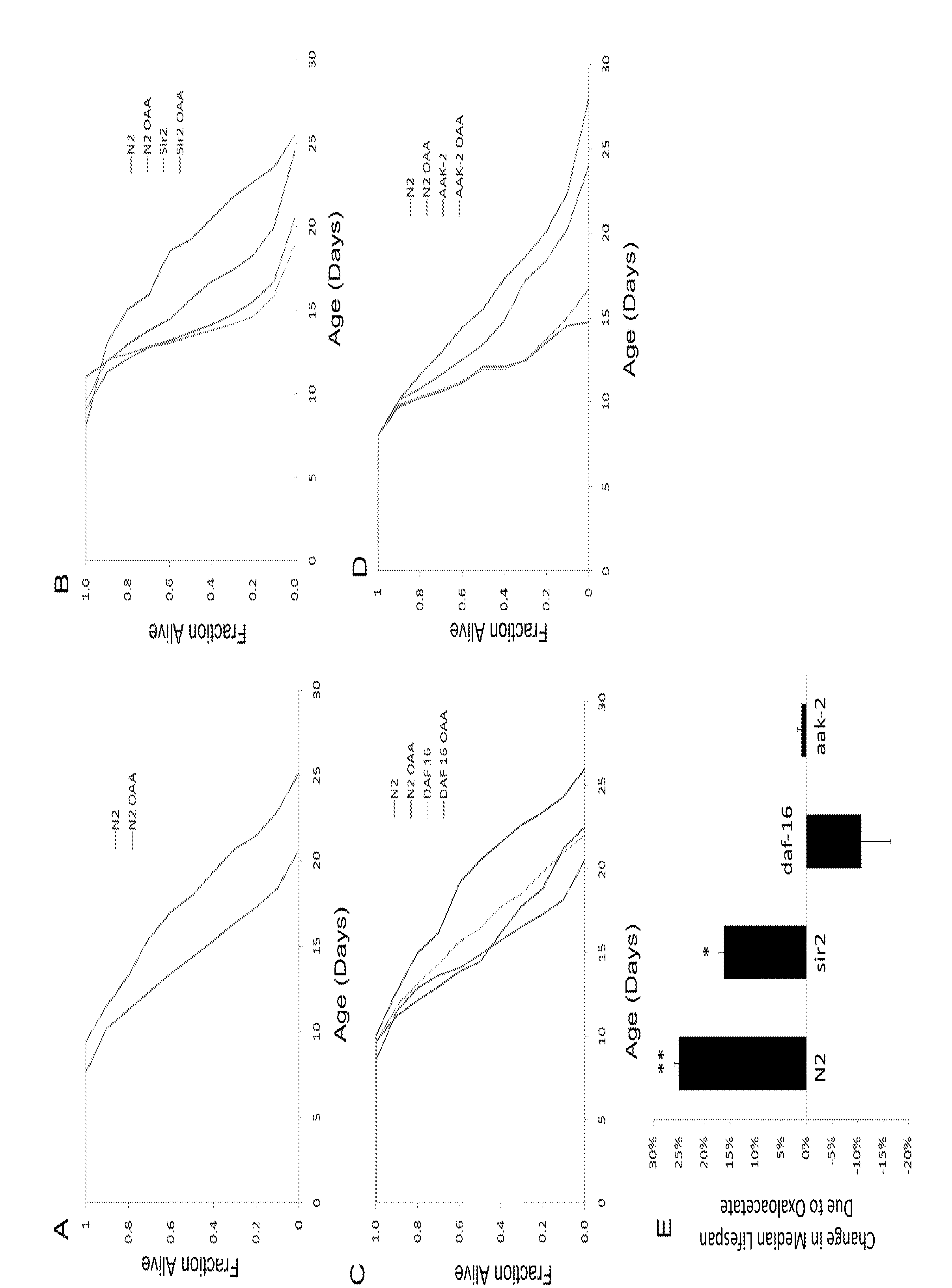
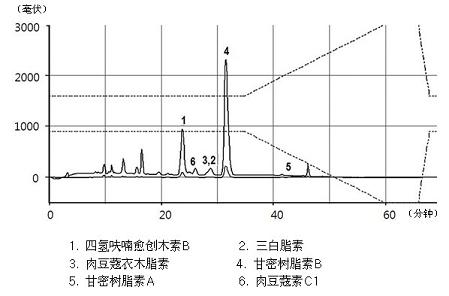
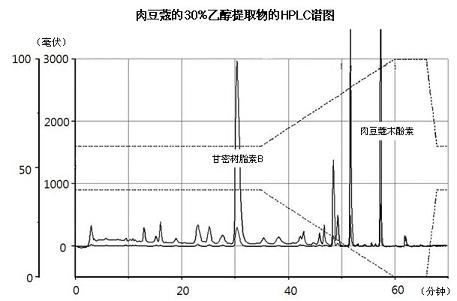
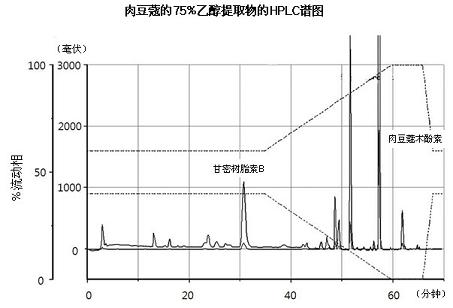
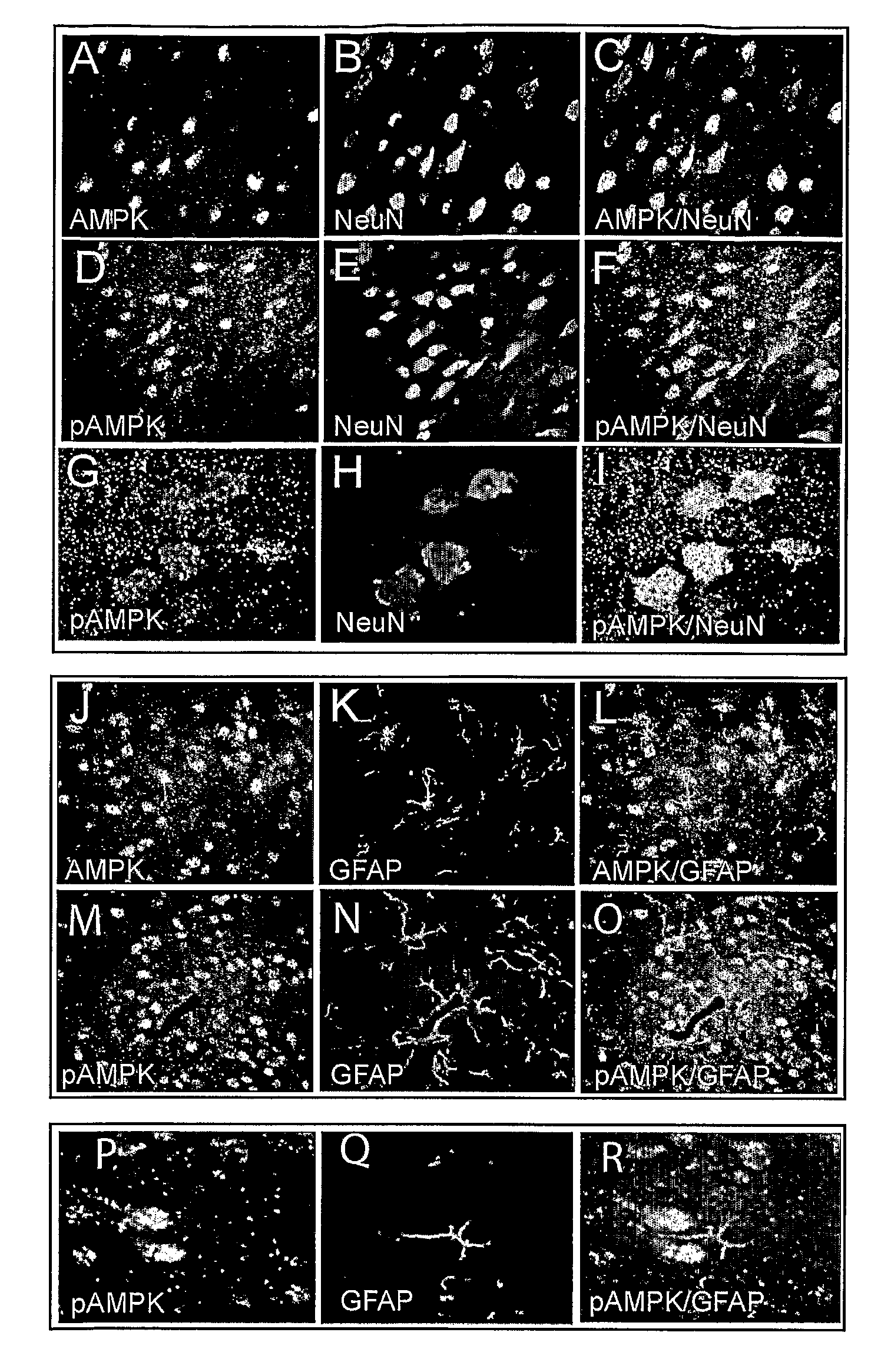
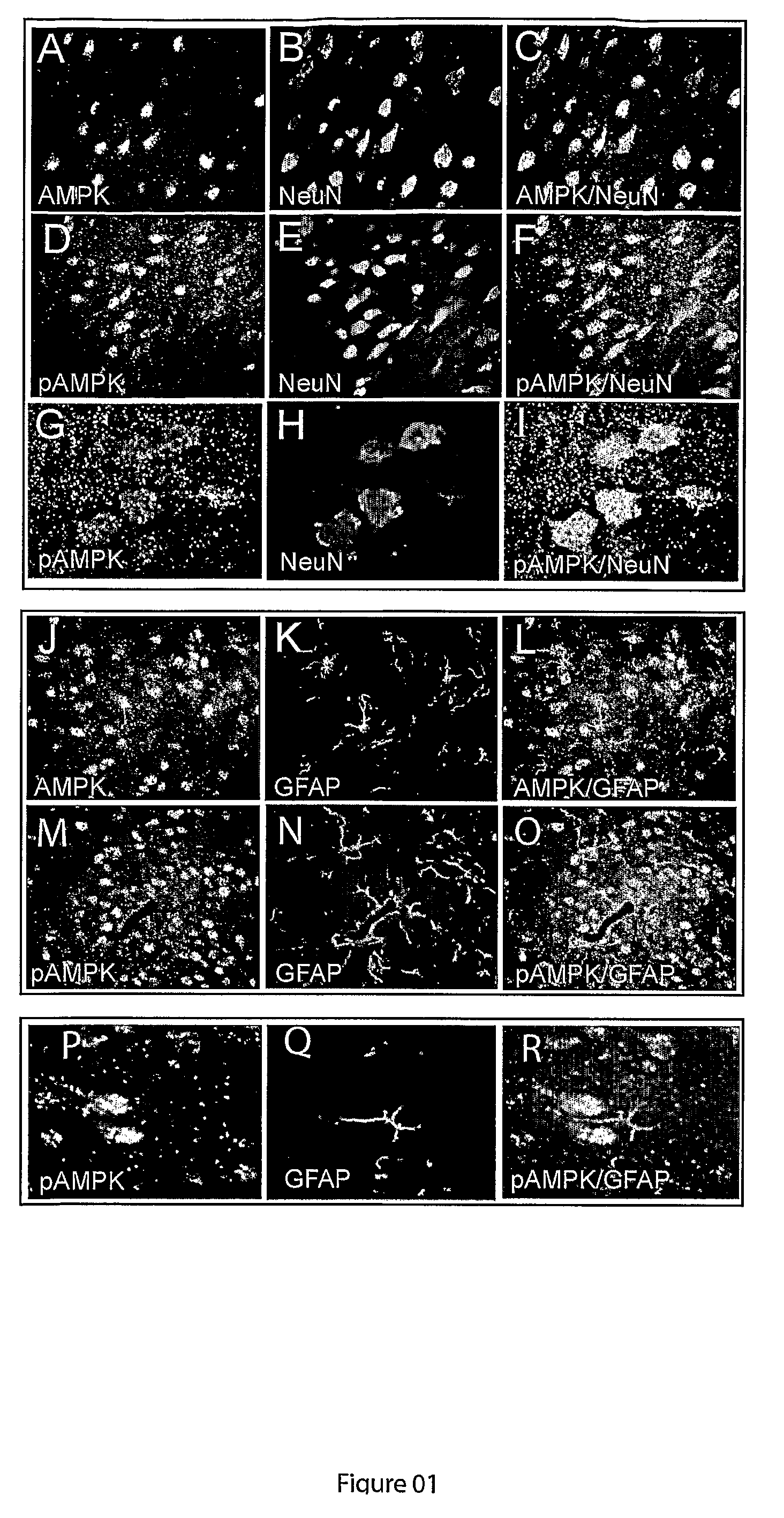
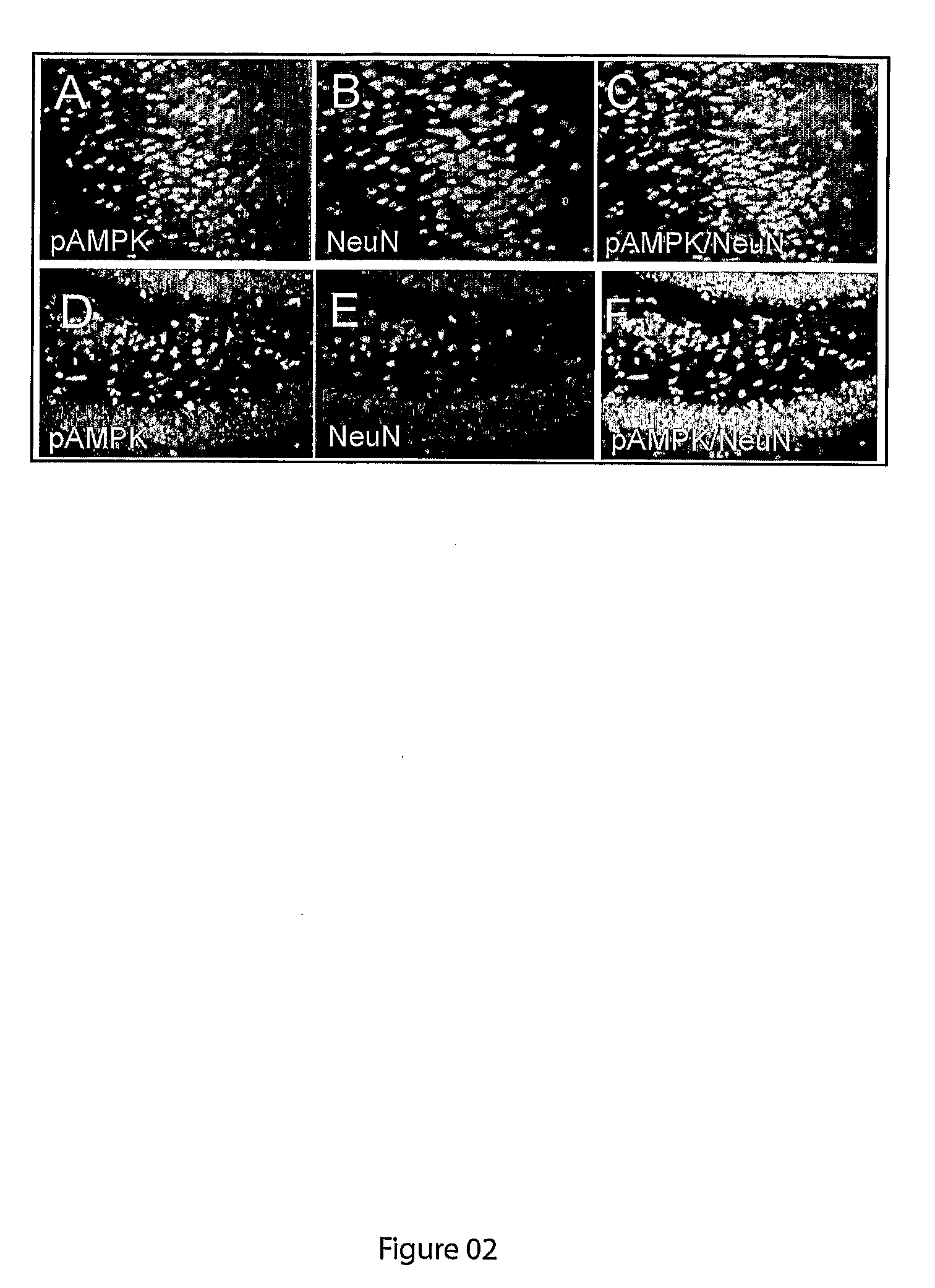
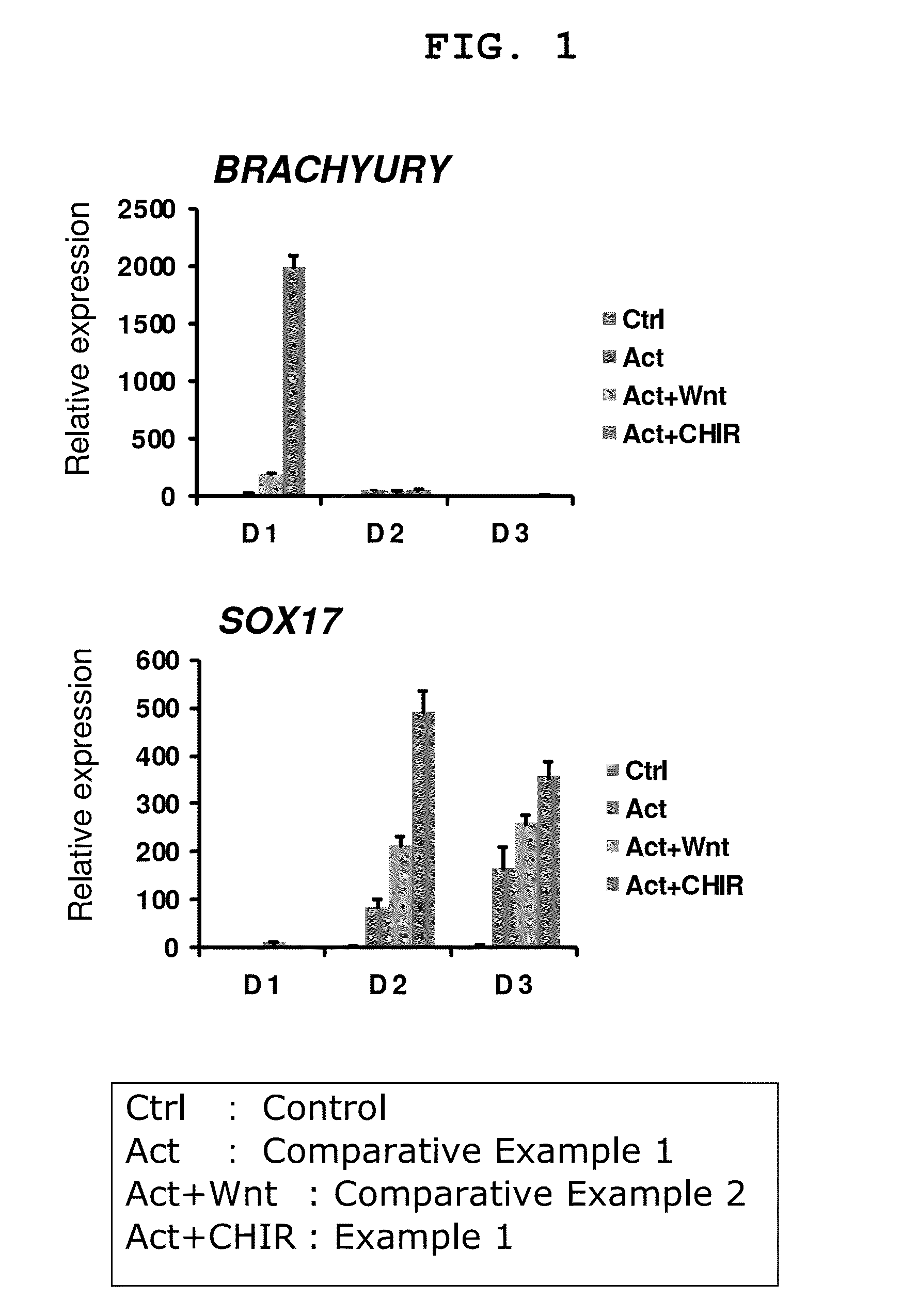
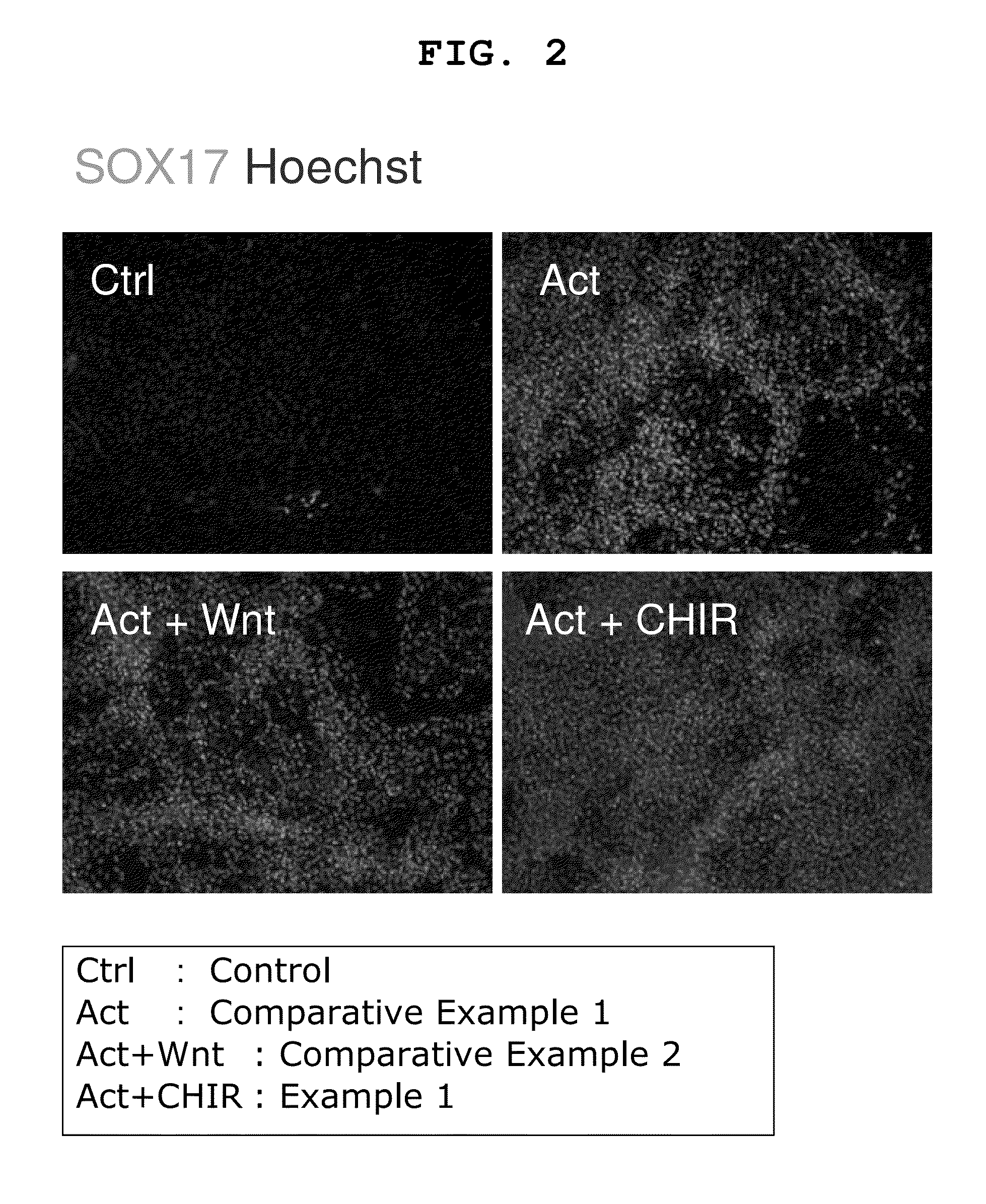
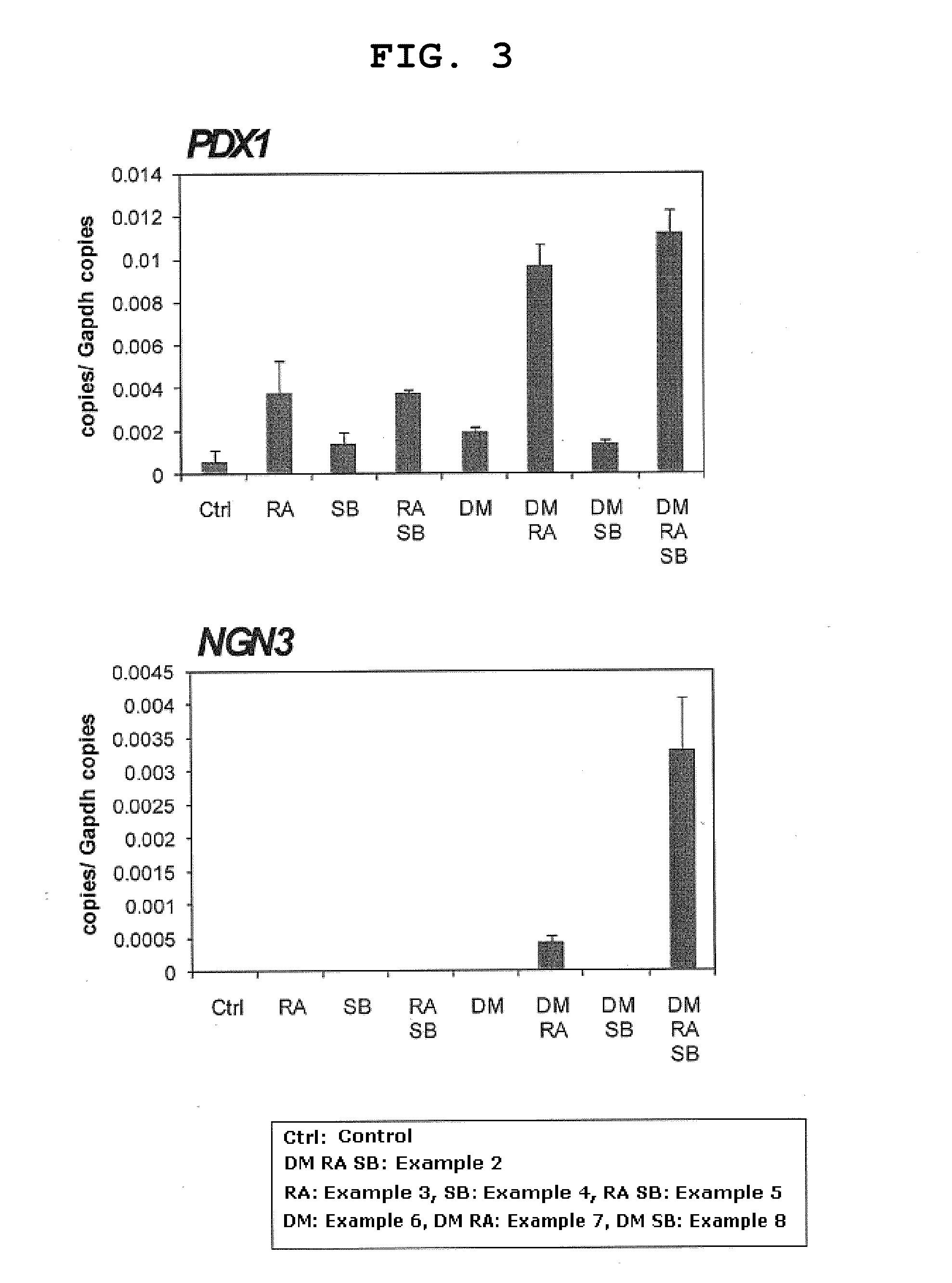
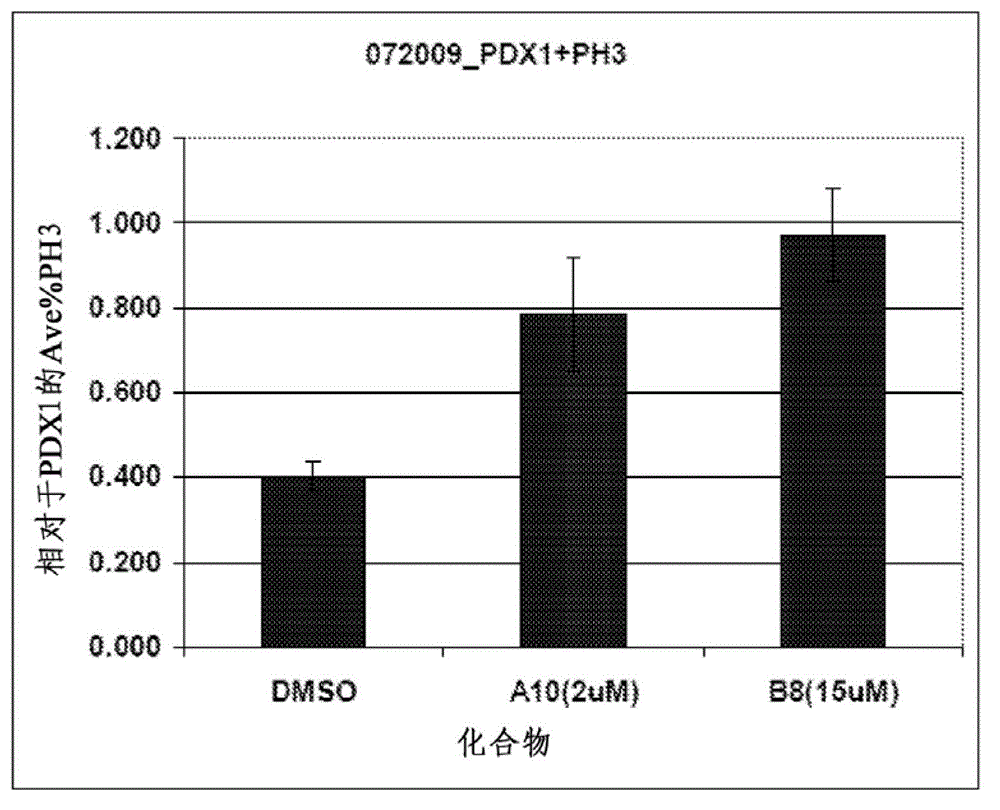
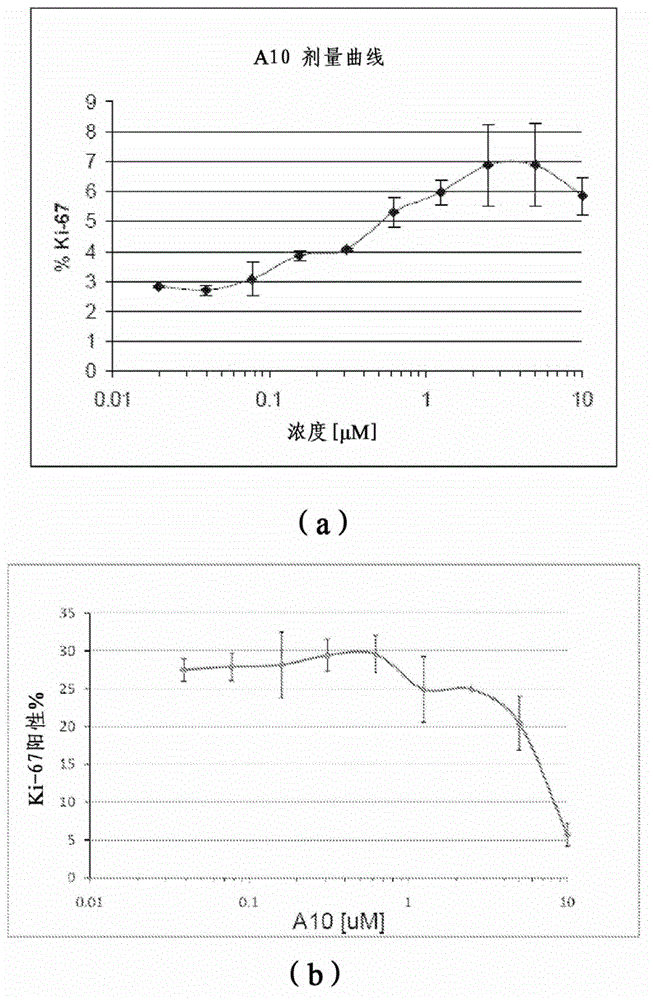
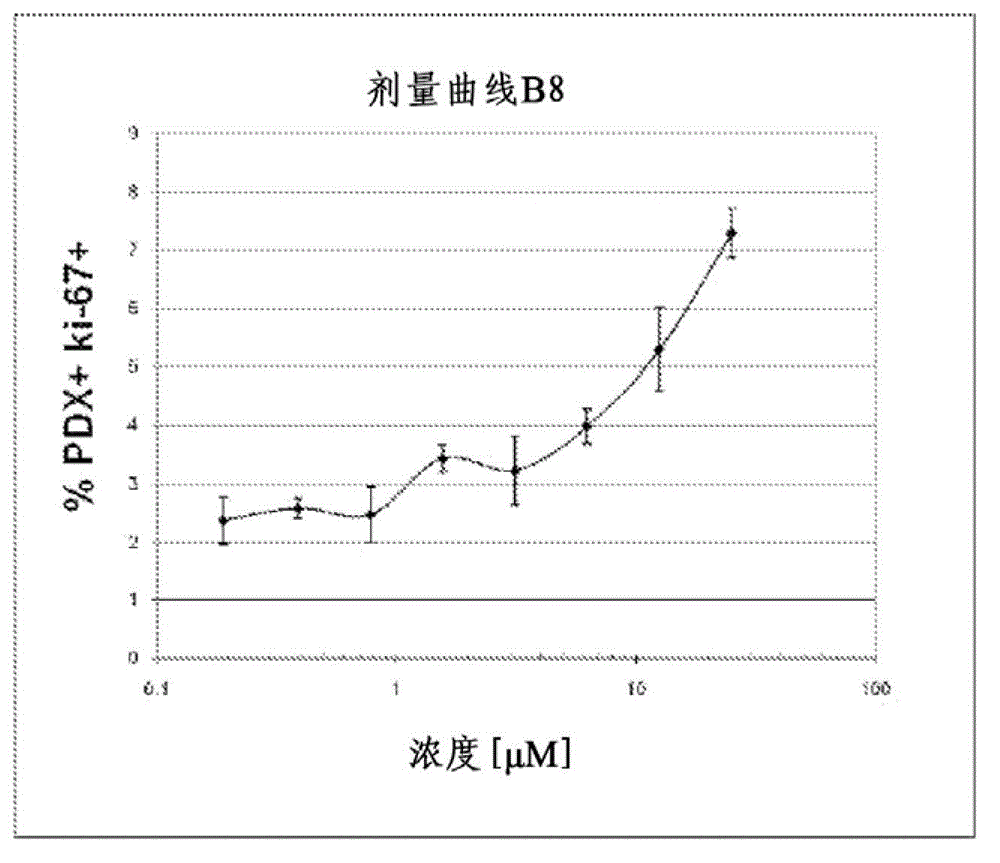
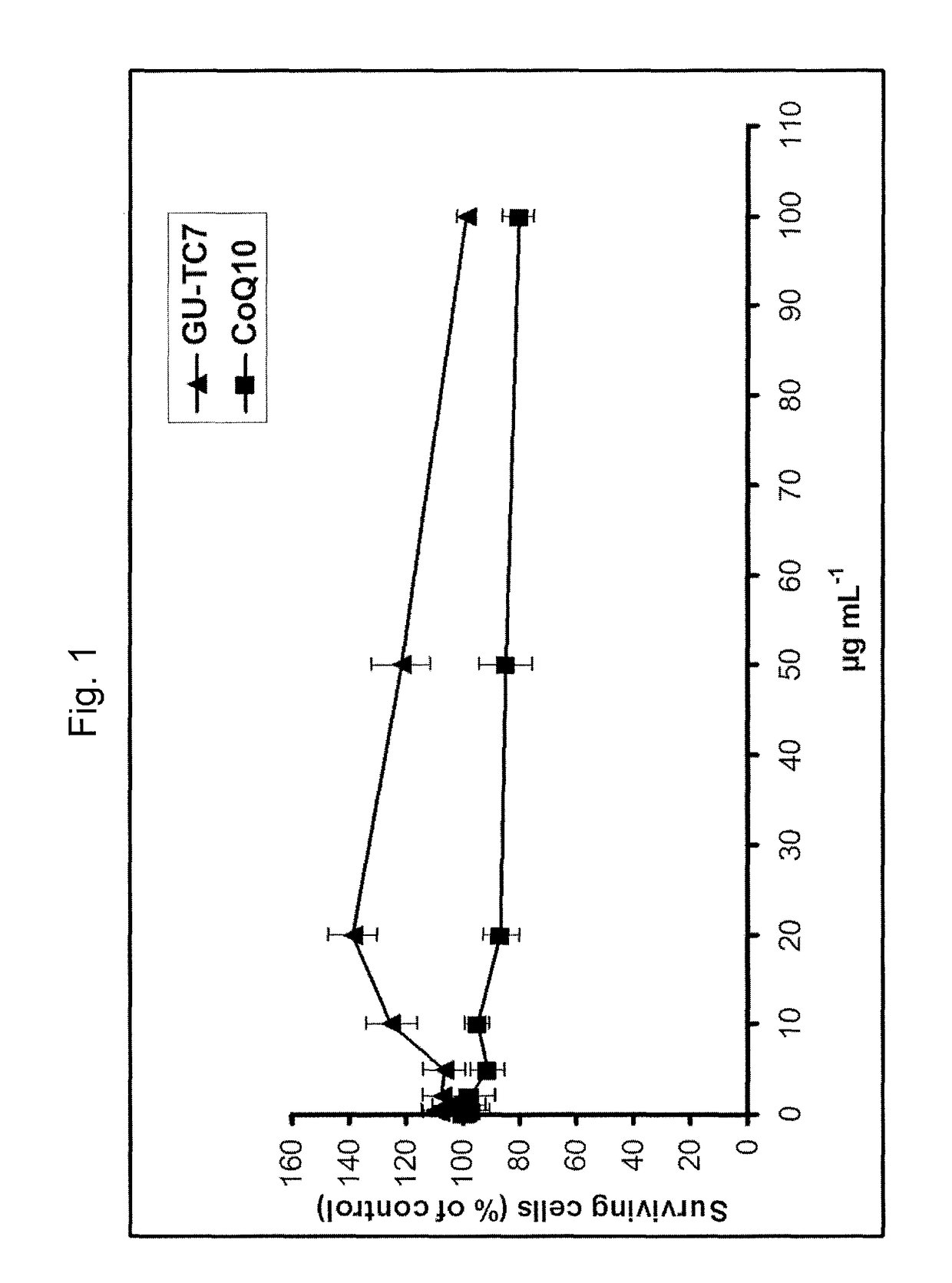
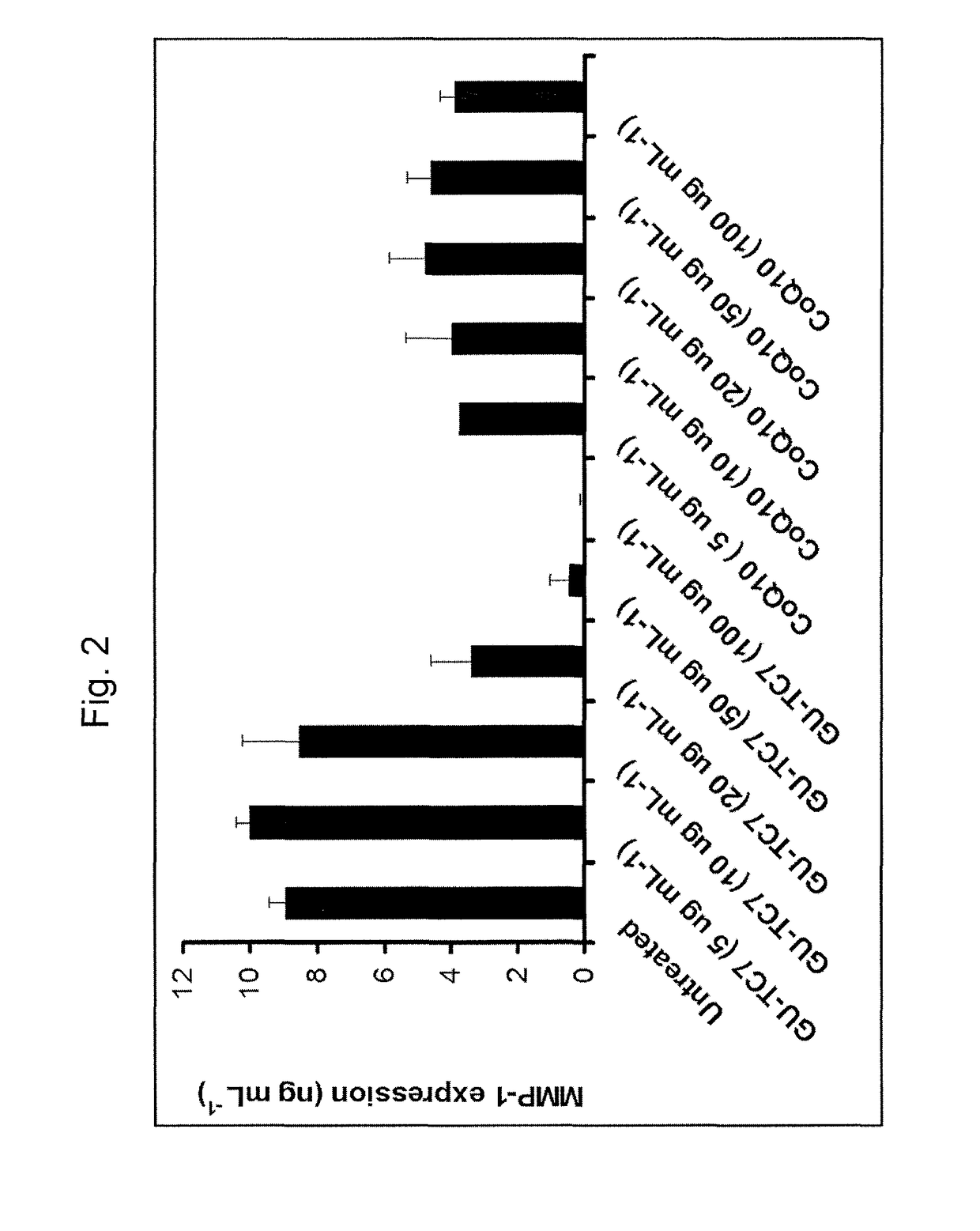
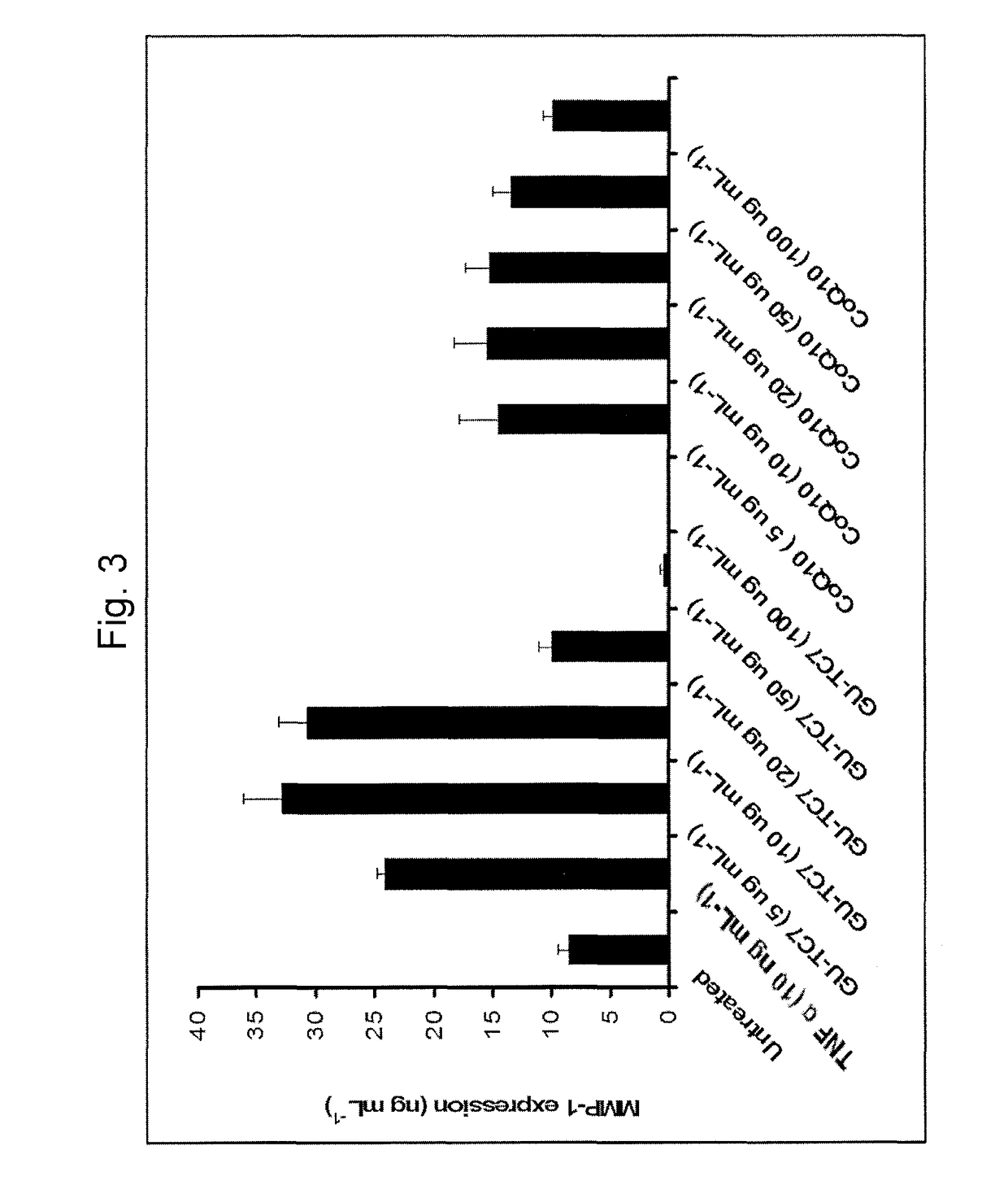
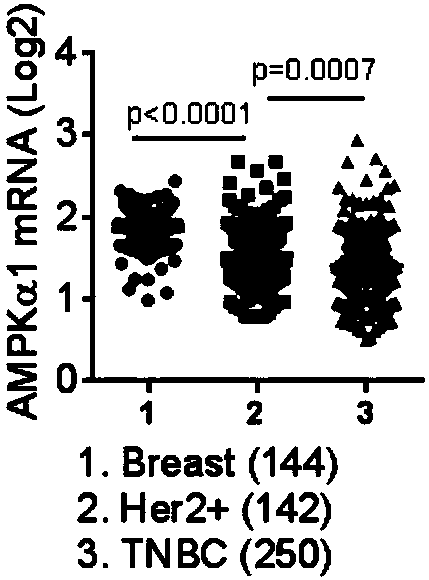
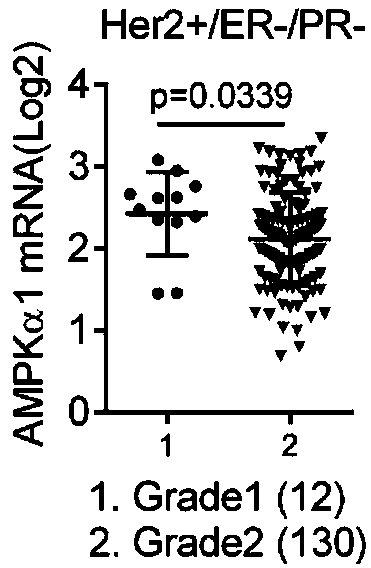
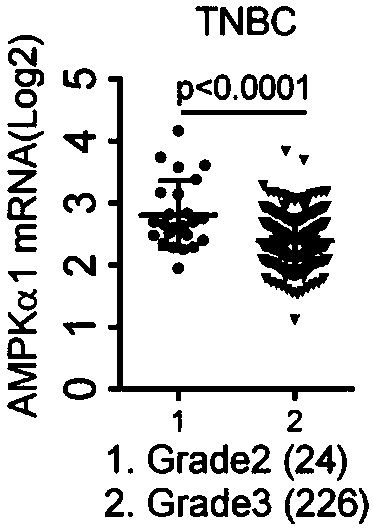
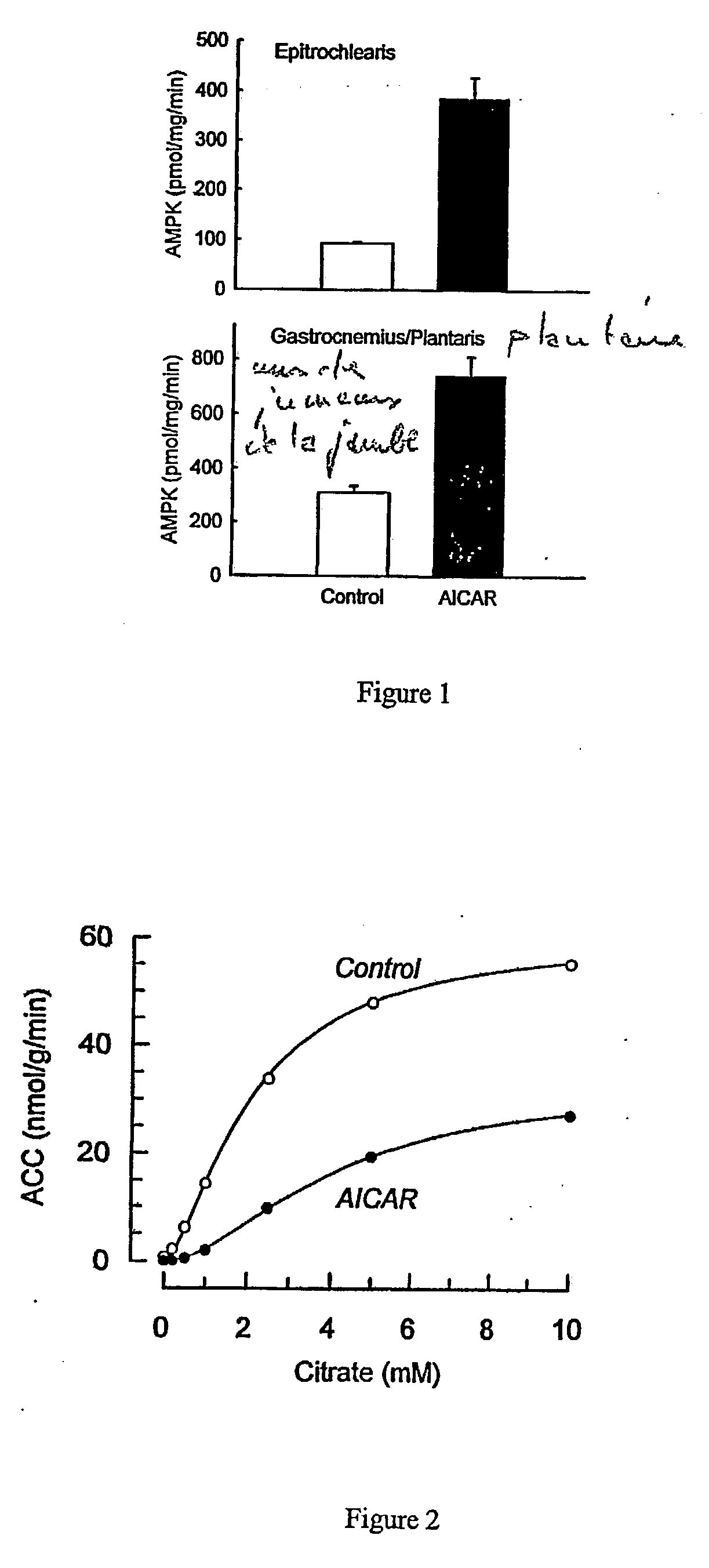
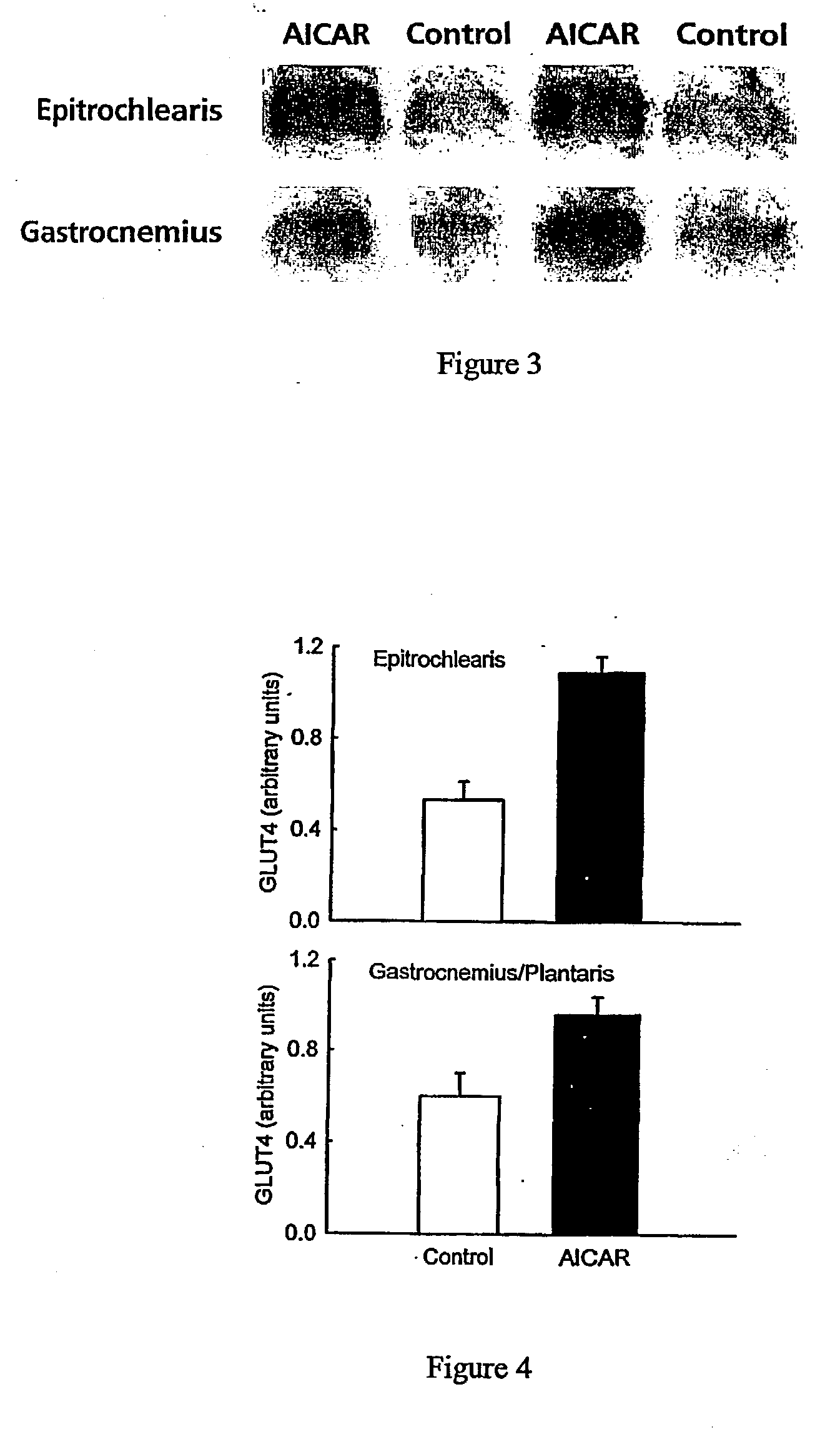
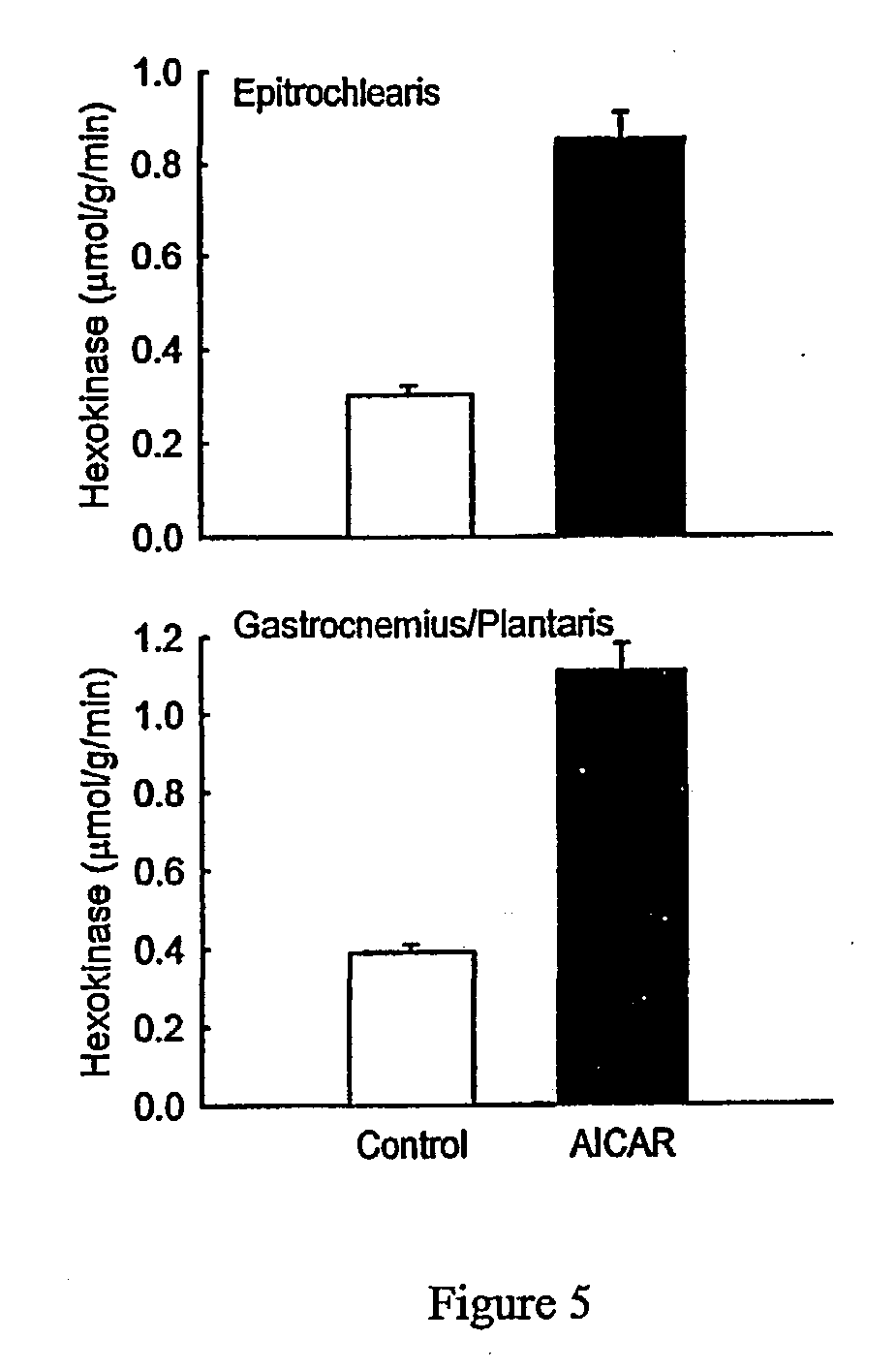
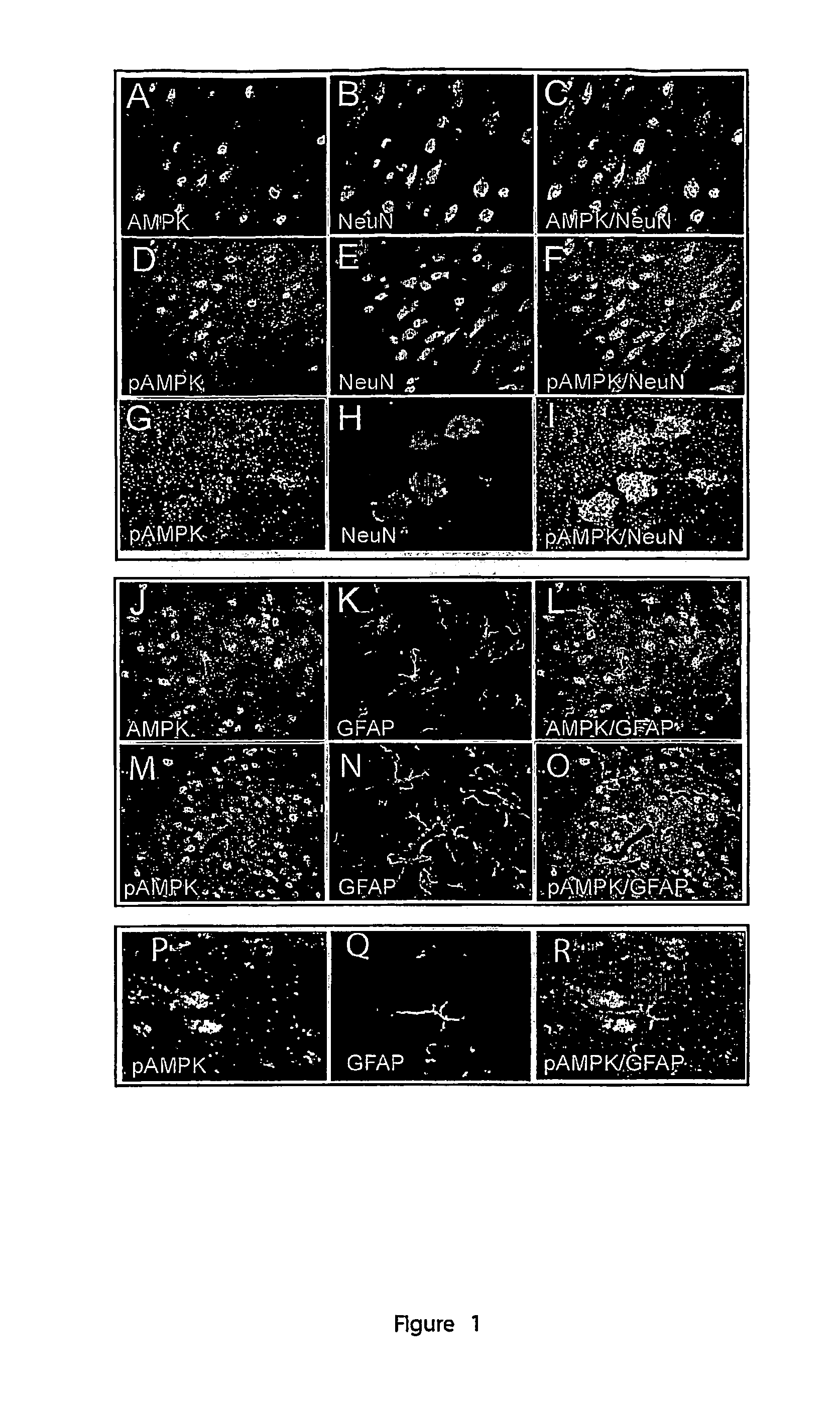
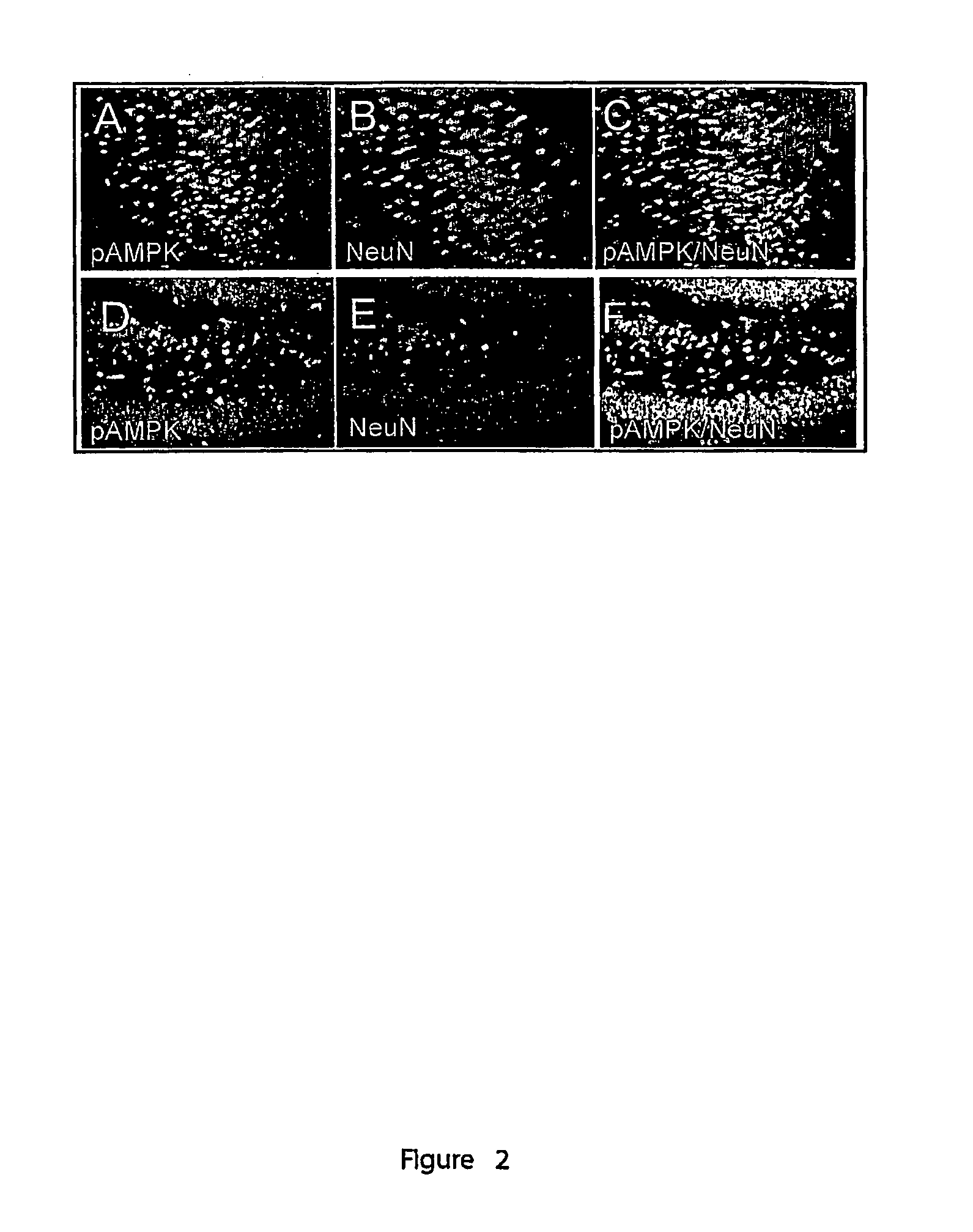
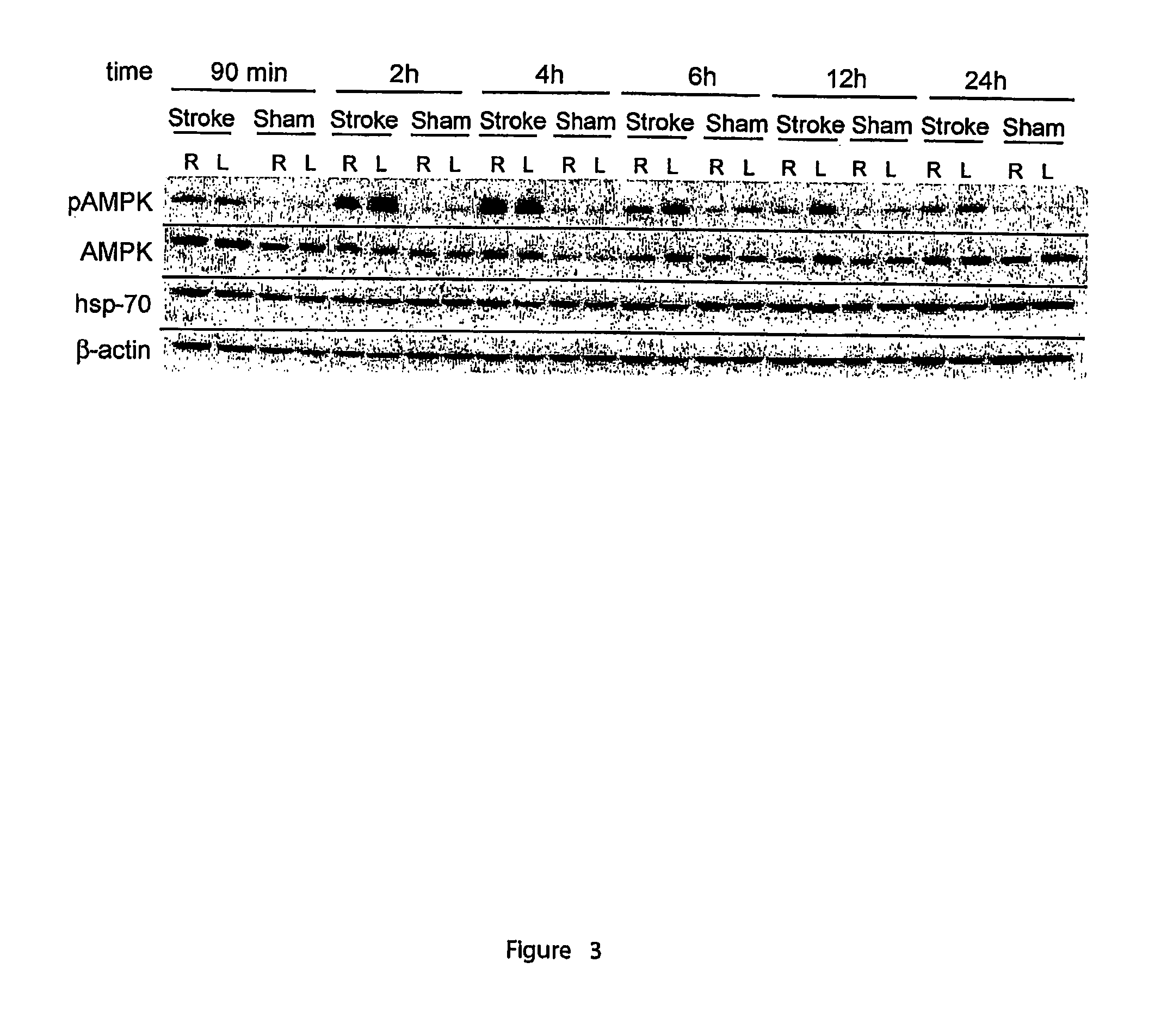
![Thieno [2,3-B] pyridinedione activators of AMPK and therapeutic uses thereof Thieno [2,3-B] pyridinedione activators of AMPK and therapeutic uses thereof](https://images-eureka.patsnap.com/patent_img/184e7b95-7181-4245-860e-89c96af518f1/US09365584-20160614-C00001.PNG)
![Thieno [2,3-B] pyridinedione activators of AMPK and therapeutic uses thereof Thieno [2,3-B] pyridinedione activators of AMPK and therapeutic uses thereof](https://images-eureka.patsnap.com/patent_img/184e7b95-7181-4245-860e-89c96af518f1/US09365584-20160614-C00002.PNG)
![Thieno [2,3-B] pyridinedione activators of AMPK and therapeutic uses thereof Thieno [2,3-B] pyridinedione activators of AMPK and therapeutic uses thereof](https://images-eureka.patsnap.com/patent_img/184e7b95-7181-4245-860e-89c96af518f1/US09365584-20160614-C00003.PNG)
